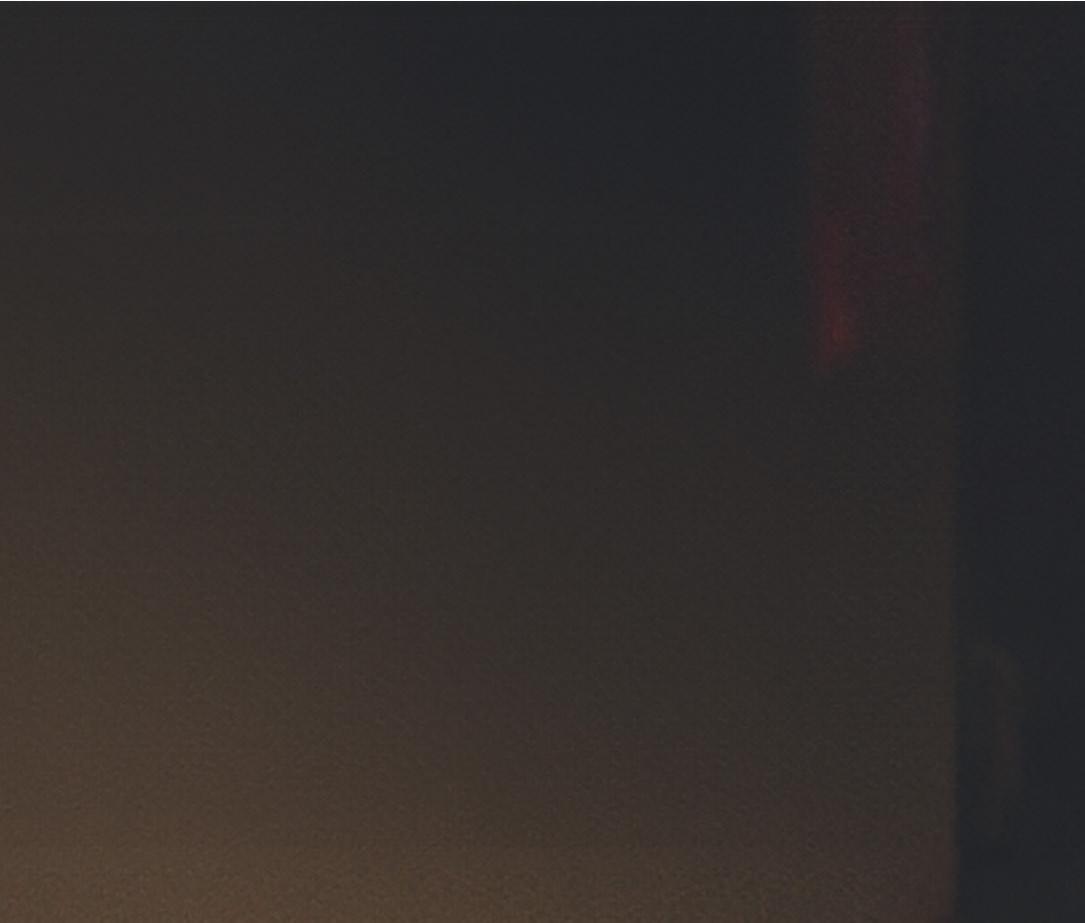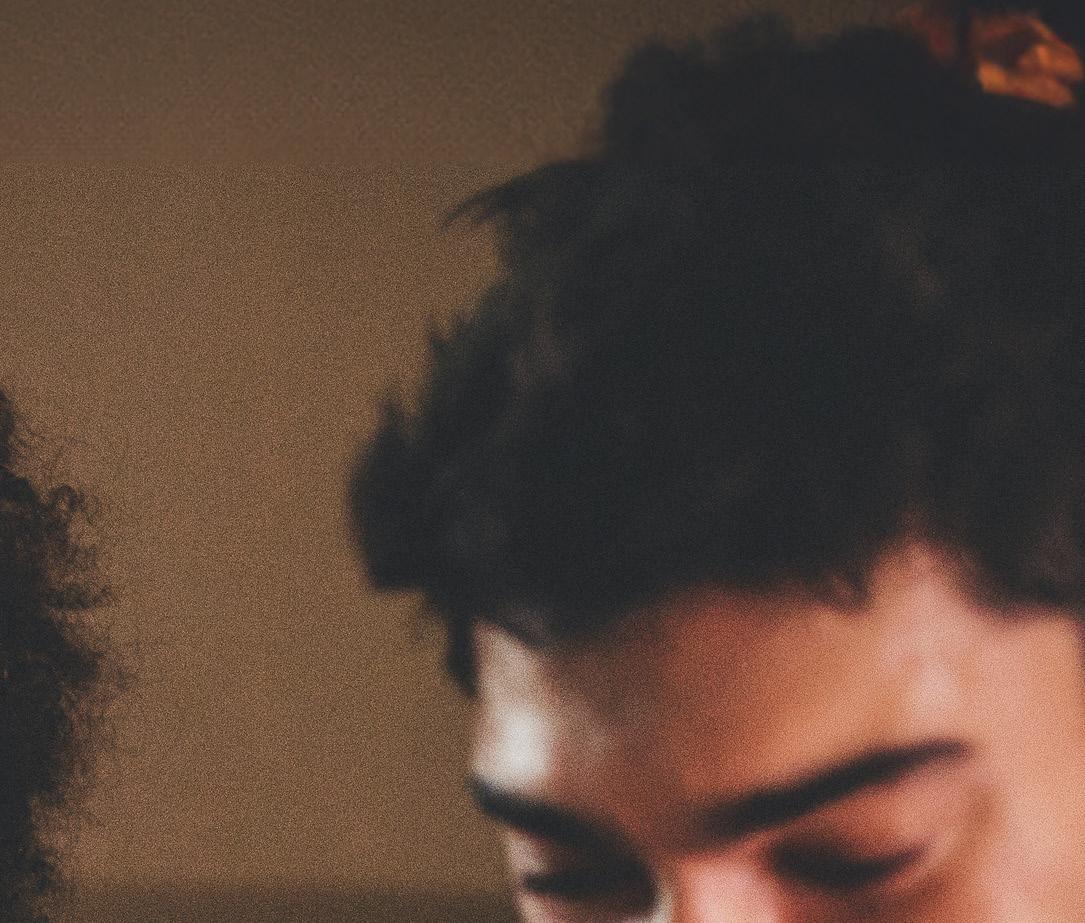



















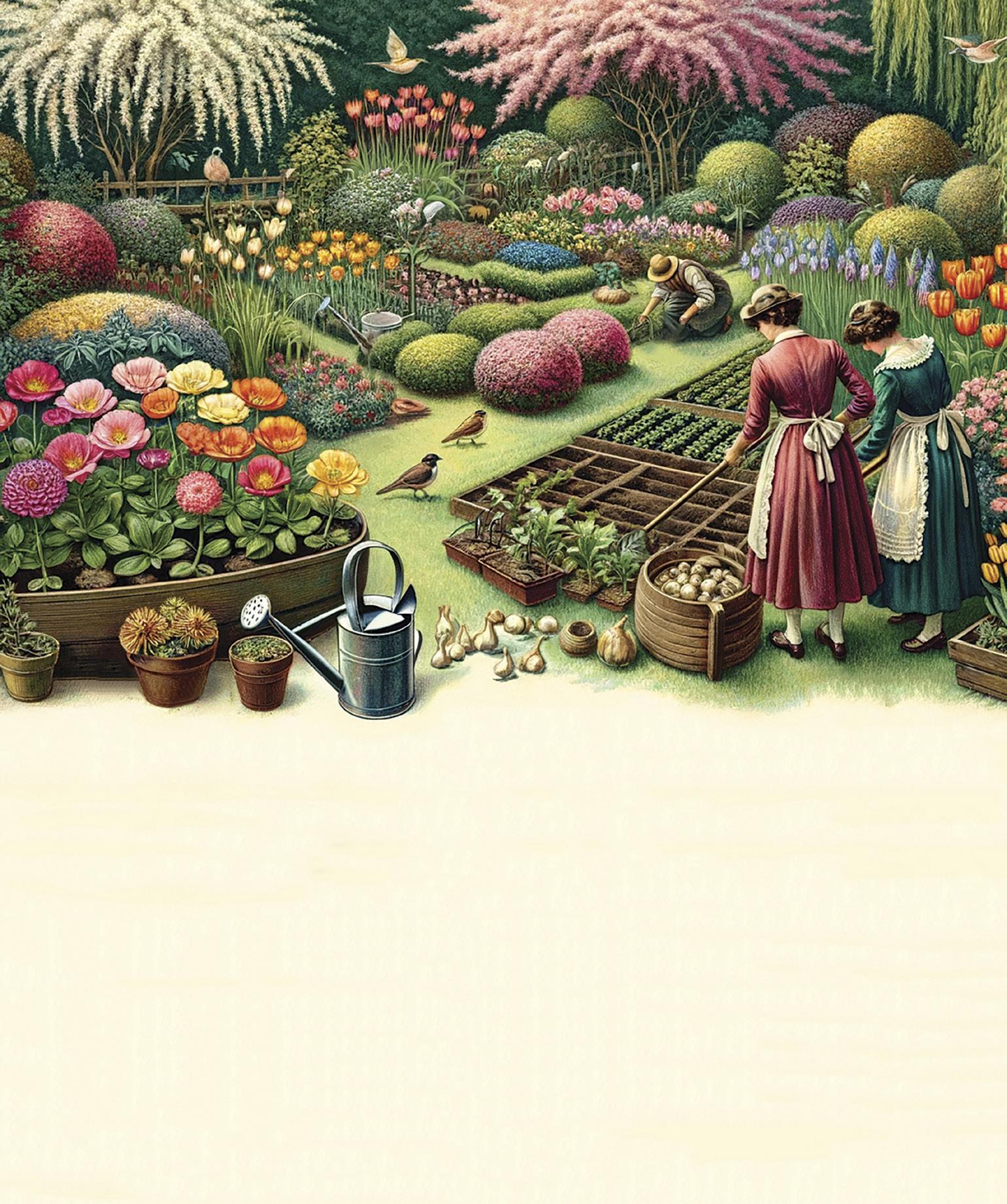






















April showers bring May flowers, and at Adams, we’re ready to help your garden dreams bloom into reality! It’s the perfect time to start a big, beautiful, and bountiful season. We have unique blossoms and lush greenery including Verbena and Cape Daisies and our ever popular Perennials. In addition to 100s of plants, imagine your home and garden adorned with the rich colors of Azalea bushes, Crabapple trees and grass seed that will become lush greenery.
At Adams, we pride ourselves on offering plants you won’t find anywhere else, just waiting to make your garden the talk of the town. Visit our Garden Centers, where extraordinary is just a seedling away!

Students, parents, and staff at Middle Way School, a Buddhist school for children pre-K to sixth grade, celebrate Losar, the Tibetan new year festival and the arrival of the year of the Dragon
Photo by David McIntyre
COMMUNITY PAGES, PAGE 38
6 On the Cover: Bobby Grossman
The photographer who captured the birth of punk.
8 Esteemed Reader
Jason Stern talks about Jesus with a stranger
11 Editor’s Note
Brian K. Mahoney on seeing something unexpected.
12 Spirit of Sicily: Spettro in Poughkeepsie
After working in many of the region’s restaurants, Giovanni Ilardi and Michael Purcell teamed up to open Spettro, a Sicilian-inflected gastropub in the city’s Arlington district.
15 Sips & Bites
Recent openings include District Ramen in Newburgh, Elixxr Cafe in Beacon, The Elm in Great Barrington, and Gymkhana Cafe in Fishkill, and Cooper’s in Beacon.
17 The Great Woodstock Frame-Up
Musician Gracie Coates and artist Sam Margevicius have turned their Bearsville home into a creative oasis.
march 3 24
34 Rethinking Mental Health Response
Nationwide, there were 104 police-involved shootings of someone in the midst of a mental health crisis in 2022. Mobile mental health teams are up and running in the Hudson Valley, offering an alternative to a cops-first model of mental health response.
38 Saugerties: Challenges and Celebration
Despite a background of economic uncertainty, Saugerties is gearing up for a festive year in 2024.
48 Saugerties Portraits by David McIntyre
54 10 Things to Love About Litchfield, CT
Litchfield offers many awe-inspiring natural settings, and serves as a hub for sustainability, conservation, culinary treats, and community engagement.
57 Taking the (Literal) High Road
The Berkshires Natural Resources Council has taken the first step in creating a web of interconnected hiking trails between towns and trails in the Berkshires.


Peter Aaron reviews Waillee Waillee by Dorothy Carter. Seth Rogovoy reviews Attune by Alex Peh. Jason Broome reviews Something from Nothing by Marlowe Stern. Plus listening recommendations from Melissa Auf der Maur, bassist and Basilica Hudson cofounder.
Susan Yung reviews Beautyland, Marie-Helene Bertino’s deeply human new novel about an alien on Earth. Plus short reviews of History is Embarassing by Karen Chase; Mythology of Stone by Bardford Graves; Vegan Soups and Stews for All Seasons by Nava Atlas; London fomr the Air by Jeffrey Milstein; and Dear Sister by Michelle Horton.
Poems by Natalli Amato, Ryan Brennan, Tom Cherwin, Peter Coco, Lou Craft, Joanne Gates Fiore, Ava Fishe, Megan Konikowski, Barbara Sheffer, Lori White, and Lyla Yastion. Edited by Phillip X Levine.
Enter the the world of composer and ecopoet David Rothenberg, who finds music in wild places. His distinctive approach to blending environmental sounds with music, showcases his collaborations with fellow musicians and multiple members of animal kingdom.
64 Paintings by Tatana Kellner at Garrison Art Center.
65 Claybourne Elder brings his racy and intimate cabaret show to the Old Dutch Church in Kingston on March 9.
66 Caitlin MacBride’s paintings of Shaker objects, “ Palm to Poplar: Devotional Labor” are at Kinderhook Knitting Mill.
69 Mark Hogancamp returns to Marwencol at 1 Mile Gallery
70 The Short List includes Woodstock Bookfest, Peking Acrobats in Peekskill, and “SoloFest” at Bridge St. Theater.
71 Here are the shows we’ll be attending this month: Hot Club of Cowtown, Lady Moon and the Eclipse, Robert Cray, and Oneida/Sky Furrows.
72 Listings of museum and gallery shows across the region This month’s standouts include Sean Hemmerle at Front Room Gallery and Winold Reiss at the Dorsky Museum.
76 The Foolish and the Ravenous
Cory Nakasue reveals what the stars have in store for us.
80 Summer of ‘66
Michael Raab’s photos of a summer spent in Beacon.

Photographer Bobby Grossman landed in New York City in the hot, bicentennial summer of 1976 armed with a BFA from Rhode Island School of Design (RISD), where he studied alongside Chris Frantz and David Byrne of Talking Heads. Too impatient to look for an apartment, he found a suite at the Chelsea Hotel.
Reflecting on that time, Grossman says, “Downtown New York City in the 1970s was desolate, like a ghost town. You’d walk home from the Mudd Club, and you’d be the only one in sight. You’d look over your shoulder occasionally just so you’d know maybe you weren’t alone. It seemed like there was no one anywhere, ever. These days it’s hard to believe it’s the same in New York. Everything changes.”
As a student at RISD, Grossman had already been visiting the city, networking, and dropping off his portfolio with editors and art directors. Classmate and fashion journalist Andre Leon Talley provided Grossman a break, introducing him to artist Richard Bernstein, who did the covers for Warhol’s Interview magazine. Bernstein had his studio in the Chelsea Hotel, where Grossman worked as his assistant. He also met Andy Warhol at his studio the Factory. “Andy liked my art so he phoned Lou [Reed], who was a few blocks away at the Gramercy Park Hotel. I spent the afternoon with Lou. He had a cassette of

Coney Island Baby and shared a nearly finished mix of the album on his boom box,” Grossman says.
“You can almost say I had peaked in New York meeting Andy and Lou, and I hadn’t even moved to town yet,” he says.
Having spent time at the Ocean Club, Max’s Kansas City, and CBGB, Grossman found himself intrigued by the new music emerging from the downtown scene. He put a camera inside the pocket of his motorcycle jacket and captured a pivotal moment in rock ‘n’ roll history—the birth of punk.
Having befriended Byrne and Frantz at RISD, Grossman was on the scene from the very beginning. “Chris mailed me the CBS Talking Heads demo while I was still in school, hoping they could play an early gig in 1976. They invited me down to CBGB for the first shows with Television, Blondie, Patti Smith, and the Ramones,” he says.
Other subjects he fixed his lens upon include Blondie, Iggy Pop, David Bowie, Lou Reed, Robert Fripp, Johnny Thunders, and fellow Chelsea Hotel resident Sid Vicious. He also captured Jean-Michel Basquiat and William S. Burroughs. “I’d see Bowie and Iggy on occasion. David was always very nice. I was hired a few times to take photos of them,” he says.
Known for being affable, Grossman put himself
right in the middle of the action. His photos appeared in Rolling Stone, Interview, Artforum, the New York Times, SoHo Weekly News, the Village Voice, MTV, Vogue, and more. He was also the house photographer for Glenn O’Brien’s cult public-access variety show “TV Party.”
About his style, Grossman says, “The DIY punk ethos circumnavigated convention. Some of our art was without trained skill; guileless technique with genius results.”
Initially, he would shoot from the hip but didn’t always achieve the desired results. Later he switched to a more conventional style. “I had never considered myself a serious photographer. I had to grow into it,” he says.
The New Gallery has curated a show of his work, “Low Fidelity,” which will be exhibited at Time and Space Limited in Hudson March 9 through the 31. There will be an opening reception on March 9, from 5 to 9pm. The event will feature a vinyl and digital deep cut set by DJ Climax and a performance by New York Citybased musician Ben Seretan. There will be live music in the gallery by Lulu Lewis on March 16 at 7pm, with a closing party on March 30. Photos from the show comprise Grossman’s latest book, Low Fidelity: Downtown New York 1975-85, due out this spring from Waverly Press.
—Mike CobbEDITORIAL DIRECTOR Brian K. Mahoney brian.mahoney@chronogram.com
CREATIVE DIRECTOR David C. Perry david.perry@chronogram.com
DIGITAL EDITOR Marie Doyon marie.doyon@chronogram.com
ARTS EDITOR Peter Aaron music@chronogram.com
HOME EDITOR Mary Angeles Armstrong home@chronogram.com
POETRY EDITOR Phillip X Levine poetry@chronogram.com
CONTRIBUTING EDITOR Anne Pyburn Craig apcraig@chronogram.com
Kimberly Jordan Allen, Winona Barton-Ballentine, Jason Broome, Michael Eck, Melissa Esposito, Ryan Keegan, Caitlin McDonnell, David McIntyre, Cory Nakasue, Seth Rogovoy, Sparrow, Taliesin Thomas, Lynn Woods, Steven Yoder
FOUNDERS Jason Stern, Amara Projansky
PUBLISHER & CEO Amara Projansky amara.projansky@chronogram.com
EXECUTIVE VICE PRESIDENT Jan Dewey jan.dewey@chronogram.com
BOARD CHAIR David Dell
sales manager
Andrea Fliakos andrea.fliakos@chronogram.com
Kaitlyn LeLay kaitlyn.lelay@chronogram.com
Kelin Long-Gaye kelin.long-gaye@chronogram.com
Kris Schneider kris.schneider@chronogram.com
Jared Winslow jared.winslow@chronogram.com
marketing
MARKETING & EVENTS MANAGER
Margot Isaacs margot.isaacs@chronogram.com
SPONSORED CONTENT EDITOR
Ashleigh Lovelace ashleigh.lovelace@chronogram.com
administration
FINANCE MANAGER
Nicole Clanahan accounting@chronogram.com; (845) 334-8600
production
PRODUCTION DIRECTOR
Kerry Tinger kerry.tinger@chronogram.com
PRODUCTION DESIGNER
Kate Brodowska kate.brodowska@chronogram.com
office
45 Pine Grove Avenue, Suite 303, Kingston, NY 12401 • (845) 334-8600
mission
Founded in 1993,



The woman in front of me at the coffee counter has an open face and a gray smudge on her forehead. She turns and smiles and I dare to ask about it.
“Today is Ash Wednesday,” she tells me and explains that the daub of ash was applied by a priest. “It’s the beginning of Lent for Catholics,” she continues. “It’s a time to purify, and struggle, and prepare for the rebirth of life in the spring.”
I ask her what she’s giving up for Lent. But her cup is ready, and I need to give my order.
“I have a few minutes if you want to hear about it,” she says, looking me in the eye for a long second.
I feel a mixed impulse. Is she coming on to me? I wonder. I don’t think so. But what is she after? Nevertheless, something in me responds and I say, “Uh huh, yeah, sure.”
She’s sitting at a table in the corner, sipping from a paper cup with the lid off. She’s middle aged and plump, curly gray hair, but her skin is smooth and has a golden glow.
Sitting down I ask if she is Catholic, quickly realizing that is probably a stupid question.








“I’m a recovering Catholic but I still go to church sometimes,” she says. “I go for myself. It’s a personal thing. I also find I am able to soak up some of the prayers that are floating around in there.”









“What do you mean?” I ask her.
“It may sound strange,” she says, “but those prayers have an energy, a force, and they collect in the church. If I get really still I can breathe it in and it’s like a kind of food.”
“It sounds like you are stealing other people’s prayers,” I say, and her serious expression breaks into a grin.
“Well, they aren’t using them, are they?” she says.
“That sounds sacrilegious,” I say, but as I speak a truck slows down with noisy Jake brakes outside the cafe and she doesn’t hear me.
“Are you observing Lent?” I ask. “Are you fasting or renouncing something?”
“Yes,” she says. “I’m using the occasion to practice for my own purposes, not because of any Church dogma.”
“How do you do that?” I ask
“I think of Lent as a kind of inner hygiene,” she says. “It is not about penance. It’s a chance to turn up the intensity of work on myself.”
“How do you ‘work on yourself?’” I ask.
“That’s a big question. But during Lent I think about it in three opposite directions,” she says.
“‘Three opposite directions’ is impossible,” I say.
“Not if you add another dimension,” she says.
“Ha! OK, what are they?” I ask.
“Well, generally speaking they are positive, negative, and neutral,” she says. She is beginning to sound esoteric, but she doesn’t seem like a crazy person mumbling fragments of New Age nonsense.
“Are you talking about electricity?” I ask.
“Yes, among other things,” she says. “It’s the same principle. The work on myself during Lent has three parts. One is taking something on—a daily practice to build up force and energy. That’s the positive part. It requires a real effort, like the black, yang part of the Tao symbol. The negative part is putting something away, a habit. I’m giving up caffeine this time.” She points to her cup. “I’m drinking herb tea. It’s horrible and I don’t like it, but it gives me something to struggle with, like rubbing two sticks together makes a fire.”
“It sounds like masochism,” I say.
“Yes, it sounds like it, but it’s not,” she says. “It’s to generate energy for my work on myself.”
“What’s the neutral part of Lent?” I ask.
“The neutral is about being receptive to something beyond myself, beyond my own effort and struggle,” she says. “In the language of the Church it is opening to the Love of Christ.”
“Whoa, that sounds religious,” I say.
“It does sound like that, but it’s a real thing,” she says. “Do you want to try?”


“Try what?” I ask.
“Try feeling the Love of Christ,” she says.
Suddenly I see what’s happening. She does have an agenda. She is some kind of manipulative missionary trying to get me to join her church that’s not a church. I began to fidget and think about getting out of there.
“Why don’t you just try it?” she says.
“What do I have to lose?” I say, nervously.
“Jesus’s love is everywhere,” she begins in a resonant voice. “Like the air, we are swimming in it and breathing it in. It is a love that shines equally on every part of you. Nothing is hidden from Jesus’ love, and nothing is rejected. All your secrets, your prides and shames, your strengths and weaknesses both real and imagined, the things you’ve done, the things you haven’t done… Jesus loves every part of you exactly as you are. Yes, love is general, but it is also particular. Jesus loves you. You are loved. Can you feel it?”
are looking for.”

• Spiritual Exercises
• Spiritual Masters/Inner Guides
• Dreams
• Recognizing Everyday Miracles
• Making Life Better with an Understanding of Karma
• Reincarnation


New Yorkers are eligible for some of the nation’s best rebates. Take advantage of unprecedented incentives before they run out. Cost

Dandelion’s ground source heat pumps are 4x as efficient as heating with oil, propane, or natural gas Low-Maintenance
With expected lifetimes exceeding 50 years, Dandelion systems heat consistently without breaking down
Scan QR Code or call 833-GEO-4ALL to start saving.






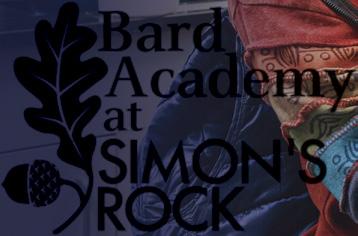





Exclusively available to students who are residents of the following 14 counties:
• Connecticut: Hartford, Litchfield
• Massachusetts: Berkshire, Franklin, Hampden, Hampshire
• New York: Albany, Columbia, Dutchess, Greene, Rensselaer, Ulster
• Vermont: Bennington, Windham
Five well-qualified applicants will be awarded the Provost’s Regional Scholarships.
All applications received will be reviewed for other scholarships based on their strength.
Students selected for the Provost’s Regional Scholarship will be notified on May 1, 2024.




If you’re of a certain age—I’m looking primarily at you, Gen Xers—you will recall the 1978 film Faces of Death. The pseudo-documentary purports to show real-life fatalities, homicides, and accidents, presenting a series of disturbing scenes ranging from animal slaughter to human executions to footage of a skydiver hitting the ground when his chute fails to open. Though its authenticity has been questioned, some of the scenes were clearly real and Faces of Death sparked controversy and ethical debate about depicting such graphic content on screen.
I was not yet 10 when the shockumentary was released. The videocassette, kept behind the counter at the local video store, became a dark talisman for me and my friends, an alternative form of pornography that was even worse than pornography. But how could that be? Wasn’t porn the most dreaded form of content there was, despite the fact that most of our dads had collections of skin mags stored somewhere?
When we found out that Faces of Death was referred to as a “snuff film”—and had the term explained to us—it was all the more thrilling. What if we saw the film and it sparked a bloodlust in one of us that turned him into a serial killer? Jinkies! Well, that was the kind of chance we were ready to take. We were okay with those odds, because clearly if anybody was gonna go full psycho it would be weird Stephen Remdy, who wet his pants in class the year before.
We spent the next five years conspiring to watch Faces of Death, trying to come up with ways to outsmart the teenage video store clerk who refused to rent us R movies like Blazing Saddles and seemed to take a perverse delight in denying us access to the embargoed material we deeply desired.
It was Kevin Dumont’s older brother Moley who ultimately snagged it for us. (I couldn’t tell you what his real name is anymore; he’s frozen in amber as Moley to me.) Moley had a large mole on his right cheek and was big for his age, a 16-year-old with a Tom Selleck mustache who wore sleeveless T-shirts and spent most of his time underneath a beat-up black Camaro with racing stripes that never left the Dumont driveway. He looked like he might be 20 if you squinted hard.
As for the film, it was as gruesome and gross as advertised. The kind of thing you wish you hadn’t seen the instant you saw it. Nothing prepared us for it. Especially not what happened to the baby monkey, whether that scene was real or faked.
(Certainly not the one dead body I had seen up to this point, that of Duchess, our border collie who was the spitting image of Lassie. I must have been four or five years old when I found her in the kitchen one morning, a halo of blood framing her head like a religious icon in one of those pre-Renaissance
by Brian K. Mahoneypaintings that lack proper perspective. The color of the blood was deep crimson, almost black. I would remember years later while reading The Odyssey and coming across Homer’s description of the Aegean: “the wine-dark sea.”)
My friends and I made it through the film—barely. Stephen Remdy gagged a few times but didn’t wet himself. When it was over, we stumbled out of Kevin Dumont’s dank basement into the bright afternoon, twitchy with unease, gulping lungfuls of wholesome summer sunshine. We’d done it. We had seized the dark talisman, seen what we should not have seen, watched a snuff film. Something I hoped not to repeat.
This episode came back to me recently as I was editing an article for the current issue, “Can We Fix Mental Health Crisis Response?” by Steven Yoder (page 34). Over the past decade, counties across the Hudson Valley have been rolling out mobile mental health teams, clinicians paired with an emergency medical technician or peer caseworker to respond to people in crisis. This is an alternative to the old model of mental health response: Police attending to all 911 calls. Which leads to inevitable outcomes: nationwide, there were 104-police involved shootings of someone in the midst of a mental health crisis in 2022. When mobile mental health teams are allowed to respond, shootings drop dramatically. Eugene, Oregon has been deploying two-person crisis response teams since 1989. In 2019, police were called in as back-up on just over one percent of the 24,000 calls they responded to.
Ulster County mobile mental health teams date back to 2014, but they still respond to a fraction of the calls police do, like in the case of Ellenville resident Daniel McAlpin on September 9, 2022. Yoder’s article goes into detail describing the tragic events that followed the police entering the McAlpin house that day.
While fact-checking the piece, I read that New York State Attorney General Letitia James was conducting an investigation into the death of 41-year-old McAlpin. I then made the mistake of Googling “Daniel McAlpin Attorney General investigation.” This took me to a page on the AG’s website with two videos of bodycam footage from officers involved in the shooting.
I clicked on one of the videos without thinking and watched a tense standoff with an unstable civilian turn increasingly dire and then deadly. I saw the police shoot McAlpin five times. I don’t encourage you to watch it. It’s frankly shocking to see. So was the eight minutes and 46 seconds captured on video of police killing George Floyd. And the footage of police killing Tyre Nichols. And. And. And. The list goes on. Say all of their names. We’re all consumers of snuff films now, whether we want to be or not. Unlike Faces of Death, it’s a moral imperative not to look away.
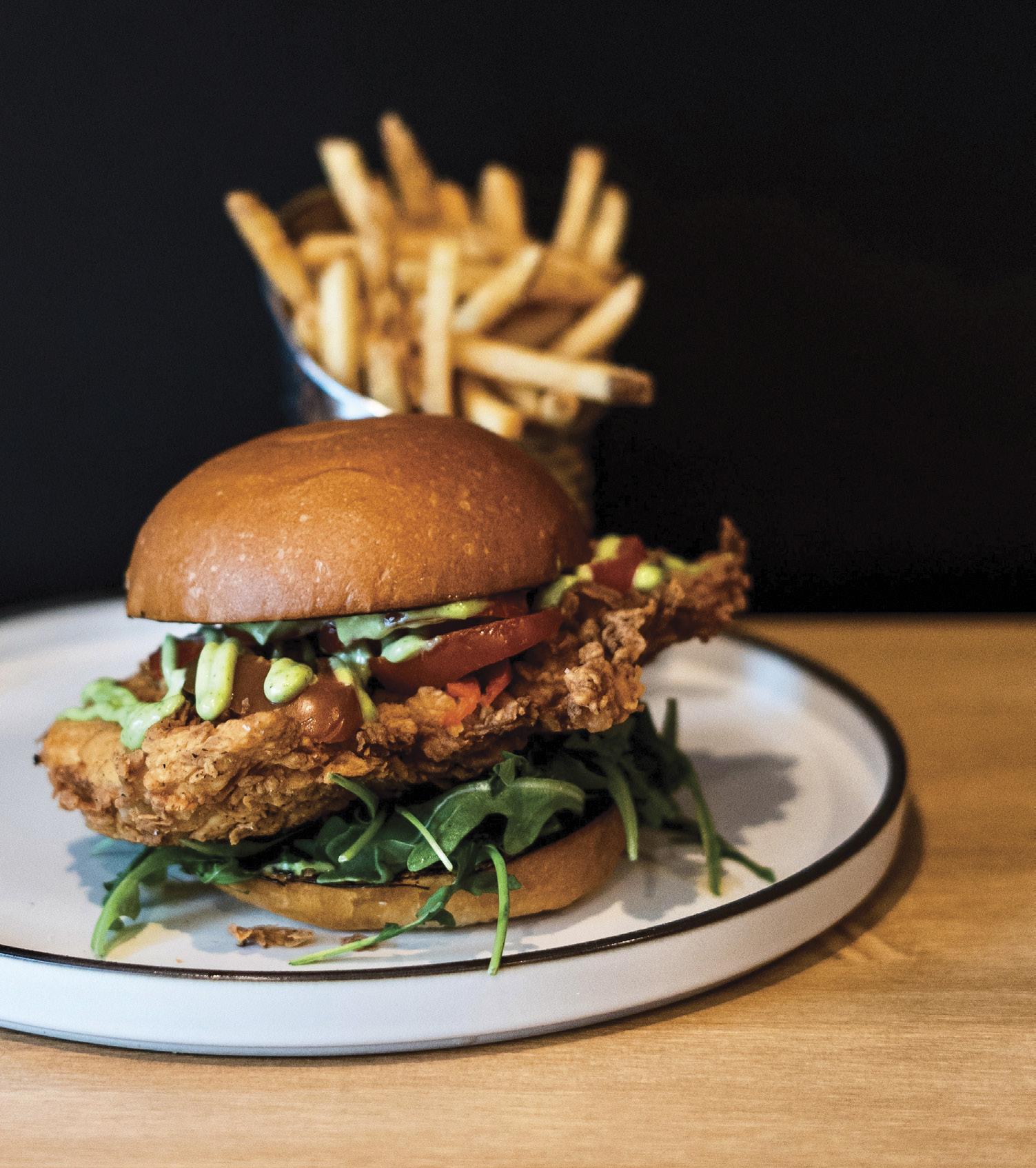


Old World Sicilian cuisine meets contemporary gastropub vibes at Spettro, Poughkeepsie’s new dining hotspot in the city’s Arlington district. Co-owners—and best friends—Giovanni Ilardi and Michael Purcell developed a dining concept centered around Italian fare that’s elevated yet rooted: Sicilian family recipes made with Manhattan-quality ingredients served with an upstate vibe. And after more than a year of planning, including 18 months of construction, the new spot opened in December.
“We offer authentic, elevated Italian pub fare, with a great mix of New York State beers and Italian wines,” Purcell says. “Giovanni’s family is from Sicily, so we highlight a lot of Sicilian street food and traditional recipes, often with a small twist. For example, one pasta dish is a pistachio pesto over bucatini and pesto is traditionally olive oil based, but we used butter to give more of a silky texture, and it’s a very popular dish.”
“If not the best-seller, it’s one of the top,” adds Ilardi, who was formerly a general manager at Poughkeepsie establishments Zeus Brewing Co. and Schatzi’s (Purcell was in digital marketing). “There’s nothing wrong with a classic red-sauce joint, but when building out the menu, we wanted more authentic Italian, as opposed to ItalianAmerican.”
Spettro offers varying menus for lunch and dinner
Tuesday through Saturday, with brunch on Sundays. Lunch options center around sandwiches, salads, and Neapolitan-style pizza; dinner options expand to include steak frites ($37), seared sea scallops ($36), bone-in pork chop ($35) and a handful of pastas from cacio e pepe ($22) to seafood linguine ($32).
The crowd-pleasing Degausser pizza ($22) with nduja, bacon, honey, arugula, mozzarella, on a sesame seed crust is a popular pick, as is Suppli, a fried spaghetti prepared in the same way Roman chef Gabriele Bonci prepares it, with homemade tomato cream ($14). Sandwiches come on a variety of breads, including panuozzo, a homemade pizza dough puffed up as a sandwich pocket. One iteration is stuffed with mortadella, stracciatella, fig jam, pistachio crumble, and frisée ($17).
Sunday brunch features traditional favorites with an Italian twist, like the Spettro benedict, poached eggs made with crispy speck instead of ham and a side of fingerlings ($18), or the mascarpone panettone French toast with grilled apples and drizzled honey ($16).
“We had menu ideas in mind before we hired our chefs, who then provided their ideas, and we worked together to put the best meals on our menu,” Purcell says. Spettro’s executive chef Eric Walter, a CIA grad, previously worked kitchens at local high-end hotels Wildflower Farms and Restaurant Kinsley.














The bar offers 12 New York State-heavy taps, with some European options like Peroni, and a wine list featuring red, white, and sparkling wines by the glass ($9-$13), all from Italy. “We tasted 100 to 150 options prior to opening; we wanted guests to be able to come in and try something new.” Beverage manager Amelia Bucher designed their specialty cocktail menu in the same vein, with the goal of introducing more guests to Amaro and Italian aperitifs. For instance, The Dawn features tequila, lime, Aperol, jalapeno, basil, and prosecco ($14). Sowing Season is made of Italian gin, Cocchi Vermouth di Torino, Cynar, maraschino, and Hellfire bitters ($14).
Dessert includes traditional Sicilian treats, like brioche con gelato ($10), cannoli with sheep’s milk ricotta and pastry shells imported from Italy ($10), or Biscoff cheesecake baked fresh by Ilardi’s wife, Dawn ($11). “It’s a real family business,” he says.
Even the name of the gastropub has a family connection. “I have a young son, and around the time we were trying to think of names for the restaurant, he was learning how to talk,” Ilardi explains. “It was around Halloween and this little ghost came on TV, so ‘ghost’ ended up being his first word. Spettro is ‘ghost’ in Italian.” A cute line drawing of a ghost serves as the restaurant’s logo.
The gastropub is located in a newly constructed multi-use building where a former single-family home once sat. “It’s one of the fortunate but also difficult tasks to design a brand-new build,” Ilardi says. “But we designed a 70-seat, rustic-industrial interior with an open kitchen.” Wood accents warm up the black-and-white color scheme, with exposed ventilation and hex tiles throughout. “Even though it has that industrial look, it’s at the same time very warm and welcoming with lots of natural light,” he continues. “People like to stay here awhile, even if they just come in for one drink.”
“We’re big on hospitality,” Purcell says. “We’re both on the floor at all times, and it’s important that a guest feels happy from when they walk in to when they leave.”
Spettro
44 Lagrange Avenue, Poughkeepsie
Open for lunch and dinner Tuesday through Saturday and for brunch on Sundays. Closed Monday. Spettropk.com
304 Main Street, Beacon
First opened a year ago in the Hudson Valley Food Hall, Elixxr Cafe recently moved to its own storefront on Beacon’s Main Street. Pink and white dominate the clean, minimalist room containing five tables, comfy chairs with armrests, and a row of seats along the wall. The wellness cafe serves up adaptogenic lattes, matcha, and espresso drinks featuring close to half a dozen health-supportive ingredients from herbs to plant powders and mushroom tinctures, in a kaleidoscope of colors and flavor profiles. The drinks with ingredients feature natural plant remedies adapted from Ayurvedic practices and Traditional Chinese Medicine. Along one wall, shelves display items for sale, including herbs, plant tinctures, and cacao.
Elixxrcafe.com
18 Westage Drive #12, Fishkill
Located in a sprawling asphalt wasteland in the shadow of a Walmart Supercenter off bustling Route 9, Gymkhana is perhaps not winning any beauty contests. But what it lacks in curb appeal it more than makes up for in quality and value with its a la carte and buffet offerings of Indian food, with a special focus on dishes from Kerala. Spices are imported from India, and the kitchen, headed by two co-owners and CIA grads, uses fresh vegetables and aromatics like curry leaves and chilies. You could stick to the familiar classics (tikka, vindaloo) or branch out and try something new like the salli boti, a lamb curry sweetened with apricots and topped with crunchy straw potatoes. The buffet ($15.95 weekdays, $21.95 on weekends) offers the most bang for your buck and a road map to finding your favorites.
Gymkhanafishkill.com
20 Railroad Street, Great Barrington Refined but not fussy, new addition to the Great Barrington dining scene the Elm provides a convivial and comfortable dining experience. Uplit, exposed brick and white table cloths pair with the century-old, meticulously restored mahogany bar to give the joint a definitive upscale vibe. The menu centers New England classics, including a range of seafood dishes from the hake crudo appetizer ($18) to the seared scallops main, served with polenta, shaved Brussels sprouts, pancetta, and truffle. With cognac mushroom glace, house riccotta, local maitakes, and crispy capers the
housemade pasta packs an umami punch. There’s also duck and rib eye for the meat-eaters. The food menu is brief and tight and is accompanied by a wine-by-the-glass list as well as classic cocktails.
Theelmgb.com
47 E Main Street, Beacon
After Beacon’s beloved watering hole Dogwood abruptly closed last summer, months of speculation followed. In mid-January, the spot reopened with a bang as Cooper’s under new owners Brendan McAlpine and Marjorie Tarter. The couple are no strangers to the region’s hospitality scene, other current projects include the Beacon Movie Theater and the Wonderbar Cocktail Lounge contained within, and the Bird & Bottle Inn in Garrison. The squat brick building touts more than a century of history as a bar, and in its latest incarnation things haven’t changed that much from Dogwood— some seating upgrades, a kitchen remodel, and uncluttered walls that await time’s natural accumulation. The menu offers the classic American bar fare mash-up, with selections ranging from fish & chips to a kimchi rice bowl to tuna nachos and a wedge salad. The drink options are many, with PBR holding down the affordable end of the spectrum at a sunny $5. Cocktails are in the $12 to $16 range and the dozen wine options come by the glass or bottle.
Coopersbeacon.com
47 Lander Street, Newburgh District Ramen joins Downstate on Lander Street, hinting at an emergent and unlikely culinary corridor on a residential street off Broadway. A rad, red-and-yellow sun mural lights up the brick wall behind the bar at the new shoebox Japanese spot, which peddles all your favorites from Ichimi cucumber salad and gyoza (both $6) to steamed buns ($9). If you don’t know takoyaki— octopus-stuffed fried dough balls drizzled with sauce, mayo, and bonito flakes—this is your chance ($9). But it’s still winter folks, and we’re all really here for the ramen. There are four options ($16-$19), each with a different broth base, including one veggie option. Spice lovers, make a beeline for the Edison bowl with tan tan broth and wavy noodles, topped with bean sprouts, bok choy, scallions, chili oil, ground pork, chili paste, and ground sesame ($17). District Ramen also offers sake by the cup ($6-$9) and rotating craft beer on tap.
Disramen.com





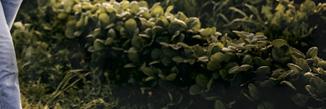


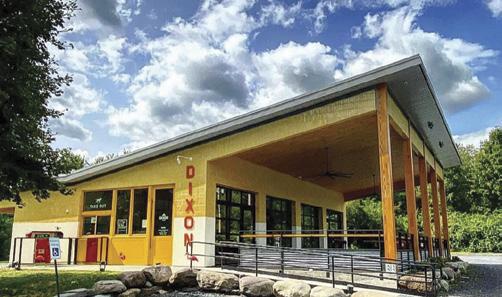



WOODSTOCK. Woodstock, NY has fast become the culinary capital of the Hudson Valley. Now there's an opportunity to join notables like Silvia, Good Night, The Red Onion, Cucina and Medo with this building on Route 212 between Woodstock and Bearsville - a recipient of an American Institute of Architects award, it was designed for Dixon Roadside and is now available for an exciting reincarnation. This nearly-new state-of-the-art facility is sited on .94 acres with plenty of parking. The restaurant encompasses both a highceilinged interior and spacious open-air dining room. The striking retro styled building will be sold as a complete package with all FF&E & interior and exterior walk-ins as well as improved shipping containers used for storage and office space; one could not build this property for this price. $2,200,000
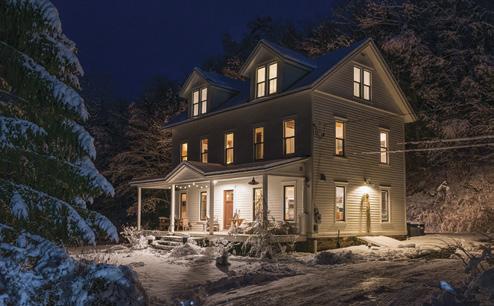
PINE HILL. This stunning property has been completely renovated in the past 5 years and is a tranquil retreat that offers a unique style (combining tradition with a rustic loft feel) and two living spaces. Set on a dead-end road, a stone’s throw from the village and a 5-minute drive to Belleayre ski center (and the beach). $899,000


HUNTER. Minutes from the entrance to Hunter Mountain, this is where chic design meets outdoor adventure. Designed by Sachs Lindores Architecture & Interiors it offers a special blend of sophistication and functionality - from the Malm Fireplace, to a yellow metal support beam, to the Noguchi and Bolich lighting, every detail is perfection; furnishings included. $849,000

HILLSDALE. This sweet, mondern cottage offers Upstate lakeside living on Copake Lake, where every day feels like a vacation day. This is your chance to own a bright, cheery, energy efficient lakeside home in Columbia County. Copake Lake is a pristine glacial lake where boating, fishing, swimming and kayaking are frequent pastimes. Relax on the front deck overlooking the lake or hang out on your own private boat dock. The house was built in 2020 on the foundation of an older lake cottage and features lake views, an open floor plan with lots of natural light, and a spacious loft bedroom. Copake Lake isn't the only attraction in this area; hop in the car and visit nearby Hudson, Catamount Mountain Resort or Lake Taghkanic State Park. Make your move to the lake today! $539,000 Contact R.E. Salesperson, Joel Craig 518-821-6548 (cell)



In the living room, the couple utilize an open staircase wall as a rotating gallery space. On display are a collection of Margevicius’ eclectically framed prints. Clockwise from the top are works by Sean Kilcoyne, Bronwen Wickstrom, Orfeo Tagiuri, Jon Beacham, Eli Craven, and Margevicius. The baby grand piano was a gift from Margevicius’s father. While, Coates regularly composes at the piano, lately she’s found herself writing music as she drives through the mountains. “I was driving on windy roads and just singing melodies at the steering wheel,” says Coates. “The song ended up being on our latest record, Nowhere Now Here. I thank the mountains for that one.”
Deep inside the contemporary cabin of Gracie Coates and Sam Margevicius there’s a basement. Deep inside that basement, there’s a woodshop. And deep inside that woodshop, there’s one solidly constructed table. At the back corner of that table, hidden under plywood, there’s one artfully constructed table joint. “For the past few years I’ve been in a conversation with a Zen Buddhist monk,” explains Margevicius, a former Cub Scout and now artist working in and around the space of photography. “Seventy-five percent of our conversations goes over my head—but I sometimes pick up little flashes of wisdom.” Margevicius had enlisted the help of his father, a former scoutmaster, sometime accordion and piano player, and now engineer working in and around the space of circuit boards, to help build the woodshop where Margevicius creates frames out of trunks and branches culled from the surrounding woods.

Son and father were building the large worktable from a felled pine when they came to the table joints in the back. “ They were just functional and going to be completely covered up,” says Margevicius. “ The aesthetics didn’t matter at all. But I thought we should make one beautiful joint, just for its own sake, and no one would ever know it’s there but us.” His father loved the idea, so the two went to work crafting the perfect corner with reverence. “ Then we covered it and never saw it again,” Margevicius says. (He did, however, snap a photo first.)
The idea of crafting something artfully for its own sake, even when no one else will see it, and the corresponding flow between the crafter, the process, and the materials at hand—or, as the Japanese put it, monozukuri—describes how both Margevicius and Coates approach their respective creative work. It also describes how they’ve designed their almost 1,600-square-foot cabin, which is an artful mix of flowing, open spaces, ingeniously framed art, and secret, masterly crafted details. Spread over three floors, the openconcept home centers around a heptagon shaped great room with cathedral ceilings and a convex wall of double-height windows looking out onto the woods. While there are few interior walls or doors dividing the free-flowing interior, the
couple have used the few walls they do have as a personal gallery where Margevicius’s framing often upstages the art.
Levon Helm Calling
It was Coates’s winding musical journey that led the couple to their Woodstock home. One half of the orchestral pop duo Gracie and Rachel, Coates has been composing songs and playing piano since childhood. “ The piano is my core instrument and the place where I evolve the majority of my work,” she says. “I write alone, I write with others, I write when I need to cry and when I need to laugh.” She began collaborating with violinist Rachel Ruggles during high school in Northern California. After college, the two moved to Bushwick and completed their debut album. The album’s ethereal soundscape, mixing Coates’s vocals and piano with Ruggles’s classical violin, defines its complex underlying tension. The debut caught the ears of many—including artist Ani DiFranco, who signed Gracie and Rachel to her label Righteous Babe Records and invited them on tour. By the end of 2019, Gracie and Rachel had been touring for the better part of five years and were completing a run with DiFranco when they performed at Levon Helm’s Studio in Woodstock. The town and venue left a lasting
The open dining area has views to the home’s grassy yard. During the pandemic, the couple took turns bartending for each other from opposite sides of the metallic kitchen island. “We called it the graphite bar,” says Coates. The coat hangers are by Sean Kilcoyne. The art to the left of the door is by Robert Mapplethorpe.






The couple decided to add an oven hood, shelves, and a tiled backsplash in the kitchen when they moved in. To stay true to the design aesthetic, they chose tiles from Californiabased ceramicist Ann Sacks, who created to radiant heat and shower tiles.
impression on Coates. “Being on tour in a different city every night can be beautiful but can also feel lonely,” says Coates. “ The show at the Helm Studio felt like receiving a giant hug. Not only is the physical space magical, but the way performers are quite literally wrapped by the audience is so impactful.” After the show, local artists introduced themselves to the duo, including Amanda Palmer. “She just made a beeline to us, and said, ‘You’re moving in with me next week,’” remembers Coates. “That performance gave us a beautiful passageway into the community.”
Artist’s Rescue
Meanwhile, Margevicius, also a Bay Area native, was in Brooklyn apprenticing with a master printer. “There’s this jack-of-all-trades mentality in California,” he says. “Coming to New York I had the intention of focusing my art. So for four years, I did the exact same thing: I was in the same room, every day, making one picture. It was a slow, deliberate task. I felt just like the Karate Kid.”
The couple had already been flirting with the idea of moving upstate and so decided to take Palmer up on her offer to visit. “She really sucked us in, but in a beautiful way,” says Coates, who also reconnected with a mutual friend, singer-songwriter Holly Miranda. Coates and Margevicius became regular visitors at Palmer’s property, where they
worked in the on-site studios and took in the natural setting. Coates appreciated the opportunity to slow down and focus on new work, and after 10 years of hyper-focused city life, Margevicius appreciated reconnecting to a forgotten part of himself. “Growing up on the West Coast, being in nature was a huge part of my life,” he says. “I realized I’d completely ignored that whole part of myself.”
The couple decided to move upstate the winter after Coates’s Helm Studio show. “That show felt like a big welcome-home party, even though we’d never been here before,” Coates says. “So, it seemed obvious Woodstock would be where we would land.” They soon found their contemporary home and loved its story. It was first constructed in the 1990s, and a previous owner had begun renovating the house in 2016 with the intention of creating an animal rescue. “She had a three-legged dog and a pig, so a ramp leading to a shower was added,” says Coates. “It felt like a glorified chicken coop.” However, the two-bedroom, two-bath “coop” was completely updated, requiring little work by the couple.
It was also surrounded by 10 wooded acres of white pines and one gnarled old hemlock overlooking the house. Bordered by DEP lands, the property has access to a stretch of the Little Beaverkill. The couple made the home-buying plunge within weeks of the 2020 lockdown. “We can’t believe how fortunate we were,” says Coates. “We really struck gold.”
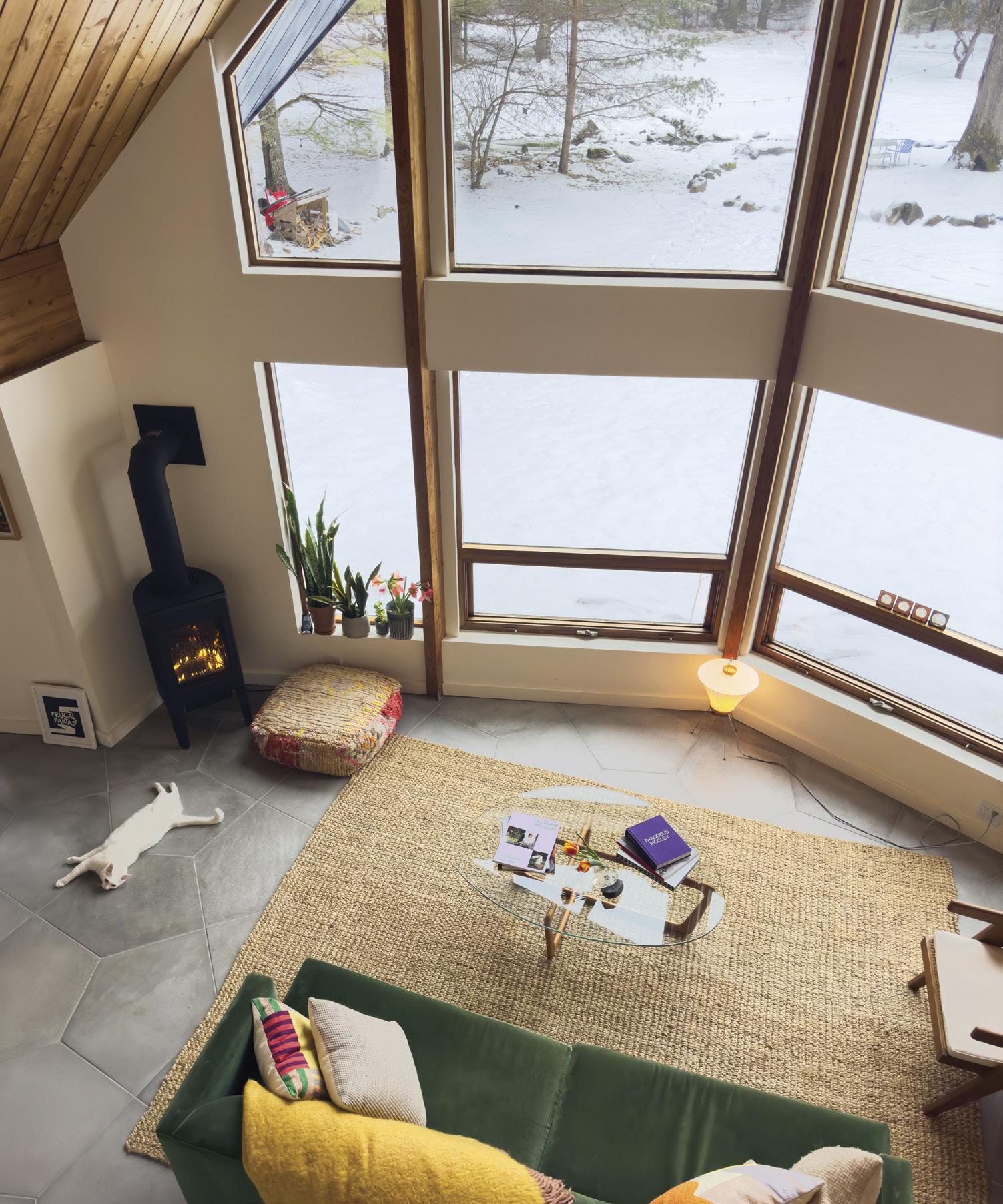
To add to the living room’s cozy appeal, they installed a gas-burning fireplace in one corner by a convex wall of windows. “The windows make you feel like you’re outside when you’re inside,” says Coates. “Which, when you’re new to the country, can be terrifying. But I’ve come to learn it’s a beautifully terrifying thing.”

WE IMPROVE OUR CLIENTS’ LIVES BY IMPROVING THEIR LIVING SPACES
We’re not your typical kitchen and bath company. We are a design firm that creates functional spaces tailored to the
We

































2
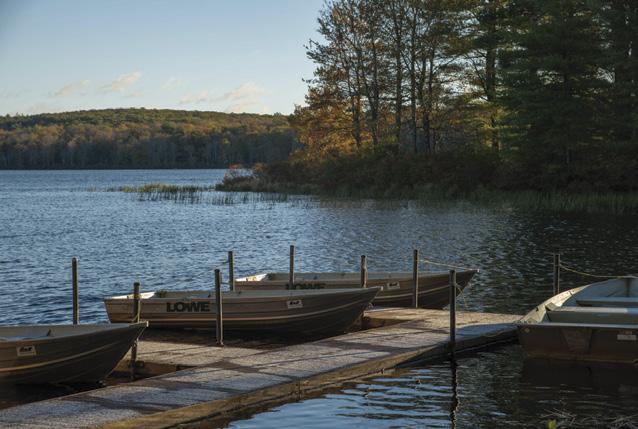

The couple’s contemporary cabin sits in the middle of almost 10 wooded acres. “Most of the area is white pine forest,” says Coates. “There’s a magic to how the trees surround the home, but at a distance. “In the center of the open lawn is a giant Hickory, which the couple have named Hilda.

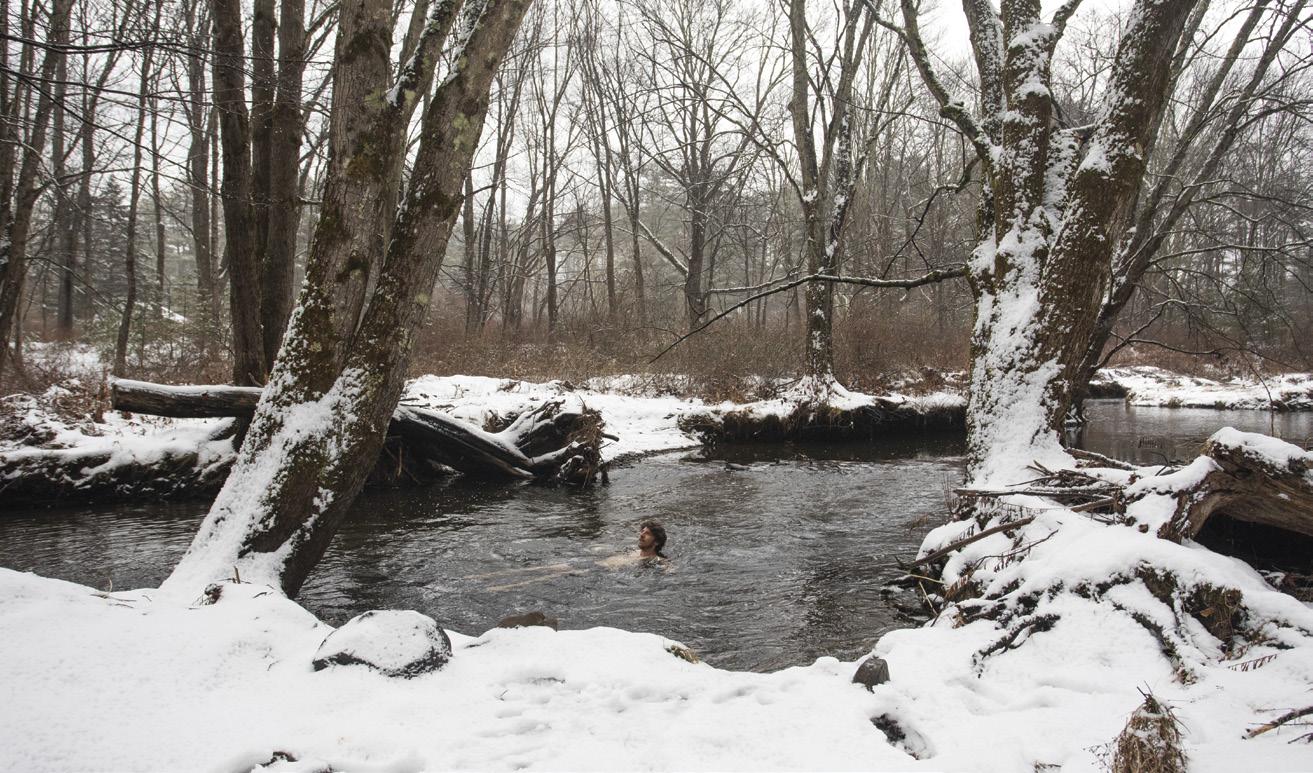





























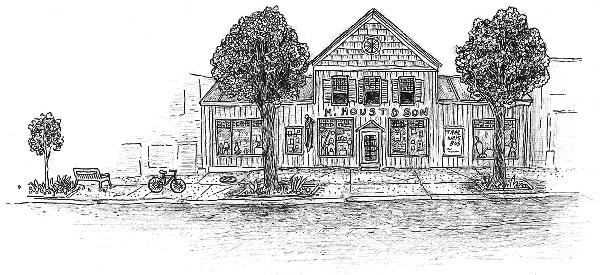





They spent the first months of the lockdown putting their distinct touches on the space and learning to steward the surrounding landscape. “We have an affection for a minimal, modern style but with colorful, playful flairs,” says Margevicius. A built-in bookshelf lines one living room wall. To amplify the coziness, the couple installed a gas stove in the opposite corner and added a plush velvet couch. The baby grand piano was a gift from Margevicius’s father and matches the wood ceiling and trim. A first-floor guest room with an open double shower accessed the yard (a remnant of the home’s almost-animal rescue days) and the open kitchen and dining area features stainless steel appliances and custom tiles.
The primary bedroom suite fills the entire third floor loft. It includes an ample bathroom and cavernous walk-in shower (open), a separate freestanding tub in a bedroom nook (open), Coates’s work space (open), and access to the home’s high-tech mechanicals (hidden by a specialized sliding frame crafted by Margevicius). A second-floor balcony looks out over a swimming hole in the Little Beaverkill.
As the world began reopening in 2021, the couple decided to open their home a bit as well. Coates teamed with Holly Miranda to create “Golly Presents,” producing open-air shows on the lawn around the hemlock tree that quickly enjoyed packed audiences. Soon Palmer joined in, and, realizing they were on to something, the trio opened Graveside Variety, a musical and performing arts space in Woodstock. The venue’s growing popularity has inspired an expanding roster of events.
Margevicius’s father also visited to help build the basement wood shop, along with the one perfect table joint. “He also bought me a tool shed,” says Margevicius. “Actually it was the same tool shed his father had once bought him.” One of Margevicius’s first projects in the new workshop was building a frame from the first pine he felled with tools from the shed. “Then I took a picture of the shed for the frame and sent it to him as a thank you. “Hidden on the back was a secret picture of the table joint the father and son crafted artfully, for artfulness’s sake. “He loves it,” says Margevicius. “In fact, he sends me pictures all the time of himself looking at the secret picture.” For that picture, Margevicius is artfully crafting the right frame.
Well before the daffodils bloom in our gardens each spring, there’s already one item on parents’ minds: A summer camp or program that will help their little buds flourish, too. Luckily, the Hudson Valley is ripe with opportunities for exploration, imagination, and cultural enrichment for teens, tweens, and kids as young as age three. From nature-based programs to creative workshops for burgeoning artists, here are a few wonderful programs to spark your search.


LaGrange, NY (845) 214-0260
Hawkmeadowmontessori.com/program-highlights/summer-program
Hawk Meadow Montessori School’s seven-week summer program takes place on their beautiful six-acre campus, featuring a large natural playscape, gaga ball, basketball, ping pong, a zipline, gardens, and a greenhouse. Under the guidance of Montessoritrained staff, students will explore art, cooking, water play, science, gardening, games, and mindfulness, with lots of outdoor time. This program is open to students ages 3-12 from June 17–August 2, 2024. Half or full-day spots are available.

High Falls, NY (845) 256-9830
Wildearth.org
At Wild Earth, all of the senses are engaged as campers meet plants and animals, learn wilderness skills, create natural crafts, and build deep connections with friends and inspiring adult and teen mentors. Guided by patterns observed in nature, each day begins by gathering in the woods through expressing gratitude and finding new ways to play. They form smaller groups and set up camp in the forest by building fire pits and shelters. Instructors tailor activities to the interests of the campers, fostering curiosity and guiding learning through skillful questions, opportunities for appropriate risk-taking, and empowering challenges.

West Nyack, NY (845) 358-0877
Rocklandartcenter.org
A place for young artists to explore creativity on spacious grounds and in professionally equipped studios. A large sparkling pool and open field provide plenty of healthy outdoor recreation. Campers learn to express themselves through the visual and performing arts. 4 two-week sessions: July 1-August 23, 2024 with a 3 or 5-day-a-week option. Saturday Open Houses: March 16, April 13, or May 11: 2-5pm.

Hudson, NY (518) 567-2170 Olana.org/panorama
Dive into Frederic Church’s Olana this summer! Back for its 15th annual season, The Olana Partnership will offer four weeks of hands-on exploration for children ages 6-11 from July to August at Olana State Historic Site. Experience art, science, and nature through sketching, lake exploration, hiking, painting, play, and more, all while meeting new friends and learning from the experts. The whole summer focuses on art and nature with special guest visits and activities each week. You don’t want to miss this unforgettable summer adventure! The program runs Monday-Friday, 9am–3pm. Scholarships are available by emailing education@olana.org.
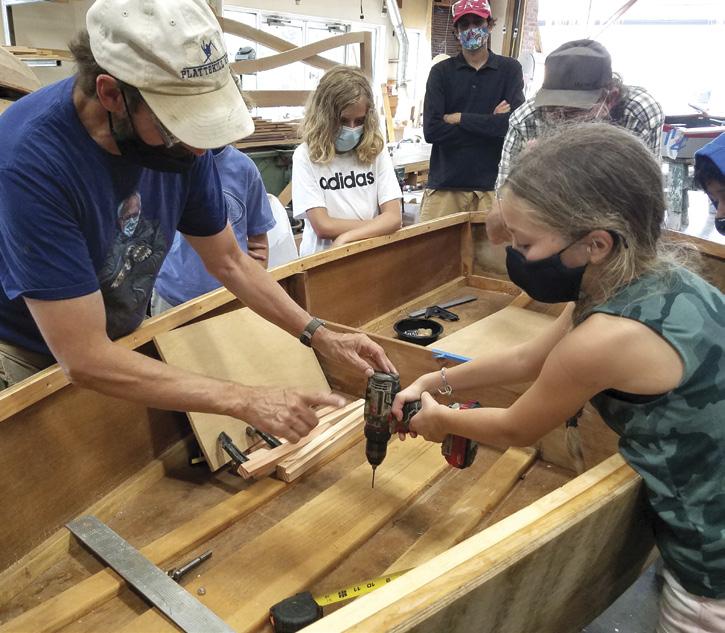
50 Rondout Landing, Kingston, NY (845) 338-0071 Hrmm.org
Every summer, the Hudson River Maritime Museum offers kids and teens a chance to experience the magic and history of the Hudson Valley’s rich sailing traditions. The museum, located on the banks of the Rondout Creek in Kingston’s historic waterfront district, hosts immersive multiday programs that teach practical skills in sailing and woodworking that build self-confidence and forge new friendships.

Little kids will have a blast out on the water in the Parent-Child Sailing Class (ages 5-9) or Introduction to Youth Sailing (ages 7-9), which teach the basics of sailing in a nurturing, fun environment over the course of three days.
For tweens and teens ready to become self-sufficient sailors, the oneweek Youth Sailing Program (ages 10-17) dives deep into developing skills on a variety of boats, from eight-foot training dinghies to racing boats and more. The four-day Building and Sailing Boats course offers a well-rounded blend of STEM-focused skills and activities that provide an introduction to woodworking, boatbuilding, and sailing. A limited number of spaces are reserved in each sailing class for scholarship recipients.
A week-long Youth Woodworking class (ages 10-16) draws on the traditions of wooden boat-building to provide an introduction to the craft of carpentry. Participants will learn everything from shop safety to joinery to tool use and care, and complete their own project to take home.
This year also welcomes the first-ever Soapbox Derby class, a group-build course where students work together to create a non-motorized kinetic sculpture for the annual Kingston Artists’ Soapbox Derby in August.
Produced by Chronogram Media Branded Content Studio.

Scan to learn more about summer programs at Hudson River Maritime Museum

Hancock, NY (973) 454-0315
Fudrcanfieldcamp.com
The premier coed fly fishing camp for kids 12-17 on pristine Catskill trout waters. A week-long sleep-away experience that inspires a lifelong passion for fly fishing and a commitment to conservation while nurturing personal growth and confidence. Working one-on-one with expert guides, campers learn to cast, tie flies, catch and release fish, and basic entomology and river ecology. Many fun activities away from the water. Top-notch facilities at ACA-accredited French Woods Center. First-timers get a free Orvis rod/reel. Scholarship support available. Two sessions, in June and August.

Ghent, NY (518) 672-4465 ext. 203 Hawthornevalleysummercamp.org
Embark on an extraordinary journey with Hawthorne Valley Farm Camp, where children aged 8-16 are invited to embrace an unplugged adventure. This isn’t just a camp; it’s a gateway to a profound connection with the natural world. Delve into the art of caring for animals and nurturing the earth, forging memories that will last a lifetime. In a society where understanding the origins of our food is a rare luxury, this camp provides an immersive experience of the journey from farm to table. Its transformative power goes beyond education, fostering independence, self-confidence, and a deep well of compassion, shaping a holistic awareness that will last a lifetime.

Litchfield, CT (860) 567-1802
Formanschool.org/summer
The Forman Summer Program, a fun coed boarding and day camp, takes place on the Forman School campus during the month of July. The program is a dynamic balance of academics and recreation for students entering grades 7-11 who learn differently. Under the guidance of expert faculty and staff, students discover their unique learning styles while being inspired, challenged, and empowered. They develop effective and tactical classroom and study strategies, learn self-advocacy, and gain lasting confidence in their abilities.
The Art Effect
Poughkeepsie, NY (845) 471-7477
Thearteffect.org
The Art Effect’s summer art camps and classes allow young artists to explore fine art, digital media art, and performing arts while strengthening their self-confidence, creative thinking, and art-making techniques. Professional artists and experienced teachers lead youth ages 5-19 to imagine, discover, create, and have fun this summer. Register today!

Hudson Valley Writing Project
New Paltz, NY (845) 257-2836
Newpaltz.edu/hvwp/summercamps
HVWP Young Writers Programs bring children and teens together to find their voices, share their ideas, and discover the joy of writing. Experienced teachers create inspiring and supportive settings for students to write and explore their interests—art, nature, fantasy, activism, podcasting, and more! Tuition assistance is available.

Berkshire Art Center
Stockbridge, MA (413) 298-5252
Berkshireartcenter.org
Be inspired to make art all summer long! Join Berkshire Art Center for an exciting summer season of fun and creative art-making camps led by local artists for children ages 4-14 years old. Register for one or more weeks of camp by visiting the website.
The Rowe Center
Rowe, MA (413) 339-4954
Rowecenter.org
Join us for our 100th year of summer camp in the Pioneer Valley of Western Mass! Welcoming young minds aged 8 to graduating seniors who are fun-seeking creatives and change-makers desiring a more inclusive world. Explore 40 acres by Pelham Lake, live Unitarian Universalist values, and be part of a transformative summer adventure.
Wheelhouse Creative Education Center
Acra, NY (518) 943-4649
Catskillwheelhouse.org
Camp at Wheelhouse Creative Education Center is all about curiosity, creativity, and quirkiness. Days are filled by exploring the land, then transforming these experiences into creative expression through visual art, performance, and conversation. Weekly themes serve as invitations to explore new topics, which evolve in myriad ways through children’s contributions.
Kingston, NY (845) 383-1528
Seedsongfarm.org
Seed Song Farm Camp unfolds children’s innate curiosity about farm and nature, which inspire exciting weekly themes. Activities evolve around each camper’s learning style and enthusiasm as they explore farm and forest, care for plants and animals, practice traditional skills, make music, arts and crafts. Ages 4-16. Financial assistance available.





New Paltz, NY (845) 255-0033
Mountainlaurel.org/summer
Conveniently located in the heart of New Paltz, Summer Days at Mountain Laurel offer an enriching and nurturing Waldorfinspired environment for children ages 3–11. Both residents and summer visitors to the Hudson Valley are welcome. Enthusiastic and experienced instructors bring wonder and adventure through outdoor play, crafts, song, games, storytelling, and building projects using natural materials. Rhythm and reverence will follow your child throughout the day. Weekly and daily rates available June 24–August 23. Monday–Friday. 9am–3pm. Sibling discounts available.
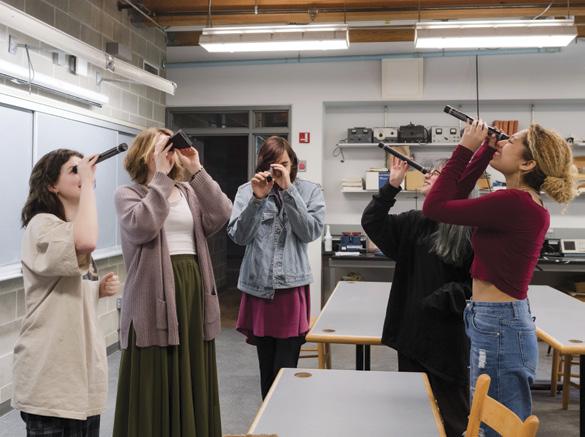
Great Barrington, MA Simons-rock.edu/curiositycamp
Curiosity Camp at Simon’s Rock is open to inquisitive and motivated students interested in exploring their academic and creative interests in a college environment while they are currently completing grades 9, 10, or 11. Students participate daily in Simon’s Rock’s signature Writing and Thinking Workshop along with a Seminar, and arts and science courses to experience diverse and exciting academic offerings. The program’s cohort of 30 students allows for small class sizes where students and professors can collaborate and engage in dynamic discourse in this academic summer camp. Students live on campus in the college’s residence halls.
Music & Dance Camps at Ashokan
Olivebridge, NY (845) 657-8333
Ashokan.org
Come sing, dance, and jam with newfound friends in a serene natural setting. Camps for all ages begin in May and include: Acoustic Guitar, Bluegrass, Family Camp, Banjo Weekend, Scottish String Fling, Ariles Son Jarocho, Uke Fest, Old Time Rollick, Northern, Southern, Western, and Swing. Pricing includes on-site camping and delicious meals. Private rooms/bunks are available.

Berkshire South’s Action Adventures Day Camp
Great Barrington, MA (413) 528-2810 ext. 34
Berkshiresouth.org/aadc
Action Adventures Day Camp is packed with play and exploration! Campers will perform STEM experiments, build castles, make healthy snacks, craft, and play games. We’ll also go on fun field trips. Campers have access to our onsite amenities including playgrounds, fields, trails, and pools. Open to children ages 5–14, from June 24–August 22.

Garrison Art Center
Garrison, NY (845) 424-3960
Garrisonartcenter.org
Embrace the world of creativity with Garrison Art Center’s Summer Programs. Offering three options for students in Kindergarten to 12th grade: Summer Arts Institute, Summer on the Hudson, and Art a la Carte. Your child or teen will have an amazing experience exploring their creativity. Register for one or more weeks online.
Esopus, NY (845) 384-6424
Horsesforachange.org
Celebrating the magic that happens when humans and horses connect in a supportive, non-competitive atmosphere. This nonprofit offers summer riding weeks for kids, with riding for all ages and levels and lots of barn fun and horse care. “We emphasize empathy and understanding of our non-verbal, but very communicative companions,” says Director Nancy Rosen.


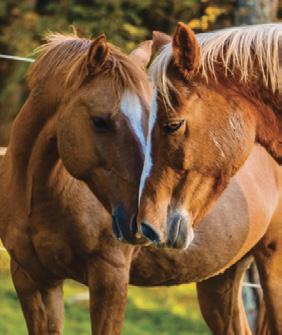
Hudson




















Acramped hallway. A closed door to a stairwell. People calling to someone inside, trying to coax him out. “I don’t want to hurt anyone—please go away,” Daniel McAlpin, 41, calls through the door. It’s the evening of September 9, 2022, in his family home outside Ellenville.
Those outside had drawn guns—law enforcement officers had been called there to bring in McAlpin for a mental health evaluation, according to an October 2023 court filing. Now McAlpin was inside the stairwell wielding a knife.
“Danny, we want to build trust with you,” calls an officer, according to videos released by the New York State Attorney General’s office.
“I don’t want to build trust!” McAlpin yells back.
A second later an officer opens the stairwell door, and one shines a flashlight upstairs. McAlpin walks down with the knife. The police tase him but he keeps coming, and officers yell at him to drop the weapon. McAlpin reaches the main floor and emerges, appearing to swing the knife.
An officer fires five shots, and McAlpin falls. “We got him! We’re safe, everybody’s safe,” yells one police officer. Much is yet to be known: The state attorney general is investigating, and McAlpin’s parents are suing the officer who fired the shots that killed him.
McAlpin’s death was one of 104 police-involved shootings of someone in crisis nationwide in 2022. One study concludes that almost a quarter of police killings are mental health-related and that half of those happen in the person’s own home. Besides McAlpin, there have been at least two other police shootings of people with mental health issues since 2021 in the Hudson Valley. In the absence of a robust treatment system, police often function as front-line mental health workers, a role they didn’t sign up for.
Since George Floyd’s murder in May 2020, activists have insisted on an alternative to police in cases in which they say a badge and gun aren’t needed. The Ulster County-based grassroots group Rise Up Kingston, for example, demanded in its platform that police no longer be involved in mental health incidents, welfare checks, nonviolent crimes, car accidents, or
Nationwide, there were 104 police-involved shootings of someone in the midst of a mental health crisis in 2022.
evictions—22 percent of the city’s police dispatches in 2019 by the group’s count.
“We demand that 22 percent of the police budget go into a contingency account to allow the community to strategically decide how we should spend our dollars for public safety,” the platform reads. “In some communities, medics and mental health workers are dispatched to welfare checks, potential overdoses, and other situations which can best be handled by trained medical and mental health professionals.”
That’s one increasingly popular alternative: mobile mental health teams, clinicians paired with an emergency medical tech or peer caseworker—someone who’s been through their own struggles—to respond to people in crisis. They get people who are struggling into services that can help by using a range of tools: making a personal connection, respecting physical space, using sensory soothing techniques like blankets or smells, and more.
Since 1989 in Eugene, Oregon, two-person teams including a crisis worker and a medic have responded instead of police to such incidents, a program called Crisis Assistance Helping Out on the Streets, or CAHOOTS. In 2019, CAHOOTS teams called for police backup in only 311, just over one percent, of about 24,000 calls they took on.
In the police reform discussions after Floyd’s killing, expectations ran high for mobile teams significantly cutting how often police respond to people in crisis.
But around the country, and at least in the Hudson Valley’s most-populous county, police are still getting called in on the majority of these cases. And nowhere is there clear data yet showing that they’ve reduced the number of times police are deployed overall.
Much of what cops get asked to do makes it plain why clinicians and social workers should have been handling some of these situations to begin with. In Westchester County, a police reform task force recommended the creation of mobile crisis response teams in an April 2021 report, and a year later those teams were up and running. Claire Hurst and David Warnock have served on some of those. Both are mental health professionals with Family Services of Westchester, which is contracted to run some of the county’s
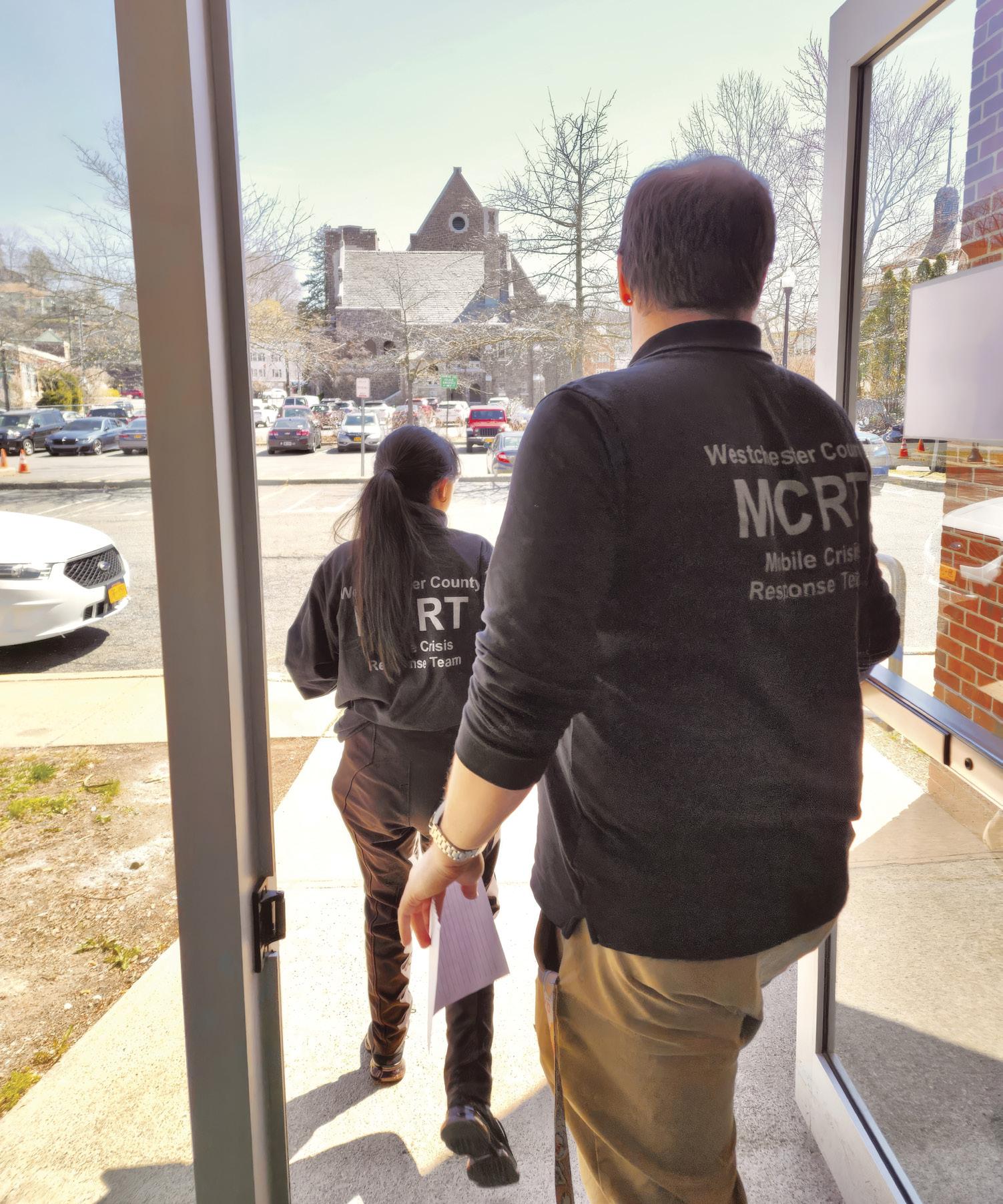





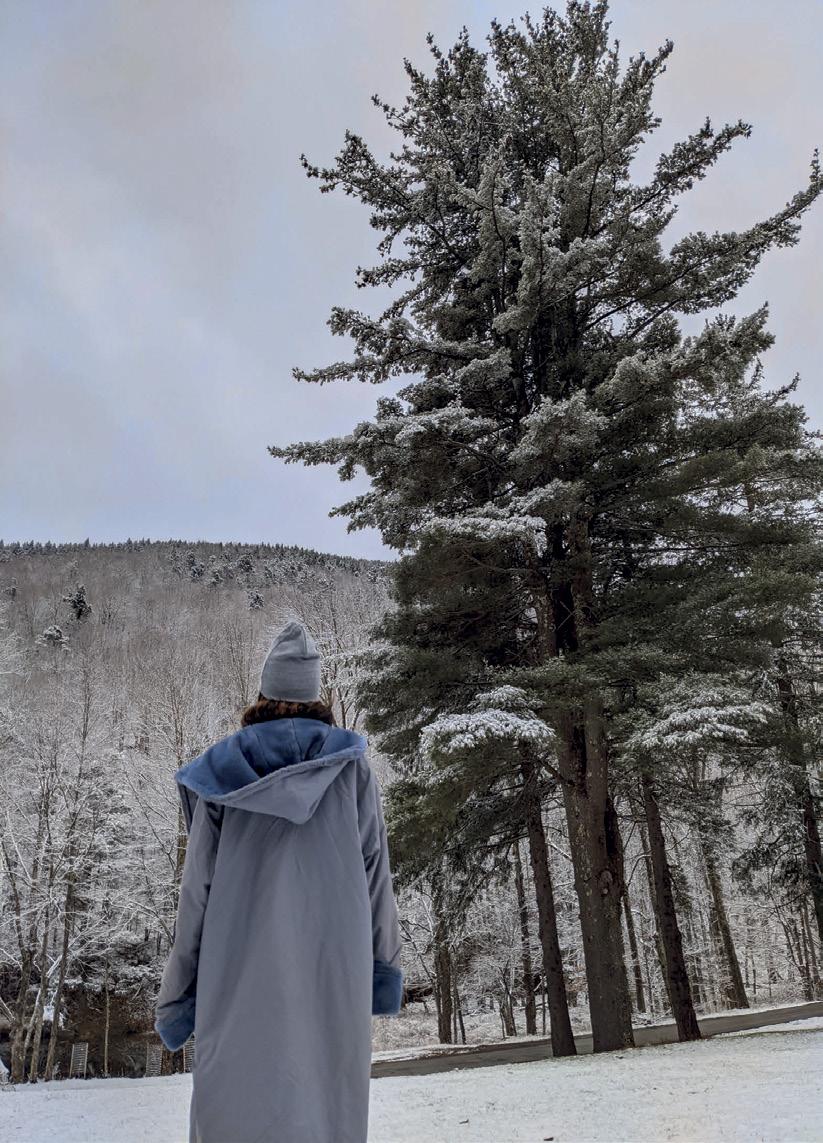







mobile teams. One of the agency’s first calls was to check on a woman camped out with her dog in her car in a parking lot in Port Chester. She’d been there several days, and neighbors had called police, who called in a mobile team. She was from Ohio and had gotten stranded with no money.
The responders got her to an overnight shelter, contacted her family in Ohio, bought her a bus ticket, and made sure someone would be on the other end to meet her.
There are riskier calls too. In January, a 17-year-old student had a knife in school and was threatening suicide, says Warnock. Police got there first and convinced him to give up the weapon. Then the mobile crisis team stepped in to get him to the hospital for an evaluation.
“We accompanied him there,” says Warnock. “We offered him support while he was waiting for family to arrive. And we provided as much background information as we could to the psychiatric team before they did the evaluation.”
There’s no formula in these situations: it’s all about making a connection, he says. Team members sit with people for as long as needed— sometimes an entire eight-hour shift—and then stay involved for up to two weeks afterward, hooking them up with outpatient clinics or other services, he says.
In Ulster County, mobile teams date back to 2014, after the state closed the Hudson River Psychiatric Center. To compensate, it gave affected counties the funds to design their own mental health services. Ulster chose mobile teams as a way to ramp up prevention, keeping people out of psychiatric wards in the first place, says Tara McDonald, Ulster County Commissioner of Mental Health.
“Their main purpose was to reduce unnecessary psychiatric emergency visits and any unnecessary psychiatric hospitalizations,” says McDonald. Now, less than 15 percent of people the mobile teams contact end up going to the hospital, she says.
The Ulster mobile teams made a difference for Barbara Hill and her brother. Hill’s brother has schizophrenia, and in September 2020 he’d gone off his medication, which Hill figured out on a visit to his apartment. In the past, those episodes had ended in trips to the hospital and worse, so she called a mobile team, which called her brother and convinced him to restart his pills. Before mobile teams, that might have turned into police being dispatched, says Hill, a former Kingston alderwoman and a member of the Ulster County Community Services Board.
Both Hill and her brother now have refrigerator magnets with the mobile team phone number. “That’s very positive because it’s like a guardrail now. If he goes off his meds, I’m calling them,” she says.
It’s the type of situation indicating that mobile teams don’t just respond to crises but prevent them. That shows up in the numbers: In 2023
Ulster County teams had about 1,300 face-to-face contacts with people in crisis but made just over 3,000 contacts by phone only, says McDonald. Often the phone contacts are people calling for advice or finding out where they can go for services should they need them, she says.
Orange County’s mobile teams have been running since 1991, nearly as long as the CAHOOTS model that’s drawn so much national attention. Still, until 2019 police were still dealing with a lot of mental health calls and were frustrated. “They’d call and say, ‘Listen, we went to see Mr. Jones. It’s our 10th time out there. We bring him to the hospital, he ends up right back in the community,’” says Darcie Miller, county Commissioner of Social Services and Mental Health.
“One of the reasons police are often called is because the mental health system is inadequate.”
—Mark Giuliano, program director, Westchester County Department of Community Health
So in 2019 the county consolidated five separate help lines into a single 311 crisis center number. Today about 4,000 annual calls come into 911 and get diverted to the 311 number, ending up with mobile teams responding face to face. Only 5 to 10 percent of those require any police backup, says Miller.
In all three counties, mobile teams have dramatically improved the quality of help that people get, say proponents. Before Westchester County’s mobile teams, if someone called in feeling suicidal, a police car and ambulance would immediately get sent, says Mark Giuliano, program director at the county’s Department of Community Health. “Odds are, I’d be forcibly extricated from my house and dragged out to the hospital, where I may or may not meet the criteria for admission. That was our one-size-fits-all model,” he says.
But another promise of mobile teams hasn’t materialized—that they’d dramatically cut the number of calls on which police get dispatched. Even CAHOOTS, held up as a national model,
diverts just three to eight percent of police deployments, meaning 92 to 97 percent of calls still get a police response. The police diversion rate isn’t tracked at all in Westchester, Orange, or Ulster Counties, according to the mental health commissioners in all three. (Miller referred the question to the Police Chiefs’ Association of Orange County, which didn’t respond to inquiries.)
Westchester County’s system has improved dramatically since mobile teams started. In 2023, they responded to almost 2,500 calls for service, according to the county. “That’s people going through a crisis in which response teams went out—that’s fantastic,” says Patrick Schelle, steering committee member for the Westchester Coalition for Police Reform. “That starts to bring that percentage rate down of how many times the police have to respond to mental health emergencies.”
But he also sees loopholes. The most important is that because calls get routed through police dispatch, there’s no way for someone who doesn’t want cops involved to get a mobile team sent out instead, he says.
The July 2023 police shooting of Jerrell Garris in New Rochelle makes him question how the system is working. Garris, who had a known history of mental health problems, had gone to a store and eaten food he didn’t pay for. When officers showed up to arrest him, he resisted. After one of them called out that Garris had a gun—he had his hand on an officer’s holster, a video seems to show—one shot him in the neck, and he died days later. New Rochelle has had a mobile crisis response team deployed since August 2022. “How come when that 911 call went through, [the team] wasn’t dispatched?” asks Schelle.
Schelle would also like to see more regular public sharing of outcome data on the mobile teams’ effectiveness, like average response times. Those averages are important: his and the coalition’s research shows that the longer the lag between police contact with someone and a crisis team arriving, the more likely a violent confrontation will happen, he says. Those numbers “would show us some of the effectiveness of the implementation,” says Schelle. “I think that’s a very big loophole.”
Cases like McAlpin’s—in which someone in crisis wields a weapon—are rare, say mental health advocates: people with a psychiatric illness are more likely to be the victim than the perpetrator of a crime.
More access to care would make them rarer still, say area mental health professionals. Giuliano says that, aside from mobile teams, Westchester is launching several initiatives to get people help without a visit to a hospital psychiatric ward. “One of the reasons police are often called is because the mental health system is inadequate,” he says. “We have to make it easier for people to get the services when they need them.”

Saugerties is buzzing with new energy, and the change is more than metaphorical. It’s lit up, quite literally, as the village’s iconic red bridge over the Esopus Creek has gotten a facelift with permanent lights. “Perception is everything,” says Bill Murphy, village mayor. “It’s important that we’re clean and presentable. These lights, I can control them right from my phone, and we didn’t use any taxpayer dollars for them. I’m very proud I was able to do it all through donations. It’s a simple thing, and it puts a smile on people’s faces.”
For Murphy, his job is simple: prioritize infrastructure to create an inviting and safe space for residents, business owners, and tourists. Reflecting on his 15-year tenure as mayor, Murphy notes the complete upgrade of the village’s water, gas, and sewer lines, as well as improvements to streetscapes and lighting. He also mentions the commencement of a project to replace damaged bluestone sidewalks on Main Street last year and the ongoing plan to extend it to Partition Street this year.
But despite the day-to-day work to keep Saugerties attractive, Murphy admits it’s not without its problems. “We’re facing the same challenges as everyone in this country right now,” says Murphy. “Interest rates, inflation, high taxes. Our national economy is a mess right now. But we’re surviving.” Within this landscape of economic uncertainties, one issue looms large for some residents: short-term rentals. “Up until the town started regulating them, our town board members said that the best way to see where the units were would be to go to Airbnb.com and punch in your zip code,” says Saugerties Democratic Committee member Tim Scott, Jr. “Now, they’re regulated so we know exactly how many there are—a bit over 400, which is quite a lot. People need stable housing; Airbnb is not meant for that and never was.” Town of Saugerties Supervisor Fred Costello points out two key changes in the short-term rental situation compared to a few years ago. First, the town implemented a short-term rental law to address public safety concerns. And second, the demand for short-term rentals has slowed down post-Covid, resulting in more competition among property owners and higher vacancy rates.
A patron drinking coffee at Bluestone Coffee Roasting Company on Partition Street.
Opposite, above: Students, parents, and staff at Middle Way School, a Buddhist school for children pre-K to sixth grade, celebrate Losar, the Tibetan new year festival on its campus.
Opposite, below: The Saugerties Varsity ice hockey team playing in the divisional playoffs on February 10 at the Kiwanis Ice Arena.



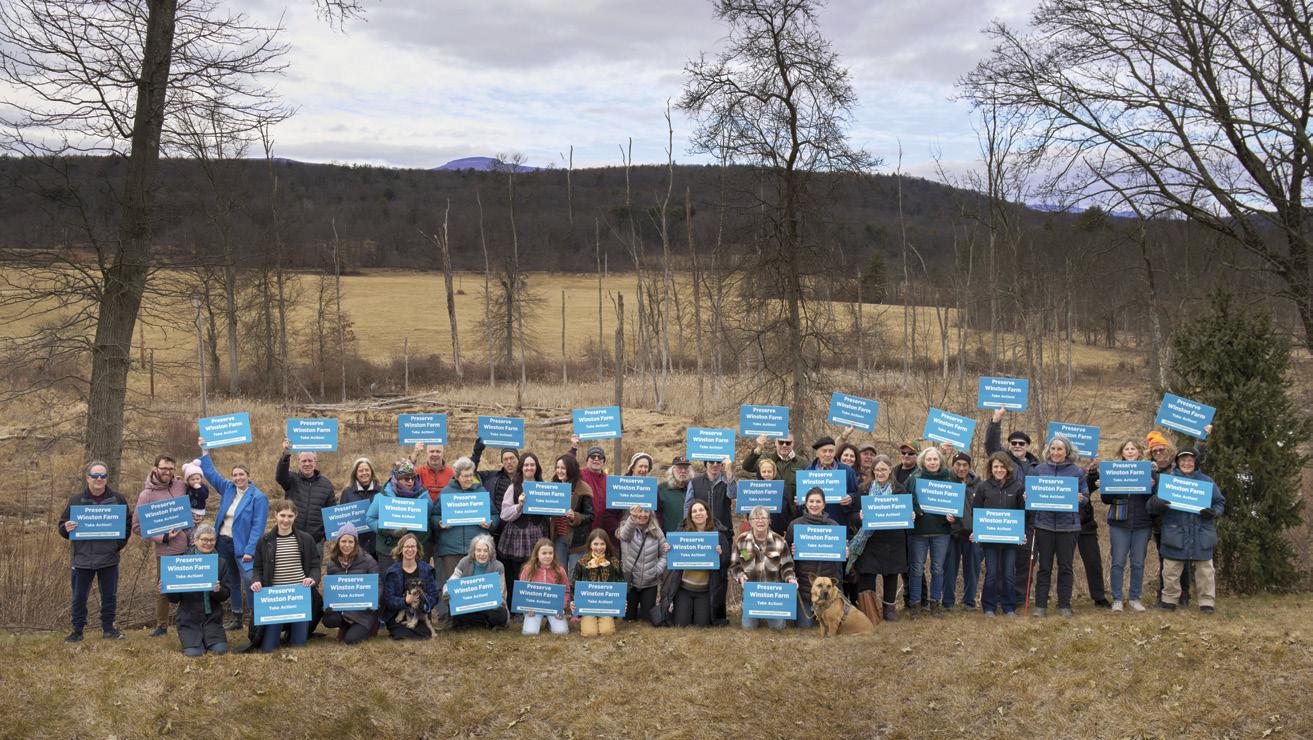
However, Mayor Murphy is confident in the situation. “I don’t see short-term rentals as a problem in Saugerties,” says Murphy. “We have a good hold on it. When you consider yourself a tourist town, I think short term rentals come with it. The revenue generated when people come up for the summer is phenomenal. But I don’t want to see that overtaking affordable housing for people who need it.”
He also has a positive attitude toward new private housing being built by John Mullen on the Saugerties waterfront, which will consist of eight or nine units targeted for completion by late spring. “It’s a vision he’s had for many, many years,” says Murphy. “I think it’s gonna be beautiful, people having waterfront condos.”
There’s also been ambiguity surrounding Winston Farm. In 2020, the 840-acre parcel was purchased by Tony Montano, John Mullen, and Randy Richers—three locals who envision developing, on top of multi-unit housing and lots for single-family homes and estates, a 10,000-seat amphitheater, an adventure park, a technology park, campgrounds, and hiking trails. The proposal was divisive, and it was reported that the Open Space Institute, a conservation organization, had offered to purchase approximately three-quarters of the property to turn the land into a state park.
However, Winston Farm and the Open Space Institute both state that they are not considering any deal. When asked for a statement on future plans for the site, Winston Farm offers: “There have been past news stories about the Open Space Institute seeking to potentially purchase the Winston Farm property in Saugerties, but no deal is on the table. Winston Farm’s property owners are fully committed to their original development plans and will submit a Draft General Environmental Impact Statement to the Town of Saugerties in coming weeks. This document will thoughtfully detail exciting economic benefits and development possibilities, which will be considered during the municipal development-review process that lies ahead.”
Andrew Cowan, a local resident involved with Beautiful Saugerties, a grassroots group opposed to the development, notes that, “Central to the environmental studies is the aquifer—it’s a critical driver of what might get approved to be built there. There have been studies on its impacts to the surrounding private wells if there was too much development above and around it, and there are also concerns about it being privatized. In most instances, municipalities do a better, safer job of managing critical water supplies.” In Cowan’s estimation, the environmental studies will be presented to the town within the next two to three months.

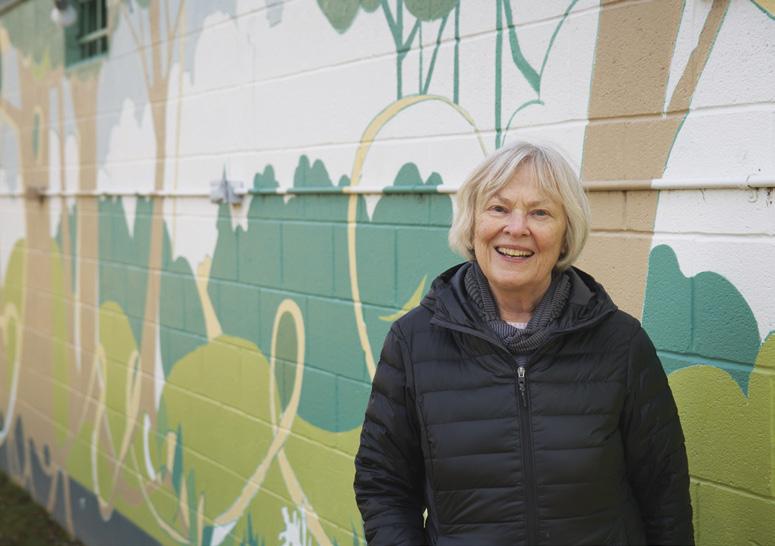




Winston Farm is best known as the site of the Woodstock ‘94 Music Festival, which marked the 25th anniversary of the iconic 1969 event. Now, the Saugerties Chamber of Commerce is gearing up for a 30th anniversary celebration of Woodstock ‘94 in August.
The month-long celebration will include a kickoff at Cantine Field on August 3rd with live music, food vendors, and art. Various venues in Saugerties will host live music, while the Dutch Barn at the Kiersted House will feature a special exhibit on Woodstock ‘94. “Hopefully, there’ll be lots of memorabilia and photos, as well as videos done at Lighthouse TV23 with people who attended the concert,” says anniversary committee board member Peggy Schwartz.
The culmination of “Celebrate 30” is the annual Hope Rocks Festival, and the Saugerties Chamber of Commerce has chosen “Groovin’ Around Saugerties” as the 2024 Street Art theme. Thirty-five small-scale artist-painted “hippie bus” models will grace the streets from Memorial Day to Labor Day, and they’ll be auctioned off in September to support the artists, the chamber, and a local nonprofit to be determined.
The Woodstock ‘94 Celebration is also eyeing to have a showing at the Orpheum Theatre, which recently received a big upgrade: a high-tech screening room known as “The Mark” which will open on March 15. Named in honor of the late Mark Braunstein, the founder of Markertek, The Mark is a 99-seat theater in the second floor of the Orpheum designed by architectural acoustics design firm WSDG in partnership with Blaze Audio. It features a Dolby Atmos sound system for immersive experiences, with 33 speakers.
“There’s not a theater like this between here and New York, Montreal, Boston, or Chicago,” says Upstate Films co-executive director Jason Silverman. “It’ll be one of the most advanced. Everything you see and can’t see has been designed for acoustics. This building was built in 1908, and it’s really cool to have all this modern sound tech here in this vintage historic room.”
In September, Saugerties saw the opening of The Local, a year-round, multiarts venue situated in a renovated 1800s Dutch chapel. Founded by Isabel Soffer and Danny Melnick—codirectors of the world music events producing company Hudson Valley Live—The Local aims to bring eclectic international music acts to the Hudson Valley. Some highlights from The Local’s past lineup include the Wazumbians, an Afropop group from Ghana, and Troker, a band from Guadalajara that blends psych jazz, rock, and funk with traditional Mexican music.
“Because we’re so new, everything is this kind of mystery to us,” says Soffer. “There’s a lot we don’t know, and it’s very exciting for us to bring something to people up here and to have them trust that it’ll be a special night where they’ll see something that they won’t see anywhere else.”
Work with the #1 independent real estate brokerage in the Hudson Valley and Catskills! You’re closer than you think to finding your dream home, and we can make that dream a reality. Thinking of selling? With high buyer interest in the area and historically low inventory, there’s never been a better time to sell. Our team of leading real estate professionals will give you the individual attention you deserve. Call or click to get started! >
Work with the #1 independent real estate brokerage in the Hudson Valley and Catskills! You’re closer than you think to finding your dream home, and we can make that dream a reality. Thinking of selling? With high buyer interest in the area and historically low inventory, there’s never been a better time to sell. Our team of leading real estate professionals will give you the individual attention you deserve. Call or click to get started! >




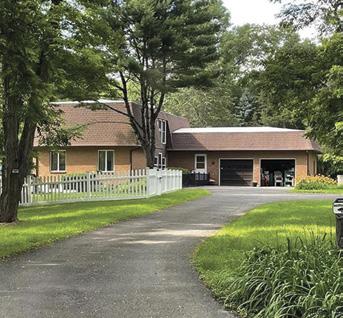
845 679-2010 I
845 679-2010 I KINGSTON 845 331-3110 I HALTERASSOCIATESREALTY.COM





























Sat 3/2, 8pm African American Folk, Blues, Jazz: Jerron Paxton
Tue 3/8, 7pm John St Jam
Tue 3/12, 7pm Celebrate St Patrick’s Day w/Irish Bluegrass JigJam
Fri 3/15, 7pm Psychedelic Chanson: Combo Daguerre
Sat 3/16, 8pm Tracy Bonham’s Birthday Bash
Tue 3/19, 7pm Consider This: Astronomer Bob Berman
Fri 4/5, 8pm Saugerties Sessions: Simi Stone + Toombs Dixon
Sat 4/6, 8pm Turntables on the Hudson DJ Party: Nickodemus
Wed 4/10, 7pm Mexican Music & Dance: Caña Dulce y Caña Brava
Thu 4/18, 7pm Jazz: Alexa Tarantino Quartet
Sat 4/20, 8pm Old Time Music: Nora Brown + Stephanie Coleman
Sun 4/21, 1pm Family Day! Dendê’s Brazilian Recycled Sounds
Thu 4/25, 7pm 17-year-old piano phenom: Brandon Goldberg


Fri 4/26, 7pm Global Hybridists: Hazmat Modine
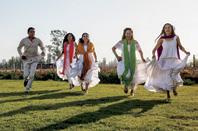





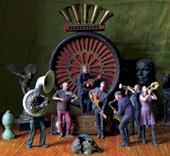







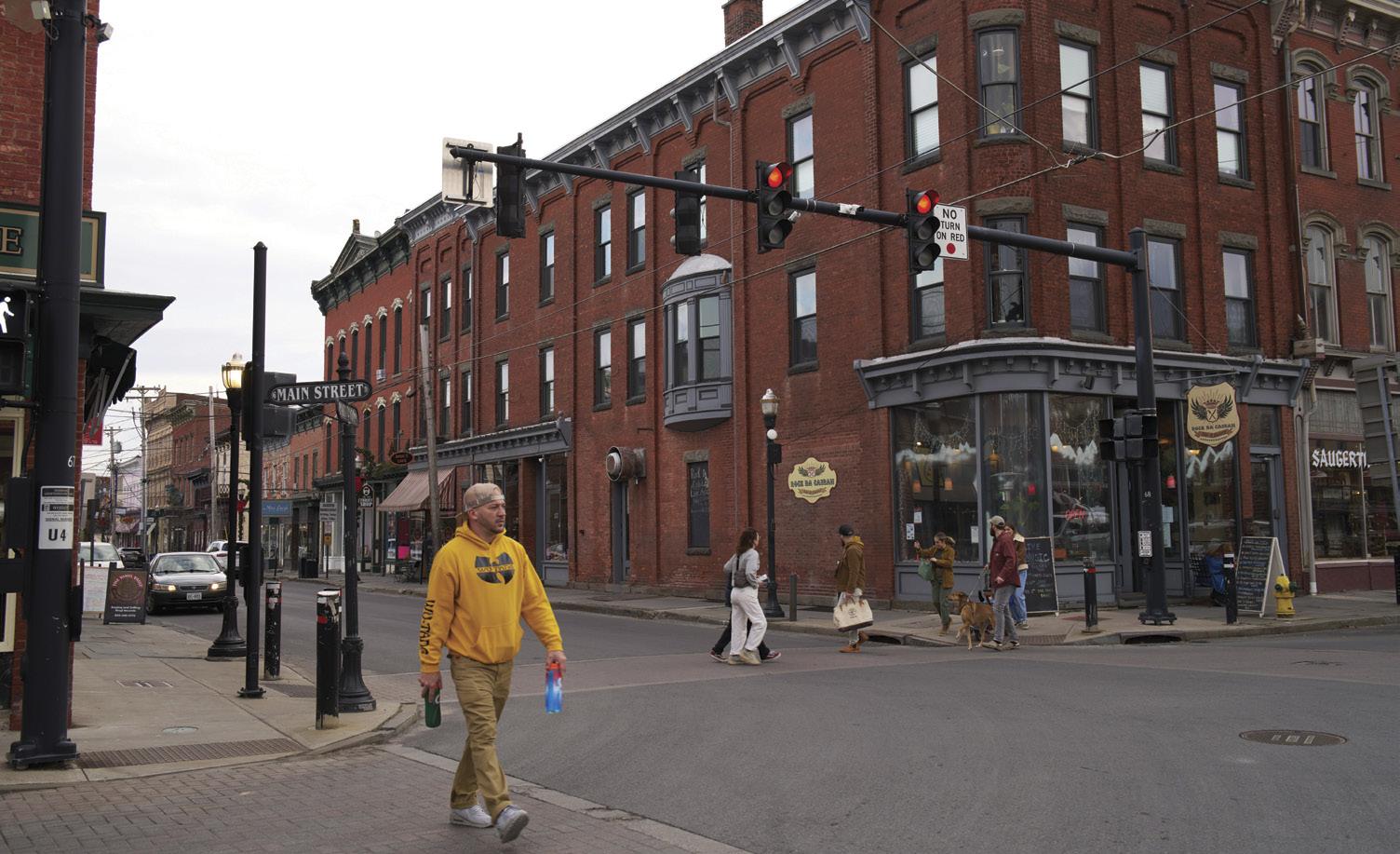






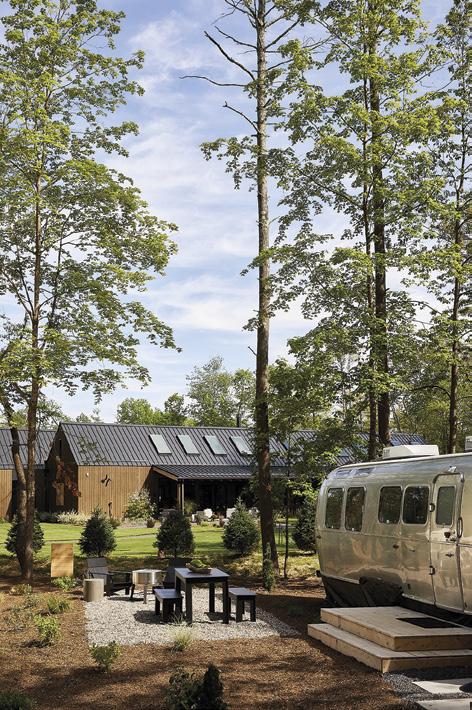





Soffer and Melnick are also focused on creating connections to local businesses. Already, they’ve teamed up with Miss Lucy’s Kitchen to offer beer and partnered with Inquiring Minds bookstore to sell books by visiting artists. Additionally, The Local will host Emerge Gallery as a popup in May, following the recent closure of its space on Main Street.
“Something we thought about a lot, and that we’re now seeing, is how culture can create economic opportunities within a town,” says Soffer. “We have the artists staying in Saugerties and hanging out here, shopping and eating. And people are coming from far away to see shows they couldn’t even see in the city.”
For the past few years, Saugerties has seen an exponential surge in its art scene. “I’m very proud of what’s happening here,” says Suzanne Bennett, executive director of ShoutOut Saugerties. “The arts are becoming almost as prominent as sports. Saugerties has become a particularly lively town, and it’s encouraging to see that the community is so well rounded.”
Last year, ShoutOut launched a project called the Little Theater of Wonder, which brings plays directly to audiences during the summer. ShoutOut also partnered with the Kingston YMCA for Books Alive, another summer series which features professional actors performing contemporary and classic works for younger audiences and families.
At the Tidewater Center, amidst the ruins of a 19th-century paper mill on the Esopus Creek, the Arm-of-the-Sea Theater presents large-scale mask and puppet shows. The troupe currently performs in an open-air tent, and they’re now in the process of building a permanent performance and administrative building.
Meanwhile, Opus 40, which brings in 35,000 people annually, is currently doing restoration work to Harvey Fite’s 6.5-acre bluestone sculpture and his historic studio home beside it—which is being turned into a museum, archive, and workshop space. And this year, along with its usual offerings, the Saugerties Artists Tour is collaborating with the Frank D. Greco Memorial Senior Citizens Center to provide members with slideshows and talks as a preview of the tour.
With all the change going on, Bob Siracusano—owner of Sawyer Motors and the Sawyer Ice Cream Company, as well as the host of the annual vintage car show—argues that community spirit defines Saugerties. “I think a lot of towns would like to be like Saugerties,” says Siracusano. “I think the reason why is because we have so many serious people in town that take a great part in making a difference in other people’s lives. When you look at all the things that happen here, and all the people who do good things for other people, it just puts us ahead of everyone else.”









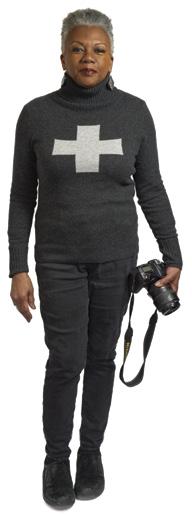






Bottom
Anthony Cunzio, Signature Tile and Glass and Vanessa Piazza, Josie’s Coffee Shoppe; Andrew Zink, Saugerties Village Trustee; Herb Kaplan, pianist and Z. Willy Neumann, sculptor; Timothy Scott, produce department, Adam’s Fairacre Farms; Jeff Vining and Anica Montano, Montano’s Shoe Store;
OPPOSITE:
Sue and Vic Sachar, Kelly Myers, Adam Myers (in yeti suit), Jeannine Mayer, Saugerties Snow Moon Festival; Alexis Danzig, organizer/activist, grant writer, and house painter.


Portraits by David McIntyre
Join us for the March issue launch party on March 7 at AutoCamp Catskills from 5 to 7pm. There will be special deals on drinks, wood-fired pizza from Forno Rosso, and music by Conor Wenk.
It topped 50 degrees on an unseasonably warm day in Saugerties at our pop-up portrait shoot on February 10 at the Orpheum Theater/Upstate Films. The bright sunshine surely helped bring out all the proud Saugertesians. Big love to Jason Silverman, Paul Sturtz, and the staff of the Orpheum for hosting us. Thanks to Bluestone Roasting for the coffee and the Old Dutch for lunch.





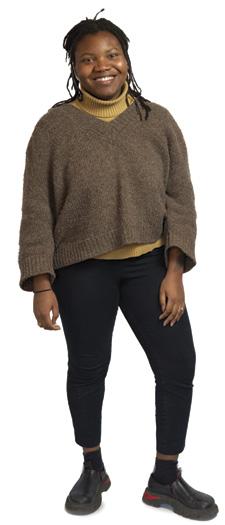
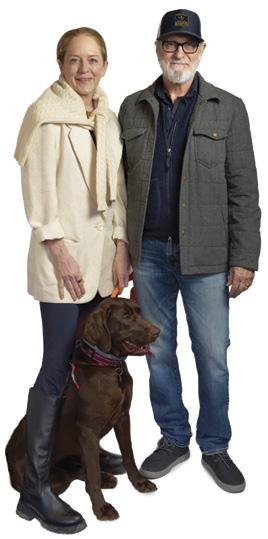

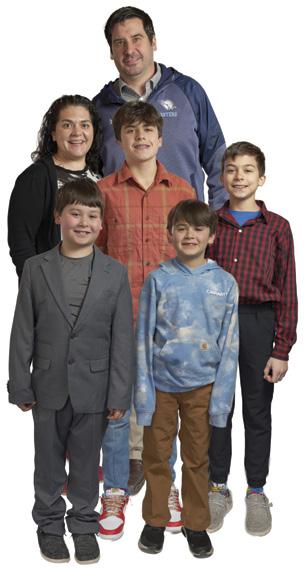
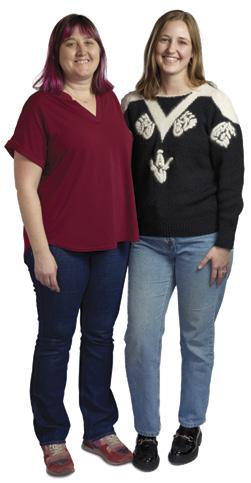


and Hayley Adoptante, sales manager at AutoCamp Catskills.
Middle rown: Brian Donoghue, Inquiring Minds Bookstore; Caroline Crumpacker, Opus 40 executive director; Amy McClure, Paper House Productions order entry; Anne Leith, artist; Debra Miller, interior designer, Project Designs.
Bottom row: Tanesia White, The Blue Refillery; Daniel Erceg, Superintendent Saugerties Central School District, with Stacie Erceg, Dylan Erceg, Daniel Erceg, Matthew Erceg, and Jacob Erceg; Alexis Maestri, student; JoAnne Kerbert Parisian, lifelong Saugertesian and Terry Parisian, Saugerties Village Trustee.

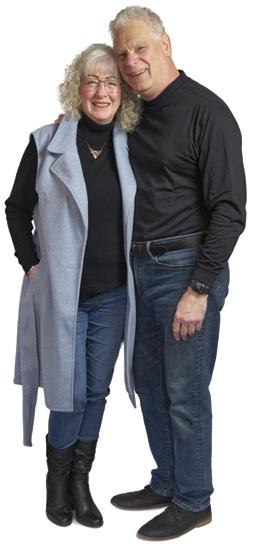
Top row: Eugene Davis, retired; Gerri Ryan and Steve Schnoll, Saugerties Sings!; Gustav Pedersen, videographer; Mark Smith, Saugerties Chamber of Commerce chair, with Chico; Isabel Soffer, The Local; Jamey Wolff, Center for Spectrum Services founder emeritus and Rita Berman, Freedom Hair Design; Jamie Ferris and Sunni Zierler, Upstate Films/ Orpheum Theater; Jennifer Tsakis, Pop Vintage Antiques owner.
Middle row: Jeremy Ellenbogen, 32 Partition Street co-owner; Joanne Pagano Weber and Bruce Weber, Dialogues for the Ear and Eye; John Cook, flight attendant and Andrew Rein, hospitality sales; Chloe Saban-Mayor, artist and Julian Biddle Pole George; Karley and Joe Sgandurra, The Eden Co, with Augie; Kate Minford, artist and hypnosis practitioner; Katie Cokinos, Upstate Films senior programmer and Saugerties Film Society founder and curator; Kirsten and Michael Doyle, Saugerties Artist Tour.
Bottom row: Laura Zarougian and Michael Alan Hams, owner/operators of Pleasantly Surprised, with Hilda and Noush; Brook Stewart, Brook Does Cleaning, with Lily Stewart; Suzanne Bennett, Shout Out Saugerties, The Crow, and Linda Mary Montano, performance artist; Lorrie and Michael Wardell, Wardell Pottery and Metalwork; Iain Machell; artist; Marsha Kaufman Rubinstein, ceramic artist; Matthew Reddan, Men’s Vintage Clothing; Michael Ciccone, artist, with Jeung-Hee Kahng.
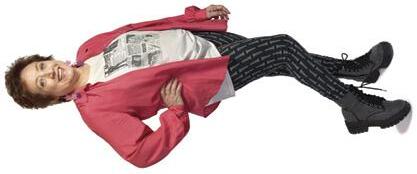







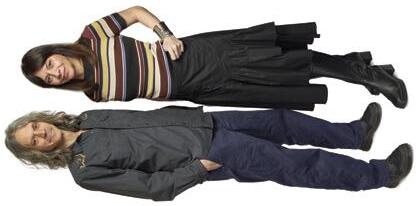















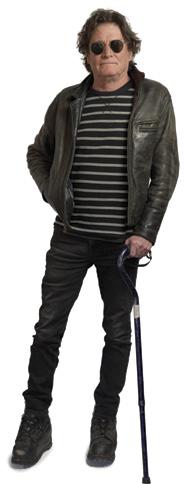
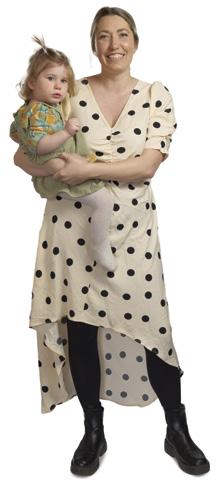

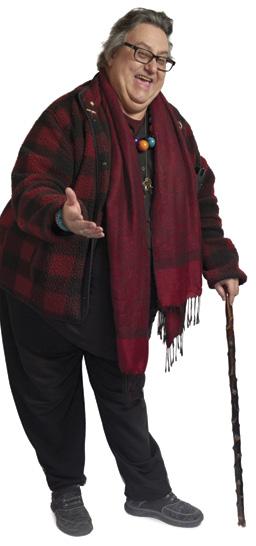



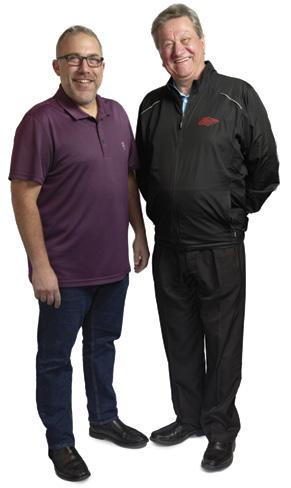

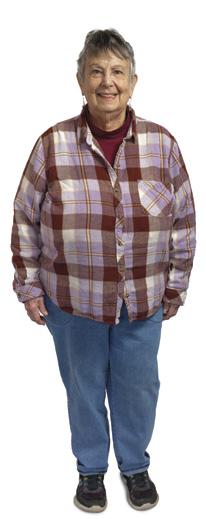





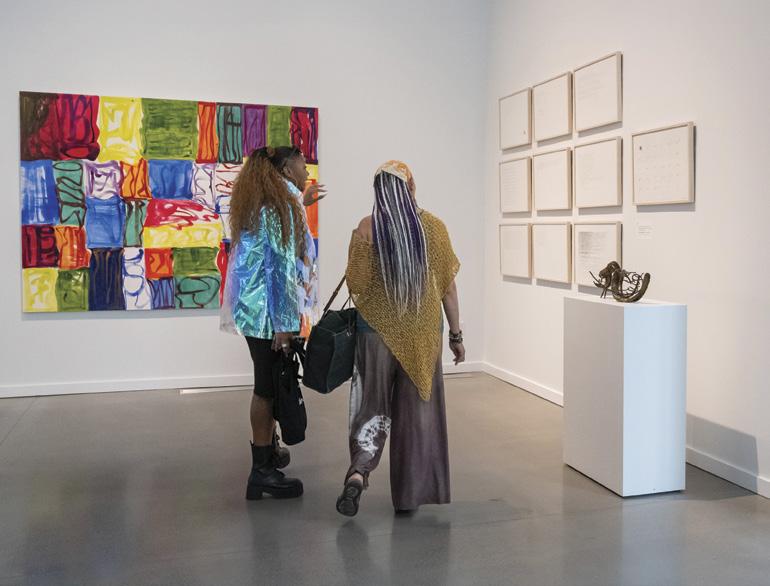
200 Lake Road, Tarrytown, Pocantico.org
Located in the scenic hills of the lower Hudson Valley just 20 miles north of Manhattan, the Pocantico Center offers breathtaking gardens and grounds, historic architecture, and a renowned art collection in which to find inspiration and respite.
The extensive campus on the former Rockefeller family estate hosts a robust slate of conferences for nonprofit and policy leaders, artist residencies, tours, and low-cost cultural events and educational programs that invite everyone to engage with new ideas and perspectives.
Pocantico’s newest addition, the David Rockefeller Creative Arts Center, is a sustainable and inclusive home for the creative process, where artists and the community come together to develop, present, and experience new works of art. The center’s gallery offers free public access to rotating visual art exhibitions drawn from the permanent collection at Pocantico, as well as new commissions, loans, and museum partnerships. The adjacent indoor-outdoor theater hosts a summer lineup of mainstage dance, music, and theater, as well as year-round special events.
As the community-facing extension of the Rockefeller Brothers Fund and its philanthropic mission to advance social change that contributes to a more just, sustainable, and peaceful world, the Pocantico Center brings people together from near and far to learn, share, and imagine a better future.

From Yonkers to Peekskill, Route 9 glides along the Hudson River through Westchester County and offers visitors a tour of some of the lower Hudson Valley’s most storied towns. Here are a few noteworthy stops along the way.
1 Highland Industrial Park, Peekskill 2ntr.com (914) 402-4624
Skater owned and operated since 2004, 2nd Nature Skateboarding is the premiere skate shop and skate park in Westchester County. We stock the best brands with years of knowledge about skateboard setup, repair, and instruction. We are dedicated to keeping skateboarding alive and well in the community.
8 John Walsh Boulevard, Peekskill (914) 739-1178
Pilatesonhudson.com
Twenty years ago Marilyn Miller, a retired ballerina, opened Pilates on Hudson in Peekskill. Having discovered Pilates while doing physical therapy, her approach focuses on correct form and function, and combines Pilates with Neurokinetic Therapy for a customized in-depth approach to fixing your issues and making you stronger.


45 West Clinton Avenue, Irvington, Armourstiner.com
Built in the 1860s by New York City financier Paul J. Armour, the visually stunning Armour-Stiner Octagon House replicates the style of Donato Bramante’s 1502 Tempietto in Rome. Tours of the restored home and its interiors showcase the American neo-Roman style, which was briefly popular in the late 19th century.
1 Croton Point Avenue, Croton-On-Hudson, Parks.westchestergov.com
Situated on a peninsula on the east shore of the Hudson River, this 508-acre park offers year-round events and activities and has facilities for camping, hiking, and swimming. The park was once home to the renowned Underhill vineyards, and its intact wine cellars are thought to be the oldest in New York.
Since 2008, Rural Intelligence has helped readers explore the Berkshires, Litchfield County and the eastern portion of the Hudson Valley, sharing and cultivating a passion for culture and country life. In 2019, Rural Intelligence joined the Chronogram Media family of publications. While we may not have known it at the time, a cross-publication collaboration was likely inevitable—our region-

loving points of view are simpatico. This is the second issue we’ll be publishing Rural Intelligence content in our pages, showcasing events, the restaurants, shopping, parties, nonprofit organizations, and personalities that make life so rich in the Berkshires and Litchfield County. Consider Rural Intelligence your friend who shows you the best way to participate in all the region has to offer.
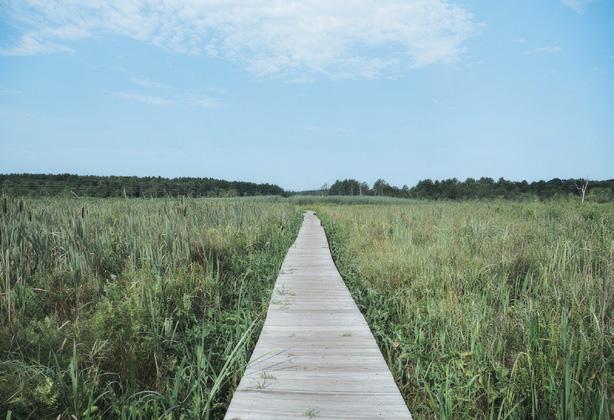
Litchfield County features many classic New England towns with scenic outdoors and conscientious citizens, and the town of Litchfield proper does not disappoint. In addition to the many awe-inspiring natural settings, Litchfield offers a hub for sustainability, conservation, culinary treats, and community engagement. Here are some of the places we go to unwind, reconnect with the environment, and nourish.
1. Espresso 59
A newer coffee shop just off the Litchfield Green in the building that once served as iconic home for the former family-owned fixture of 68 years—Murphy’s Pharmacy, known for home delivery and treating their patrons like family. Espresso 59 offers fresh-baked pastries, donuts, gelato, and beverages, including more exotic, refined confections such as sfogliatella and bomboloni.
2. Litchfield Land Trust
The Litchfield Land Trust (LLT) oversees protected, outdoor spaces for conservation purposes. Local trail areas include the Shepaug Crossing Preserve, the Upper Bantam River Preserve, and Prospect Mountain Preserve. The LLT focuses on land parcels that link wildlife corridors and ecologically valuable properties for protection, so don’t be surprised to see indigenous wildlife along the way.
3. Litchfield Farmers’ Market
Every town needs a great farmers’ market, and Litchfield does not disappoint. Founded in 2007, the Litchfield Farmers’ Market supports local growers, farmers, and producers, with fresh items each week including staples for the pantry. Options include, but are by no means limited to, honey products, maple syrup, local cheeses, locally roasted coffee, goat milk soap, flowers, seafood, and artisanal breads. These are just a few of the provisions you can find at the indoor market every other Saturday, 10am-1pm, at the Litchfield Community Center through June 8. The market moves back outdoors on June 15 at the Center School parking lot.
4. Topsmead State Forest
A conservation property featuring winding trails, native flowers and plants, fruit trees, butterfly gardens, and meadows for a lovely place to walk and picnic. The property was originally owned by a local industry leader that left part of the land to his daughter, Edith Morton Chase. Chase believed in ecological education and appreciation and made sure the land would be used in this manner for generations to come. Local intentional outdoor spaces such as this reverberate and mean so much to us, now perhaps more than ever as open spaces become harder to find.
5. Kula Collective
A yoga, meditation, and wellness studio in town that provides classes, workshops, and individual sessions in various holistic arts. The practices are steeped in physiology and alignment-based instruction, as founder Siri Hoffman is a seasoned athlete and somatic teacher. Options also include energy work, breath work, and massage. “The concept and birth of this space is to bring people together, to support each other as teachers, as students, and as a community at large. To me, being a community member for the past 12 years, Litchfield is a town and area that is dedicated to the integrity of a closeknit community. It thrives on togetherness, and on spaces, organizations, and groups of individuals that encourage bringing people together to be with and connect to one another. Kula Collective couldn’t feel more rooted in the supportive environment of Litchfield,” says Hoffman.
6. Litchfield Hills Audubon Sanctuary
The sanctuary offers natural sanctuaries, events, programs, and educational opportunities that support conservation and nature-based learning. The regional chapter currently oversees three locations, the largest at 306 acres being Boyd Woods Sanctuary, Kalmia Sanctuary, 13 acres, and Wigwam Brook Sanctuary, which features 36 acres of protected land. Each area has its own character and hosts many varieties of birds, including chestnut-sided warblers, field sparrows, indigo buntings, eastern towhees, and others.

7. Chanticleer Acres Farm
Chanticleer is a biodynamic and regenerative farm that has a community self-service store selling GMO-free and organic heirloom vegetables, eggs, and herbs, all grown with love.
8. White Memorial Foundation
White Memorial Foundation is a lush oasis for experiencing nature’s beauty in Litchfield. With many trails for hiking, biking, dog walks, and time with friends and loved ones, it is a true gem. Beautiful marsh, lake, forest, and hillside vistas allow visitors to kayak, paddleboard, or navigate one of numerous easy to moderate-grade hiking trails. Expect to find indigenous plant and wildlife, such as turtle, blue heron, and resident beavers. The Little Pond Boardwalk Loop is spectacular at sunset.
9. Oliver Wolcott Library
The library serves as a central source of activities for the town and provides a significant range of titles for all ages to enjoy. OWL is ranked first in the state of Connecticut for adult book circulation volume, demonstrating how vital it is to the town. The library features a children’s reading room, acting classes, knitting and crochet groups, senior exercise classes, walking groups, book clubs, an art gallery, and delivers to those who are homebound or unable to travel independently. There is something sacred about libraries in America, perhaps now more than ever, and the Oliver Wolcott library is a beacon in town.
10. Meraki
This centrally located cafe provides healthy eats and a cozy place to enjoy a latte or chai with friends. Enjoy their vegan spring rolls, organic chicken pot pies, gluten-free stuffed portobellos, lemon chicken soup, Moroccan lentil salad, along with many delicious salads, sandwiches, rice bowls, and burritos. Meraki also caters and has pre-order dinner menus that can provide fully vegan, gluten-free fare. The owners, Patty and Martin Laure, make delicious custom-prepared items for small groups and parties, and have a food truck that can be hired for events.

























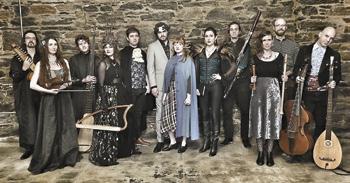




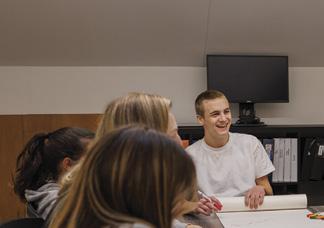






The Berkshires’ Yokun Ridge, known for its scenic vistas and distinctive ecology, is home to the first leg of the High Road, a venture of the Berkshire Natural Resources Council to create a web of interconnected hiking trails connecting towns to towns and towns to trails. The eight-mile footpath along Yokun Ridge links Pittsfield and Lenox along a clear and consistent hiking route.
The trail stretches from Bousquet Mountain in Pittsfield south to Kripalu Center for Yoga and Health in Lenox. If you’re up for tackling the whole eight miles in one fell swoop, plan to leave a vehicle at one trail terminus to transport yourself home (“car spot”) or arrange to be picked up at the end. While the trail can be hiked in either direction, this description depicts travel from north to south.
The High Road commences on a ski slope where hikers will follow blue blazes up six-tenths of a mile of steep trail to the kiosk marking the woodland start of the trail. From there, the Mahanna Cobble single-track trail takes one
mile of switchback turns and stone steps before reaching spectacular views of Kennedy Park at the summit (plus a stone bench for resting and ample space for picnicking).
The Yokun Ridge Trail, traversing portions of Mass Audubon’s Pleasant Valley Wildlife Sanctuary, boasts moderate elevation changes and expansive views at Yokun Seat—whose moniker pays homage to Jehoiakim Yokun, a Native American of the Mohican tribe—and Lenox Mountain. Wide woodland trails and moderate elevation changes prevail throughout the watershed parcel owned by the Town of Lenox.
Yukon Ridge South is a wide woodland path with moderate elevation change via Old Baldhead Road, which passes Monk’s Pond. A detour from the High Road, the Burbank Trail offers a connection to Olivia’s Overlook—a popular scenic vista offering views of the Stockbridge Bowl—from which point another six miles of trails unfurl, easily navigable via the BNRC Berkshire Trails app and printable maps in both English and Spanish.
From there, it’s an easy woodland romp to the southern trail terminus, with the option of wandering through the Kripalu campus or heading into downtown Lenox, past the main entrance to Tanglewood via sidewalks lining West Street.
Since its founding in 1967, BNRC’s mission has remained “to protect and preserve the natural beauty and ecological integrity of the Berkshires for public benefit and enjoyment.” What began with nonprofit land conservation and environmental advocacy has evolved in recent years to include making these trails, and by extension this land—the ancestral homelands of the Mohican people who were forcibly displaced to Wisconsin by European colonization— accessible to all.
Unable to tackle the whole trail? Trailhead parking, for in-out hiking along the High Road, is available at Bousquet Mountain, Pleasant Valley Wildlife Sanctuary, Kennedy Park, Kripalu, and in the Lenox Village.
Bnrc.org/the-high-road


Deep local elders may recall New York-born musician Dorothy Carter (1935-2003) from her time at Bard College or as part of the Woodstock scene during the 1970s (her “Song of the Hemp” is the highlight of 1975’s seminal Woodstock Moods and Moments compilation). A specialist in hammered dulcimer who doubled on harp, psaltery, flute, piano, and vocals, Carter played with experimental composer Robert Rutman’s Central Maine Power Music Company ensemble and is today regarded as a principal, pioneering figure of psychedelic folk music. This beautiful reissue of her starkly bewitching 1978 second album includes an illustrated booklet of liner notes and testimonials by Rutman, family members, and a selection of fans and followers that includes luminaries like Laraaji and Einstürzende Neubaten’s Alexander Hacke.
A devoted music historian, Carter was a living, performing repository of Appalachian and Celtic folk song, and Waillee Waillee features several of her magical interpretations of pieces from those canons. “The Squirrel is a Funny Thing,” an arcane American folk song, opens to set the sparse mood with Carter’s instrument cascading like rain on a metal roof, while the lament “Along the River,” with words borrowed from James Joyce, hovers like mysterious mist on a grey Dublin day. It’s hard to pick a favorite track as this review is being written, but the LP’s ethereal side-enders, “Summer Rhapsody” and “Tree of Life,” are certainly among the most transcendent moments of this uniformly transcendent album, a masterpiece that will live well on your quiet, early morning turntable in the winter weeks.
—Peter AaronNew Paltz-based pianist and composer Alex Peh’s new album, Attune, is the result of world travels and five years of study in global piano traditions. Selections include works by composers from Greece, Iran, and Myanmar, all performed in Peh’s virtuoso style that has brought him to stages at Carnegie Hall, the Kennedy Center, and the Banff, Aspen, and Tanglewood music festivals. Peh says the album tracks the history and sound of the piano as it moved eastward from Europe through the Balkans to central and southeast Asia. Peh’s voicings and dynamics are the star of the show on this adventurous album boasting a wide range of moods and styles— from the galloping, ornate “Padetha” to the playful “O Hlan Nyee Lin,” all unified by the meticulous care, intelligence, and emotion Peh brings to these works and to the keyboard. Recommended if you like solo piano recordings by Brad Mehldau, Christopher O’Riley, and Brian Eno. Peh will perform at SUNY New Paltz’s Studley Theater on March 5 at 7:30pm.


On first listen the straight-ahead indie/ballad rock of Marlowe Stern’s Something from Nothing is deceptively simple. Digging deeper, one uncovers layers of ideas energized by guitars, synths, and vocals, including the lovely harmonies of Anjula Prasad. Merging such an opulence of thought can be a challenge or, at the very least, a case of gilding the lily. The mix and production by Peter Katis (the National, Interpol) not only succeeds in taming these inspired interlopers, but actually services the songs, engaging and titillating the listener. The guitar lines are especially intriguing and ambitious, frenetically darting about, seductive and snakelike, enticing the listener to bite. These are songs from an obviously talented and experienced musician and songwriter. In fact, all the sounds are Stern’s, save drums, harmonies, and a cello track. The album is cohesive and well recorded, the songs are concise and diverse. It is somewhat surprising this is the first foray of the Beacon-based balladeer.
—Jason BroomeSeth Rogovoy I am currently writing my ’90s rock memoir, centered on the decade that defined me and my generation: 1991-2001.This winter has been a deep dive into music, which I’ve built the majority of my life around. From my childhood music education in Montreal to playing bass in ’90s rock bands to founding Basilica Hudson on our love of music upheld within our annual music festivals, SoundScape and 24-HR DRONE. Although my writing and memories have been dancing in the ’90s, most of my listening has been in the decade leading up to it, the one that captured my musical heart.
These songs bring me back to my deepest coming of age, and the melancholic, androgynous romance that overpowered me. With my phone strangely tapped into my listening algorithms, this popped into a random social media feed not long ago:
The Smiths saw the cruelty of life and found the humor in it.
The Cure saw the cruelty of life and found the beauty in it.
The ’80s cornerstones of great inspiration are on constant rotation: the Smiths, the Cure. and Depeche Mode. (Important note: I had the privilege of seeing the latter two live in concert twice in 2023!) You really can’t go wrong with any of them, but my recommended albums are the Smiths Hat Full of Hollow and Strangeways Here We Come; the Cure Head on the Door and Disintegration; and Depeche Mode Music for the Masses and Catching Up with Depeche Mode
Depeche Mode saw the cruelty of life and found themselves strangely aroused.
The listening continues to be a remedy to the cruelty of life. Humor. Beauty. Arousal. Highly recommended.
Melissa Auf der Maur has been the bassist of Hole and Smashing Pumpkins and is the cofounder and director of Basilica Hudson. She lives in Hudson.



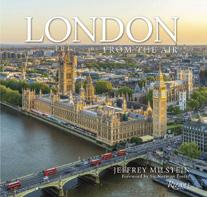

Karen Chase
CAVANKERRY PRESS, 2024, $21
“History is embarrassing. It’s embarrassing to be part of history. My life is small, history is big, best to stay small,” Karen Chase writes in “Polio Boulevard,” one of the many compelling essays in her new collection. The Western Massachusetts resident’s life is anything but small, however; she connects her singular voice and experience expansively to that of Franklin D. Roosevelt, 16th-century gay lovers in India, undercover cops, bear poachers, and a silent poet in a hospital ward. It is her openness and belief in our commonalities despite our differences that weaves these heartfelt and deceptively disparate essays together.
Mythology of Stone
Bradford Graves
DOS MADRES PRESS, $20, 2023
“The problem is having to translate into words what is totally a visual experience,” writes sculptor Bradford Graves in this lovely collection of essays, which does just that. We know Bradford Graves (1939-1998) as the artist behind the beloved idiosyncratic sculpture park in Kerhonkson, (thanks to his wife, Verna Gillis) but it turns out he was also a significant craftsman of language. With a beautiful introduction by the poet John Taggart, these short essays, assembled posthumously by Gillis and accompanied by photographs of Graves’ limestone sculptures, are part how-to instructions, part homages, part meditations on art and meaning making.
Nava Atlas
AMBERWOOD PRESS, $24.95
It is that time of the year…nothing warms the soul and the belly like a warm bowl of soup in these long (and sometimes sunless!) winter months. The fifth edition of this popular cookbook, first published in 1992 by Atlas, a noted vegetarian/vegan authority and New Paltz resident, is back with new recipes and large color photographs. Organized by seasons, there is something for everyone and every day; hearty stews for winter and light and herbal for summer. It’s not just limited to soups but what you dip in them, from scallion pancakes to sunflower cheese bread, these recipes are so delicious you might just forget they’re vegan.
London from the Air
Jeffrey Milstein
RIZZOLI, 2024, $27.50
Both an acclaimed photographer and a pilot, Woodstock resident Jeffrey Milstein combines these skills with a keen architectural eye to show us London from above, a follow-up to 2021’s Paris: From the Air Milstein’s distinctive point of view brings the city to life in a way that street pedestrians cannot begin to fathom. Taken from helicopters granted permission to bypass ordinary laws around aerial photography, the over 200 photographs in this volume capture the charm of the capital city in an iconic and unforgettable way.
Dear Sister
Michelle Horton
GRAND CENTRAL PUBLISHING, 2024, $30
The Hudson Valley will be familiar with the case of Nikki Addimando, who killed the father of her children after years of severe domestic abuse and was imprisoned with a seven-year sentence in 2017. (Addimando was released from prison on January 4.) But here is another side of that story, told by her older sister, Michelle Horton, who gained custody of her niece and nephew and advocated for Addimando while she was in prison. This memoir tells a complex story and exposes the cruel realities of domestic abuse and the criminal justice system, but it also remains resolutely hopeful and showcases sisterly bonds that can’t be broken.
—Caitlin McDonnell

Inhabiting Mars has become a hot prospect, in part due to chest-thumping billionaires in a space race, technological advances, and the conditions on planet Earth, catalyzing a quest for metaphorically greener pastures. But what if other interplanetary species are doing the same with Earth—testing its viability by planting research envoys among us? Beautyland, the latest novel by Marie-Helene Bertino, explores this idea in a coming-of-age tale suffused with dark humor and rich imagination, written in a humorously sardonic tone.
Starting with her difficult birth, Adina struggles to find ease in the world. As a child, she dreams of a “shimmering area” that seems to be the surface of another planet. A cast-off fax machine, at first non-functioning, begins to spew sheets at her. (Bertino dispenses with scientific explanation.) She answers the faxes, becoming a de facto spy on Earth for those she deems her Superiors. The missives can be mundane: “YES, WE KNOW ABOUT HIM AND HIS TURTLENECKS,” they reply to her when she asks if they know about pop astronomer Carl Sagan. Or urgent: “IS EARTH SUITABLE FOR US TO LIVE?”
Adina’s father abandons the family early on, and she reads a book saying that fathers, like pies, can comprise slices of all kinds of people. (Sagan is a dad slice.) Her mother’s meager income means scrimping; dinner’s always chicken. They shop at Beautyland, which carries cheap perfume and pantyhose but holds the promise of small luxuries. Precociously intelligent, Adina doesn’t fit in. She is hypersensitive to sounds, particularly mouth noises. On a field trip to a planetarium, she hears Philip Glass, a revelation to her. She reads The Little Prince, whose tale both puzzles and inspires her. She eventually meets Toni, who becomes her best friend and soulmate. Adina continues faxing the aliens about Earth and its people. But where does she belong?
At times, Adina comes close to feeling accepted, but falls short. She joins a dance competition, asked by a clique of cool girls, only to be ejected after refusing to sleep with one of their brothers. After a well-received performance in “Our Town,” she applies for a drama scholarship, losing to a student whose essay was written by a consultant. We are reminded of the pain and awkwardness of growing up, of class divides, and being ostracized. And yet Adina keeps going, never quite having bought into the mirage of success or popularity. She moves to New York, an apt manifestation of an ad hoc community for those who don’t fit in elsewhere.
Bertino finds a balance among the fantastical, wryly descriptive, and poignant. Adina’s dog dies. “He must have woken sometime in the night, found his bed in the darkness, curled into sleep, and turned to stone.” She swaddles him and slides him into the freezer next to a bag of peas, where he keeps her company until she’s ready to bid farewell. After Toni dies from cancer, Adina recalls eating egg rolls with her. “Toni would always cut them in half, eat the insides, and save the crispy exoskeleton for last. She preferred to end with what she liked best.” This observation exemplifies the touching, unsentimental tone of Bertino’s style.
There’s also something refreshing about Bertino’s a priori approach to the scientific enigmas which dot the novel—not exactly sci-fi, but adjacent. Why, and how, does a fax machine serve as a go-between? She doesn’t explain, but describes its discovery as an interplanetary communication device in a matter-of-fact way— Adina’s mother digs it out of the trash, at first finding it inoperable—at the same time coloring her mother as thrifty and optimistic.
It’s a given in Beautyland that lifeforms exist on other planets, and that they can communicate in English (and operate a fax machine). The aliens are curious, upliftingly funny at times, and—like us—worried about existence. They’re not that different than we are—comforting to think we’re not alone in the universe, but troubling to think of Earth as an escape plan.
—Susan YungSylvia Lerner
Arriving early at the Met to avoid the crowds I stand in front of a golden crown with bold designs of a mythical bird— created twelve hundred years before Christ. Plugged into my audio-guide, I’m in my own world.
A booming voice intrudes. A docent leading a group of seniors pushes me aside. What the fuck! I think and hold my ground. Since I can no longer hear my audio-guide, I remove the earphones to listen.
“This is a private tour!” an officious woman wielding a menacing cane informs me, as if my listening is inappropriate.
“Well, I’m a private person,” I tell her, trying to tone down my Brooklyn-tough.
She looks familiar, can’t place her . . . then it comes to me— Sylvia Lerner, the Homework Nazi. “Sylvia Lerner,” I say—just thinking Homework Nazi. “Who are you?”
I tell her my name, replace my earphones and move to another part of the exhibit. She follows me to let me know I can listen to the docent.
She was my son’s fifth grade teacher— my second child, the homework refusenik— now an adult.
On the first day of class when you find out your child’s teacher, parents fly to the office to change the assignment.
I was not a “curling” parent, sweeping the ice to reduce friction— but when I learned he had Sylvia Lerner, I led the charge.
“She’s the perfect teacher for him,” I was told. “No one refuses to do her homework!”
“But the long poems he’ll have to memorize!”
“Yes, he’ll know that he can do it.”
I remember him struggling to learn
“Sea Fever” by John Masefield: And all I ask is a windy day with the white clouds flying, And the flung spray and the blown spume, and the sea-gulls crying.
And I learned that “blown spume” is the white spray on the crest of a wave caused by the wind. Blown spume I think every time I see it and think of Sylvia Lerner, my son’s best teacher.
—Joanne Gates FioreWhat I Thought Was the Cliff baby—
the ocean is over the dune the beach is stone, not sand i was hanging from the cliffside like it was your neck fingertips sticky with sea salt clutching the slope beneath your head wanting to sink my lips into yours until we came together, a second time
i love you how i love myself which is to say, i hate you but not really we’re always making these big messes, and to survive within myself now is to die in your direction which is to say yes— everything has indeed multiplied that means there are twice as many words to speak waves to break, delicate words, and ways to die this is all to say that yes, of course, what i thought was the cliff was not the cliff what i thought was your neck was not your neck
baby— I’m so, so alive
—Ava Fishe flint together in my dreams we set the world on fire. alone in this moment— barely a spark.
—Megan KonikowskiRecipe for a Perfect Spring Day
Briskly whisk a muddy meadow walk with one bird sighting and one glimpse of new clover.
Add a half bushel of certified organic sun beams. Set aside.
Slowly mix memories of bulbs planted in the fall with dreams of pastel blooms. Season with joy.
Serve immediately.
—Barbara ShefferCrossing Edmund Pettus Stay Close Arm In Arm Speak Free Walk On —Peter Coco Seasons
Summer sings a love song Autumn plays the cello— mellow. Winter’s bassoon intones a dirge— to purge.
Spring pierces the gloom with solo piccolo.
—Lyla Yastion
The heavy thing lifts Suddenly, in the garden, a knowing. It is time to name the butterflies.
—Natalli AmatoImpression
In forgotten drawers and stored away boxes
her summer dresses lie dreaming of warm yellow winds tall sweet grasses and the impression her body leaves on their soft cotton frames
—Ryan BrennanFull
Forgive me, O benevolent city, city of every want, whim, desire sated, city of genuine, garrulous, gregarious, and gorgeous women and men, for I have betrayed you.
When the screaming sirens sped down Fifth to the tents in the East Meadow, When the cavernous, quarrelous subways ached for passengers, when once beloved, brilliant Broadway, now empty stages of grief, had ceased song and dance and touching our hearts, I rode Amtrak along the mighty river, Past the indigenous Poughkeepsies, beyond the alpine, Teutonic Rhinebeckians to Hudson. New York, yes, but not.
And now, no more pigeons and seagulls and sparrows flirting and frolicking on the massive steps of the spanking new Moynihan Station, rather great birds of prey—hawks, vultures, peregrine falcons circle the sky then swoop down upon some unwitting creature.
No more the bountiful bodega or the aromatic elixir of warm and salty behemoth pretzels. Nary a restaurant open past nine-thirty to dine in with a lover after an intimate assignation.
Still, living here is voluptuous. I am a sultan with a washer and dryer, (I gloat not, for decades I was laundrally deprived) a deck overlooking a field, cheap cabs, blue barns, Greig Farm, mountains twin planters of orange mums the size of Patience and Fortitude.
I contradict myself?
Very well, I contradict myself. I contain MetroCards.
My city, mea culpa.
I have sold my sorry soul for a cider donut.
—Lou Craft CollectionThe chapel in St. Patrick’s Cathedral was where my young-adult psyche sought solace.
Our Savior Lutheran church I attended as a child was sorely misnamed. St. Pat’s was my savior.
One gray afternoon, teary and convinced my world was about to implode, I lit a candle and said a prayer.
I placed the slim, red-tipped wooden match I used to light the candle into what I assumed was the box of sand to douse it.
As I turned to leave, I noticed smoke billowing from the dark rectangular slot in the box.
I had set the collection box on fire and was actively burning the Catholic Church’s dough.
A young priest with wavy brown hair that brushed his collar came to my aid, and he was pissed. Really pissed.
Through a fresh bout of tears, I apologized over and over as he deftly and patiently poured water into the thin slot.
The fire out, my rescuer walked away without a word and disappeared into the vastness of the chapel.
I got the hell out of there
—Lori WhiteWe would always say of her—
And always we’d be putting it mildly— “She burns her candle at both ends.”
Indeed, my irreplaceable friend and I Spent many a bacchanal side by side
Burning our candles at both ends; And had her candle had
Three ends, or a thousand, She’d have burned those, too, And convinced me to follow along.
It was testament to a life force
That was more a force of nature
That she burned as long as she did— Seventy-eight blazing years, Her candle slowly diminishing
As its wick danced on and on.
But that force could become a firestorm: A sudden conflagration that threatened To engulf everything in its path,
The roar of Its flames nearly deafening. And then it was run for your life, Flee the inferno’s relentless assault; And sometimes it would take a while
For that fire to finally exhaust itself.
But always in time the fire became mere embers, The prodding and provoking cooled to probing, The chafing transformed into charm
The challenge into curiosity;
And the sounds I’d hear then would be
Not the raging flames of late I uneasily remembered,
But the rustling of our minds scurrying
Through a warren of rabbit holes, The old familiar gales of laughter, The gentle heartbeat of our intimacy.
An old man now,
I live along the sober and sobering
Stub of my own diminishing candle, Its once-wild waxing coming to a close, As it wanes toward its tapered end.
But as long as my candle yet burns, So will hers,
Feeding oxygen
To the flickering flame of mine.
And I will be thankful.
Thankful for there having been
Such a light, such heat, in my life;
Thankful for having been
Both scorched and warmed by it; Thankful for having had the chance
To be exasperated in endless ways
And enchanted in infinite ways
By the divine dance
Of her incandescent candle;
Thankful for the knowledge
That though this force itself
Has—somehow!—been snuffed, There will always be a candle
Illuminating my narrowing path, Burning close to my heart, No doubt at both ends, Whose name is Annette.
—Tom CherwinOpposite, clockwise from top:
The Aquabeat Hydraphone, sensitive only to nearby sounds, noises just a meter or so away from the device. The microphone is encased in Plasti Dip to keep it waterproof.
Photo by David Rothenberg
David Rothenberg tossing the Hydrophone.

We’re in the woods with composer, clarinetist, poet, philosopher, and author David Rothenberg, just a few minutes’ walk from his home in Beacon. After ambling up some muddy trails, Rothenberg, poet and spoken-word artist Iglin Deniz Akseloglu, visiting from her native Turkey, and I come upon a small pond, left unfrozen by an unusually warm late January. All is silent and still, the picture of Hudson Valley quietude. Or is it?
Rothenberg reaches into his backpack and pulls out a palm-sized, disc-shaped microphone attached to a coiled-up cord, plugs one end of the cord into a cylindrical wireless speaker, and casts the mic end into the pond like a yo-yo. It lands with a ker-plunk! and he powers up the speaker. “It’s winter and they’re
all hibernating, so I’m not sure how much we’ll hear,” he says, adding, cryptically, “but we’ll hear something. We just might have to wait a little.” We stand in silence for several minutes, listening in the crisp, cold air…And then, out of the speaker comes a faint burbling. And, after a few more minutes, another. And another. They’re followed by a series of soft, crunching sounds, perhaps from some twigs or vegetation being moved around by the ripples from an occasional gust of wind. An airplane drones above in the cloudless sky, a car whooshes by on a far-off road. The noises they leave behind, along with our own footsteps and voices, are echoed by the speaker’s signal, slurred and blurred after reverberating through the watery filter of the pond and mixing with the sparse sounds emitted by the dormant lifeforms beneath the surface—are they sleeping salamanders? Frogs? Insects? Turtles? Even Rothenberg isn’t sure, but it’s a hidden symphony, one that few realize is playing.
“In the spring and summer, when [the wildlife] is all awake and active, it’s really busy,” says the sound collector and artist, citing as evidence the vibrant examples that can be heard in Secret Sounds of Ponds, his new CD and a book. “On some days in the winter, you might sit for an hour before you hear something—but when you do, it’s very dramatic.” The book’s text and illustrations are dotted with QR codes that link to audio files of his pond recordings, some of which feature Akseloglu’s voice or the author playing along to the cryptic blips and squeaks on clarinet. It’s all very weird, wonderful, and, yes, musical.
The concept of jamming with nature isn’t one that Rothenberg himself created, but it’s one that he’s greatly furthered and been long involved with. “Hearing Paul
Winter’s Common Ground [a 1978 album that blends recordings of wolf, whale, and eagle voices with soft jazz] when I was in high school was what first got me interested in the idea,” he explains. “That and [Canadian composer and environmentalist] R. Murray Schaefer’s 1977 book The Tuning of the World (the Soundscape), which I came across when I was starting to read a lot about music and learn about Ornette Coleman, John Cage, and other important people.” Rothenberg grew up in Westport, Connecticut, the child of an abstract painter/ amateur singer-songwriter mother and an architect father. It was his dad who steered him toward the clarinet. “I knew I didn’t want to play cello, because that was what everyone else at school played,” Rothenberg recalls. “I wanted to play flute. But my dad, who really liked Benny Goodman, pointed out that if I played clarinet I could get more gigs playing classical and jazz.” At 14, though, Rothenberg was thrown out of the local youth music program. “The founder was this stiff, old, serious guy and I was just being an obnoxious teenager and laughing at him,” he remembers. “I also wanted to improvise, and he was very much against that.”
“Westport was a good place for music and nature,” says Rothenberg. “There was a river right outside our house and a reservoir and woods where I could hike and see crayfish and other animals. That was a big influence. And there was a great jazz record store in town called Sally’s Place, which was where I started buying a lot of albums on [seminal avant garde label] ECM. And [guitarist] John Scofield is from Westport and the Brubeck family were close by.” Rothenberg attended Harvard and Boston University, earning a PhD in philosophy at the latter and at the former creating his


own major that combined the study of music with that of communication. “The professors at Harvard were these cool, old hippies,” he says. “They’d have guest speakers like [scientist] Arthur Loeb and R. Buckminster Fuller.” After graduation he traveled and played jazz in Europe before moving to New York City to immerse himself in the scene there. While in Europe he’d been inspired by Norwegian philosopher and “deep ecology” pioneer Arne Naess to further embrace the idea of pairing culture with environmentalism, something that would lead to his founding of the quarterly publication Terra Nova: Nature and Culture and writing nearly a dozen books on nature and its inherent sounds.
And then there are his collaborations with those sounds. “Why Birds Sing was my first foray into this kind of thing, which began when I was invited to play along with the birds in the National Aviary in Pittsburgh,” says Rothenberg. “That’s when a white-crested laughing thrush really started responding to me, and I realized playing live with birds could be interesting.” Indeed it is, as the hypnotic 2005 album (released in conjunction with similarly titled book), which features several tuned-in guest players attests. “A few years later, I knew I should do something with whales, because I knew that humpbacks had amazing and emotional songs,” he says. The result was 2008’s Whale Music, recorded on the high seas with Rothenberg playing his clarinet into underwater speakers for the massive mammals to hear—and respond to with their own songs. The project generated both a companion book and a remix album with tracks by DJ Spooky, Scanner, Lukas Ligeti, and others.
On the human side, Rothenberg has performed and recorded with the likes of Peter Gabriel, Brian Eno, Suzanne Vega, Elliott Sharp, and the late, iconoclastic

Kingston composer and accordionist Pauline Oliveros, whose theory of Deep Listening has been integral to his own perspectives. “When I was 18, I went to this residency at the Banff Centre in Canada run by the late Karl Berger of the Creative Music Studio where Pauline was teaching,” he says. “She had us do an all-night, drone-based performance. After that I didn’t see her for many decades, until I heard she had once done a cicada festival in Kingston. I said, ‘Let’s do another one,’ and we had a great show in which [Gabriel and King Crimson bassist and Kingston resident] Tony Levin also played.” The concert, which had the three playing along to the mating songs of the freshly emerged periodic insects, was recorded and released as 2013’s Festival of the Cicada. Using further enhanced digital recordings of the noisy insects, the Cicada Dream Band, comprised of Rothenberg, Oliveros, and overtone singer Timothy Hill, would create a selftitled CD in 2014; Bug Music, a 2014 album and book by Rothenberg, adds the sounds of crickets, katydids, water bugs, and leafhoppers to the mix.
Rothenberg met one of his longest-running collaborators, acclaimed area pianist Marilyn Crispell, in the 1980s, after he’d fallen asleep under a piano at Berger’s Creative Music Studio in Woodstock and was awakened by her playing. “David’s always been very connected to the natural world,” says Crispell, whose sublime 2010 duo album with the clarinetist, One Dark Night I Left My Silent House, was rated as one of that year’s best jazz releases. “What we do together is about sound, rather than compositions. As a musician, David’s very free and not tied down to anything. He’s a brilliant renaissance guy.”
Unsurprisingly, Rothenberg, who has been a professor of philosophy at New Jersey Institute of Technology
since 1992, was drawn to the Hudson Valley by its lush nature. He and his wife, Estonian-born visual artist Jannika Peerna, came to the region in 1995, settling first in Cold Spring and then in Beacon in 1998. Perhaps also unsurprisingly, their son is himself a prominent musical figure: the producer and DJ Umru.
Although his present focus is on the sonic riches of ponds, with the periodic cicadas set to appear this year, is Rothenberg planning to cut another record with the creatures? “Playing with a million cicadas really makes one a bit humble,” he muses. “You’re just one more little sound in the giant band. This year is the grand convergence of Brood XIII, the Northern Illinois Brood of 17-year cicadas with Brood XIX, the Great Southern Brood, spanning Illinois to Missouri and eastward. I plan to be out in the Midwest experiencing this. The climate is changing the world for all kinds of animals and plants. Sure looks like disaster is ahead, but so far there still remain so many interesting creatures with great sounds. We need to celebrate them, so we care more about them, enough to save them. The more music one hears in the world around us, the more we must work to value it and to save it. Beauty is not only in human attitude; it is a feature of the world around us. The Navajo knew that, Charles Darwin knew that, most of us know that, but we are quick to forget. We need to listen to the natural world, and to each other, as best as we can.”
On March 23 and 24, David Rothenberg will play two live concerts with ponds at an outdoor location to be determined (see website for locations and details). Secret Sounds of Ponds is out on CD and Soundcloud; the companion book is available from Roof Books. Linktr.ee/rothenbird
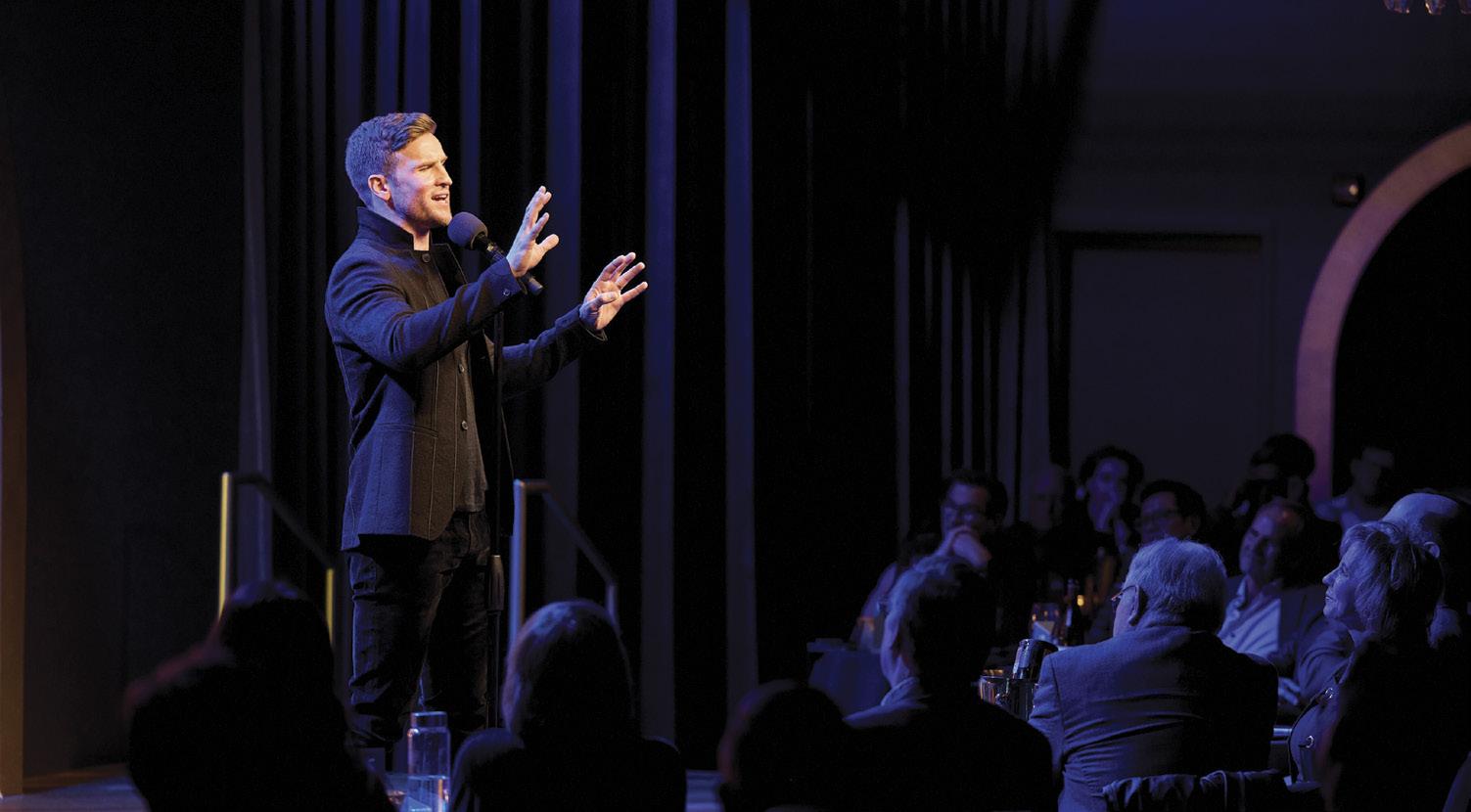
March 9 at the Old Dutch Church in Kingston, 8pm March 10 at the Linda in Albany, 7pm Biggayhudsonvalley.com
Maybe you’ve seen actor and singer Claybourne Elder in his role as John Adams on HBO’s “The Gilded Age,” or on Broadway as Andy in “Company” (opposite Patti Lupone) or as Buck Barrow in “Bonnie & Clyde.” Or maybe you’ve seen him out and about around the Hudson Valley, where he lives with his family. Whether or not you have, you’ll have your chance to see a lot of him when he brings his racy and intimate cabaret show to the region. Tickets for each night are $39.10 and both events are being presented by Big Gay Hudson Valley. Elder answered the questions below by email.
—Peter AaronWhat’s “I Want to Be Bad” like, what inspired you to launch the show, and how long did it take you to put it together?
While I was finishing up the run on “Company” on Broadway, I started working on this show, which is kind of part stand-up and part cabaret performance. I started writing it just for fun, sort of as an outlet, and then I kept writing while I was working on the second season of “The Gilded Age.” I finally had all the text written after a few months, so I got together with my music director Rodney Bush, who also plays the piano for my show, to get the arrangements done. I’ve been touring it now for about a year, just a couple of performances a month, but I’m always working on the show and making tweaks. It has been such a joy sharing it with audiences.
The show has a bit of risqué humor in it and one of the local venues you’re performing at is a church (the welcoming-to-all Old Dutch Church in Kingston). It seems like there could be some irony
there. Without giving too much away, is that an angle that you might reference during the show? How do you balance the type of material you cover in the show? Has it changed during the time you’ve been performing it?
Part of the joke of the show is that my “bad” is quite a bit less “bad” than most people’s. Having been raised a geegolly-willickers Mormon kid just stuck with me. So, yes, there are some risqué parts of the show, but I wouldn’t call them anything but PG-13. I do think that a church is the perfect place for this show. There’s a lot of humor (I hope), but also the heart of the show is about finding things to believe in and how that can change throughout a person’s life. I will say that this show is being produced by Big Gay Hudson Valley, so just like when I have done the show in Provincetown or for queer events, I will probably lean into the gay of it all. There is a lot of interaction with the audience, so I generally feel things out and see what the audience seems to be responding to.
When you were growing up in Utah, what attracted you to performing and what age were you when the attraction began?
I fell in love with performing when me and my older brother, who is also gay, used to put on musicals in my parents’ bedroom for my other siblings. We would play all the parts and I loved to play pretend. I started playing the violin at an early age and then, when I was in junior high, I did my first real musical at school and fell in love. I was a nerdy kid and finding the theater kids in my community really gave me a place to be and feel welcome. It saved me in a lot of ways, in that I felt like an outcast with a group of outcasts to hang out with. The first musical I ever saw was “The Fantastiks.” It was so theatrical and imaginative, and I loved it. I loved Judy Garland movies, which my mother would always rent for us, and all the Golden Age musicals. I have White Christmas memorized backwards and forwards [laughs]. The old movie musicals really did it for me.
You and your husband and son are Ulster County residents. When did you move here and what drew
you to the area? What’s it like to live in the region as a parent?
We bought a house in Ulster County in 2019. We had been in love with the area for a long time and had friends here. We bought a house that needed some fixing up and we thought we would do it over several years while we were still living in the city, and then 2020 hit. I spent Covid ripping out the bathrooms and kitchen and installing new ceilings. We had the chance to really make it ours and we spent the whole year renovating. It’s the first place our son remembers living, and we fell in even deeper love with the area. We have the most incredible neighbors and community here.
Tell us about City of Strangers, the initiative you founded to provide underprivileged theatergoers with tickets to Broadway shows. What’s the story behind that project?
Well, I tell a lot of the story as part of my show! But essentially, an incredibly generous stranger paid for me to go to a Broadway show that ended up having a big impact on my life when I was younger. In this spirit of his kindness, I started City of Strangers to help anyone who is really excited about theatre but might not have the means to go to see a Broadway show. The tickets aren’t free, but are paid for by strangers who just want to do something nice for another person. We’ve given away over 3000 tickets now, and we’re still going. How it all happened is kind of a crazy story, I’ve told it on “This American Life” and “The Kelly Clarkson Show.” It has been really moving to be a part of.
What do you most hope people take away from attending a performance of “I Want to Be Bad”?
I think right now comedy is more important than ever. And I hope that people come together, laugh, and look at some uncomfortable and ultimately meaningful truths. I talk about a lot of things in the show that I never thought I would talk about in public. I think it’s taken me until this point in my life to feel comfortable with that, and I still find myself moved by parts of it every time I do it. I hope that people feel that.

Through March 10 Garrisonartcenter.org
Everything in the East was black and white; everything in the West was technicolor,” says Tatana Kellner. She’s talking about moving from Eastern Europe to the US in 1969. Some of Kellner’s technicolor art—under the title “Sideway Glances”—is at the Garrison Art Center until March 10.
Kellner was born in Czechoslovakia in 1950 to two survivors of Nazi concentration camps. She grew up under Communism, but her parents were able to leave the country after the Prague Spring of 1968. Kellner followed with her sister, and soon the family relocated to Toledo, Ohio. Kellner was 18.
Almost immediately she began college, studying art at the University of Toledo. She moved on to graduate school at the Rochester Institute of Technology, where she met her life partner—and now wife—Ann Kalmbach. Along with Barbara Leoff Burge and Anita Wetzel, they founded the Women’s Studio Workshop in a rented house in Rosendale in 1974. This cooperative
nonprofit has sponsored over 800 internships and residencies, and is the single largest publisher of artistdesigned books.
Kellner was one of the first artists to rediscover papermaking, and then to employ paper pulp in her work. The pieces began to morph into sculpture. Kellner expanded into other media: photography, collage, printmaking, video, installation.
In 1992, she produced a book honoring her parents: Fifty Years of Silence. Kellner cast replicas of their arms, scrupulously reproducing the numbers tattooed on them at the Nazi death camps. That book is currently on display at the main branch of the New York Public Library on Fifth Avenue.
Kellner retired from the Women’s Studio Workshop six years ago, and has since devoted herself full-time to painting. She prefers the texture of paper to stretched canvas. Though the pieces in “Sideways Glances” are pictorial, they begin abstractly. I ask Kellner what the first shapes are like. “Usually it’s a charcoal mark or a brushstroke, sometimes an irregular shape, or a found fragment from another piece that didn’t pan out,” she says.
Collage functions the way revision works in painting. One can always add more paint to a canvas, to cover up an unfortunate corner, but paper is less forgiving. What Kellner does is cut out the piece of the drawing she likes, and glue it onto the next composition.
She has often made art in response to political issues, but such work “has an expiration date,” as Kellner puts it. Though the pieces in “Sideway Glances” aren’t explicit polemics, they reflect social issues of the last several years—particularly the Black Lives Matter protests and the global pandemic. Fight seems to show an AfricanAmerican man raising his fist and shouting—but who is the naked white person sitting in a chair behind him? And is it a person, or a mannequin? And is that a chair, or perhaps a piano bench? And why is the white person slouching?
The resolute ambiguity of the images may be seen as a political statement in itself. Growing up under Communism, in the shadow of Nazism, Kellner has an allergy to propaganda. The images look dreamlike to me, but when I ask if her nighttime dramas influence her art, Kellner says she never recalls her dreams.
“I don’t find most jokes funny,” Kellner remarks, but she chuckles as she speaks, and admits that there is humor in her work: humor rather than comedy. Repercussion, for example, shows a woman—drawn in a loose, expressionist manner—waving her arm as if she’s saying: “Hey, lay off, willya?” Behind her is an olive-green plant that looks like a feather duster. Is this a housewife who refuses to do her chores, for whom an aloe plant resembles her hated feather duster?
—Sparrow
CAITLIN MACBRIDE’S “PALM TO POPLAR: DEVOTIONAL LABOR” AT THE KINDERHOOK KNITTING MILL
Through April 29 Shakermuseum.us
Since its founding in 1747 in Manchester, England, the egalitarian spirit of the Shaker sect has espoused an “equality of the sexes” model that supports women in spiritual leadership roles. The progressive nature of the Shaker worldview can be admired for its equity, and artist Caitlin MacBride’s Shaker-inspired art expresses an abiding reverence and repositioning of the Shaker temperament for a contemporary audience.
Presented by the Shaker Museum in a pop-up exhibition at the Kinderhook Knitting Mill, “Palm to Poplar: Devotional Labor” includes 11 richly hued paintings by MacBride paired alongside a selection of timeworn Shaker objects that serve as the models and muses for this work. Based in Hudson, MacBride is a professor of painting at Bard College and is represented by Deanna Evans Projects in Manhattan.
Her art engages with cultural artifacts in an exploration of labor, desire, and systems of belief. In
2017, MacBride began researching Shaker material culture through the collection of the Metropolitan Museum of Art, and her focus led her to create the current series on view in Kinderhook. MacBride considers her study of Shaker culture as vital to her knowledge of American art, most notably the Shaker impact on Modernism. “Learning about the Shakers helped fill in a gap I felt like I’d missed in art history,” she says.
MacBride’s work offers a compelling peek at the core themes in Shaker aesthetics: pattern, isolation, tension, and piety. The imagined conversation happening between the aged Shaker objects in this show—most of them dating from the 1950s—and MacBride’s painterly reconsideration of these objects reveals a surrealistcum-realist atmosphere, one that infuses her work with a strong psychological edge.
MacBride experiments with presenting the Shaker objects as sober records of time versus orchestrating them to dig into our psyche. The painting Bow and Be Simple (2024), for example, is a beautiful rendering of an adjustable wood object used by Shakers to create their classic rounded boxes set against a bright yellow background and painted on a section of door—it is straightforwardly handsome as such.
In other artworks, she tinkers with the cerebral intensity of these forms. With Resistance Razmataz (2002), for example, MacBride has painted a perfect Shaker collating shelf and has carefully positioned five
delicate objects on or in relation to this enduring piece of furniture. Among those objects, a small round teaholder suspended in the air appears to be yearning for the little white saucer just inches away, hinting at notions of unsated consummation. In North (2021), an empty blue bonnet is alive as a gentle breeze animates the blue ribbons that cascade down from it while three small wheels turn endlessly to the left of this composition. The effect is haunting and illuminates the familiar emptiness of actual living, and MacBride gracefully catches our bare attention with these absorbing moments.
Arriving in the US in 1774, the Shaker movement peaked at 19 communities in the Northeast, Ohio, and Kentucky in the mid-19th century. Today there is only one active Shaker village in New Gloucester, Maine, while most former Shaker communities exist as time capsules, including the Shaker Museum in Chatham. We can appreciate MacBride as an artist, anthropologist, and archivist devoting herself to the preservation of Shaker imagery. For MacBride, the connection between art and artifacts reveals a certain “worship factor” that imbues all objecthood—both antiquated and extant—with an unspoken charm, and her balanced paintings reveal this unabashed affinity. “Art is always most interesting to me when it embodies what others might see as contradictions,” says MacBride. “I felt like I’d found my artistic lineage when I found the Shakers.”
—Taliesin Thomas
Jean-Paul Mallozzi (Miami, FL)
Donna Moylan (Kinderhook, NY)
Kevin Sabo (Richmond, VA)
All representational art shows something, but the manner of showing those things can very widely. These three figurative artists cover a wide array of flavors of self-aware showiness. Admittedly the norms of depiction after 15 years of cyber-driven “look at me” culture have grown substantially less subtle and yet within that rubric one can find pictures that acknowledge their desire to grab attention without losing their complexity. Presentational celebrates these pictures ability to continue to resonate in our hearts long after our eyes have left the exhibition space.
17 Broad Street, Kinderhook, NY Spring Hours Saturday+Sunday, 11–5PM and by appointment
Mar 16 –May 4

Beacon and Newburgh residents receive free admission.
Dia Beacon
Riggio Galleries
3 Beekman Street Beacon, New York diaart.org

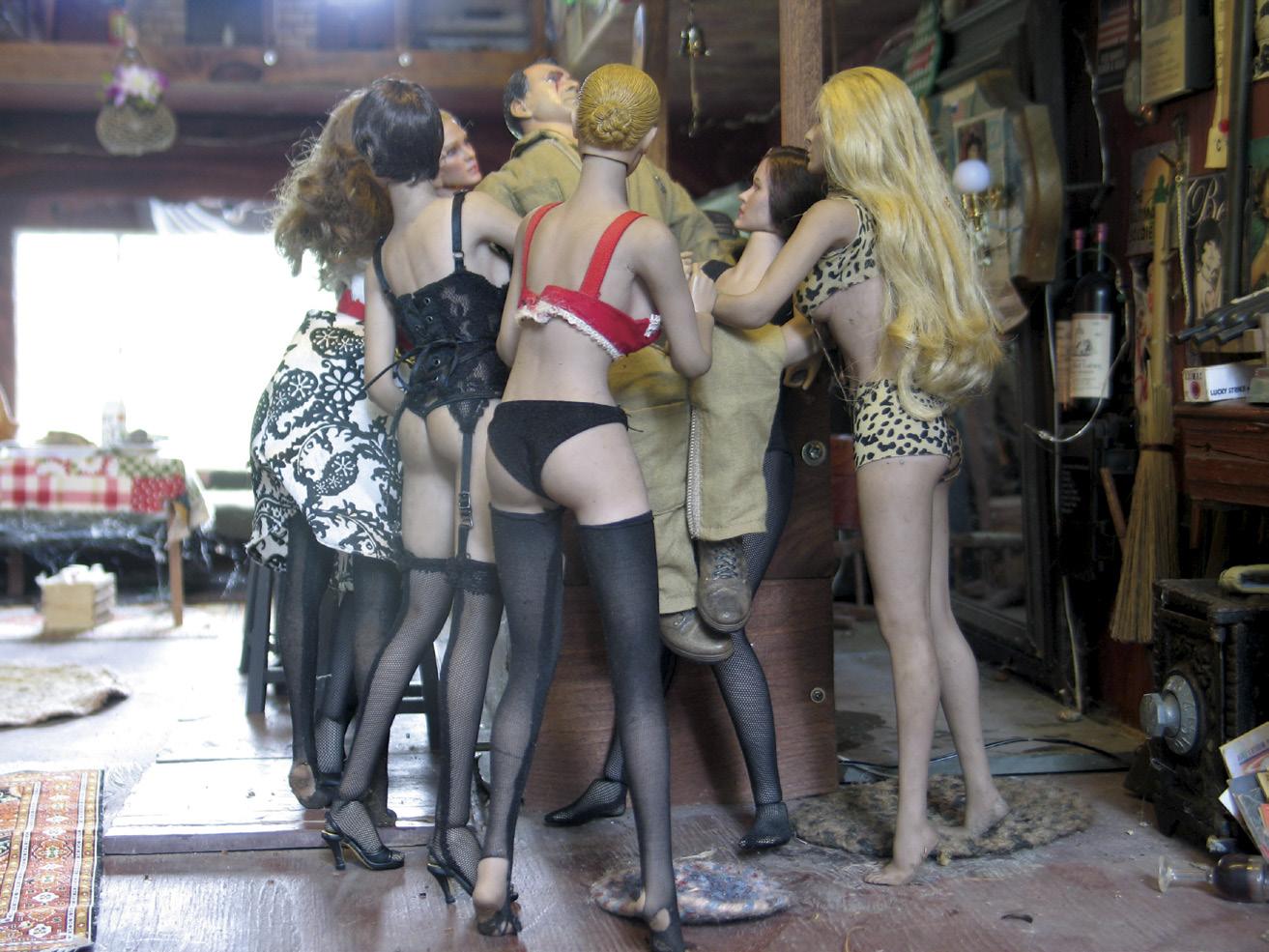
“MARK HOGANCAMP: RESILIENCE” AT ONE MILE GALLERY IN KINGSTON
March 23-April 9
Onemilegallery.com
Mark Hogancamp and the miniature World War II-era Belgian village he built and photographed on the grounds next to his trailer on the Rondout Creek outside Kingston became something of a sensation after the release in 2010 of Marwencol, the award-winning documentary film titled after the name of Hogancamp’s fictional town. Represented by Kingston’s One Mile Gallery, Hogancamp has had exhibitions at One Mile as well as several galleries in New York City. His story spawned a Hollywood film starring Steve Carrell, Welcome to Marwen, and Hogancamp receives fan mail from all over the world.
After a long hiatus caused by the pandemic, One Mile is hosting a show of his new photographs, “Mark Hogancamp: Resilience,” enabling fans to catch up on the latest going-ons at the one-sixth-scale town, from Nazi ambushes to seductive, all-female encounters.
On April 8, 2000, Hogancamp, a divorced Navy vet who suffered from alcoholism, was brutally beaten outside a bar in Kingston, leaving him with a brain injury and other disabilities. After a year of therapy and partial recovery, he began constructing his wartime European town out of scrap wood, populating it with costumed
action figures and dolls. The cast of characters consisted of occupying Nazis and the GIs and local women seeking to oust them.
Much like a film director, Hogancamp set up the dolls in a series of carefully arranged tableaus, many of which centered around US Airforce Captain Hogie, Hogancamp’s alter ego, and the beautiful, seductive women who aided and protected him. The creation of Marwencol has been a powerful therapy for Hogancamp, a way to act out his fantasies of violence and romance: “I got five new Nazis to depict the vigilantes; they’re going to be punished soon,” he says during my recent visit, referring to the five men who severely beat him 24 years ago.
But his mise-en-scenes are also extraordinarily artful, capturing the ambience of wartime Europe with uncanny naturalism through encounters charged with psychological tension—alternately violent, full of camaraderie, tender, and erotic. Mugs of beer clustered on a wooden bar, a mud-splattered jeep, the feminine hand discretely placed on Hogie’s crotch—such details bring the scenes to life, as does the moody lighting and Hogancamp’s cinematic-like manipulation of the camera’s depth of field.
Marwencol is now more than 20 years old— Hogancamp says he has taken over 100,000 photographs—but he is as immersed as ever in the lives of his ever-expanding cast of characters. (A week after he suffered a stroke in 2022, he filmed Hogie having a stroke while having coffee and a cigarette at the Catfight Club and his subsequent recovery at the hospital.)
Grant money and donations of plywood enabled him
to upgrade and add new buildings, including a threestory hotel. The four small shed-like structures are wired with electricity and have a space inside where he can sit and photograph the richly furnished, miniscule rooms. Though the main premise, killing off the Nazis, hasn’t changed, he’s modernized, adding tiny laptops and smart phones to his vast inventory of props. Many of his characters are based on personal acquaintances as well as actual people and fictional characters from popular culture. “We sit around the fireplace and listen to Gwyneth Paltrow reading stories,” he says.
Hogancamp uses a point-and-shoot camera—he’s on his fourth—attached to the top of a broken tripod, whose foot-high height is perfect for photographing his miniature world. Noting that his German grandfather was a mechanic in the Luftwaffe—the family immigrated to America after World War II—Hogancamp said even as a young child he was fascinated by the shiny, stockinged legs of his mother’s German friends (it was Hogancamp’s comment about liking to wear highheeled shoes that nearly cost him his life that night in the bar). “I love elegant women, elegantly dressed,” he says. “Men kill what they don’t understand, while women are curious.”
The show at One Mile will consist of 25 photographs, a combination of new and old works exploring the theme of resilience. One of the one-sixth-scale buildings, “V’rella’s Rooms,” will also be on display. The opening is from 5 to 8 pm on March 23, and people can view the exhibition through April 13 by appointment.
—Lynn Woods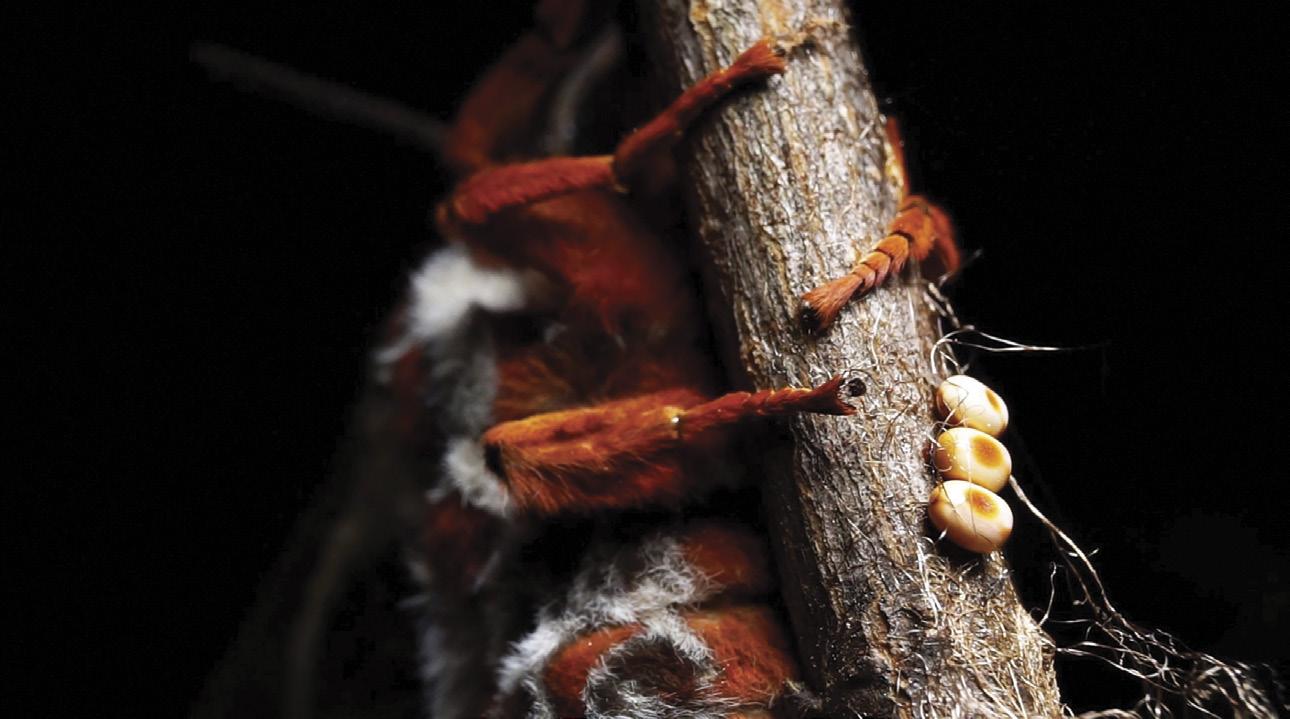
SoloFest 2024
March 1-24 at Bridge Street Theatre
Come celebrate Women’s History Month at Bridge Street Theatre with any or all of four original solo shows created and performed by women and calibrated to bring laughter, tears and deep reflection. March 1-3, it’s “Mirele Lernt Zich Yiddish (Mirele Learns Yiddish)” by Miryam Coppersmith; March 8-10, “Top Drawer,” written and performed by Adelaide Mestre, March 15-17, “The Great Divide,” written and performed by Amy Crossman, and March 22-24, “Longing Lasts Longer,” created and performed by the legendary Penny Arcade. $25 or $75 festival pass. Catskill.
“The Circulators”
March 3 at the Orpheum Theatre/Upstate Films
Glass Eye Shadow Pictures, the duo of composer/ musician Adam Lipsky and visual artist Alisa Javits, tell stories through the ancient art of shadow play. For this production, they bring to life the hallucinatory world of the Circulators, a mysterious group of living beings who live symbiotically with human societies. Created with shadow collage and live musical score, this immersive, dreamlike experience is an experimental performance with an otherworldly quality that’s been compared to Grimm’s Fairy Tales. 7pm. $15. Saugerties.
The Night Visitors
March 7 at Starr Cinema/Upstate Films
How much do you know about moths? Take a closer look through the macro lens of director Michael Gitlin, who will be there in person presenting his latest avantgarde documentary on these mysterious little winged poets. Gitlin’s work dives deep into the borderlands of nature and mysticism, revealing the colors, textures, and intimate details of these creatures as you’ve never seen them before. Gitlin’s The Birdpeople is in the collection of the Museum of Modern Art and his nature films have a David Attenborough-on-acid quality. 7:30pm. $11 (students and seniors $9). Rhinebeck.
March 8-10 at the Howland Cultural Center
What would it have been like in the room with iconic, chaotic poet Anne Sexton and one of her two male psychiatrists? “Red Silk,” written by psychiatrist Lois
Achimovich, goes deep into the complexities and hypocrisies surrounding women’s rights, mental wellness, and the struggles of the marginalized in our corrupt, biased society. The cast features Shane Killoran in the title role, as well as John Hatzell and John Blesso. Directed by the award-winning Bronwen Carson, this production will be the first multi-night theatrical production ever to appear on the Howland Cultural Center’s stage. $30. Beacon.
March 8-17 at the Park Theater
When a six-year-old boy hears that his suddenly hospitalized mom “finds it hard to be happy,” he starts a list of things worth living for—Kung fu movies, ice cream, laughing so hard you shoot milk out your nose—and leaves it on her pillow. It’s a childlike response to a serious problem, and the power of this innocent list as it grows with its author becomes sustenance on a tangled journey through the ravages of depression. The hourlong play by Duncan McMillan, performed by Broadway veteran Scott Barrow, is both heart-wrenching and hilarious. $25. Hudson.
March 9 at Spencertown Academy
The more things change, the more they remain the same. What could be more on point in our current situation than an ancient examination of human nature, power, and violence reinvented as rock noir? Heroics, villainy, exultation, tragedy—Beowulf has always had it all, but the Old English epic takes new form here, told through triumphant pop anthems and tender lullabies in a duo performance of select excerpts from the show by co-creators Shayfer James and Kate Douglas. $10-$15. Spencertown.
March 10 at the Bearsville Theater
The Woodstock Film Festival has seven of its showcase films in the running for Academy gold this year, which should make for a riotously celebratory evening among proud and happy friends of the artists and production companies involved, including American Fiction, Past Lives, The Eternal Memory, American Symphony, The
A still from The Night Visitors, Michael Gitlin's avant garde documentary on moths screening at Starr Cinema/Upstate Films in Rhinebck on March 7.
ABCs of Book Banning, The Barber of Little Rock, Ninety-Five Senses, and War Is Over! Inspired by The Music of John & Yoko. There will be libations, hors d’oeuvres, sparkling with insider anecdotes and a silent auction. 7pm. $50. Woodstock.
March 16 at Shadowland Stages
Stand-up comedy is retiring to its Borscht Belt roots. The Manhattan-based New York Comedy Club and the Borscht Belt Museum are joining forces to create a new stand-up comedy series in Ellenville, once home to some of the region’s most storied hotels and nightclubs. The first show features Michael Hirsch, Jesse Eigner, Rachel William, and Eitan Levine in Shadowland’s 120-seat black box theater. More shows are in the works for April and May, with a weekly line-up planned for summer. $25. 7:30pm. Ellenville.
March 22 at Paramount Hudson Valley
The legendary Peking Acrobats push the limits of human ability with precise and amazing displays of flexibility and control: tumbling, juggling, trick-cycling and seemingly defying gravity as they demonstrate the possibilities of human flexibility and contortion on the cutting edge of extreme. They’ll be accompanied by live musicians on traditional Chinese instruments for this performance, bringing ancient tradition into the modern age with unprecedented physical mastery and high-tech special effects for a vibrant spectacle evocative of a Chinese carnival. 7:30pm. $37.50-$52.50. Peekskill.
Woodstock Bookfest
March 21-24 at the Bearsville Theater
Join local literary lions including, but not limited to, Masha Gessen (Surviving Autocracy), Mark Whitaker (Smoketown), Sophie Strand (The Madonna Secret), Lucy Sante (I Heard Her Call My Name), Elissa Altman (Motherland: A Memoir of Love, Loathing and Longing), and Nick Flynn (Low) for a three-day celebration of the art of story. The weekend includes the annual Story Slam, lively panel discussions like “The Cult and Cost of Confession” and the climactic “Memoir-A-Go-Go” workshop. $23.18-$49.87, full festival pass $268.61. Woodstock.
—AnnePyburn Craig

March 8 at the Avalon Lounge
Powered by drummer Kid Millions’s mighty, motorik grooves, Brooklyn experimental rock outfit Oneida has been blasting out its singular style of unrelenting, white-light, psychedelic, postpunk trance music since 1997. Success, the group’s 16th studio album, came out in 2022, and has been lauded as one of its best. Albany’s Sky Furrows, whose Reflect and Oppose was reviewed in the February issue of Chronogram, feature the spoken poetics of writer Karen Schoemer backed by members of the band Burnt Hills. Spreaders open. (Nicole Yun sings and rocks March 9; Raven Chacon, Kite, and Robbie Wing fly March 31.) 8pm. $12. Catskill.
March 10 at the Egg
Perhaps you caught Samantha Fish and Jesse Dayton when they toured last year with Buddy Guy. It was hard to not be blown away by their distinct brand of badass blues rock, with its fiery punk/garage rock spirit and gut-grabbing soul. Dayton has worked with Johnny Cash, Waylon Jennings, X, Rob Zombie, while Fish is an award-winning festival headliner in her own right. Burning up the road in support of their newest disc, 2023’s Jon Spencer-produced Death Wish Blues, the duo is back in the area for this torrid appearance. (Taj Mahal and Sona Jobarteh jam March 7; Silversun Pickups pop by March 11.) 8pm. $34.50-$59.50. Albany.
March 23 at Hudson Hall
Here’s a Hudson homecoming if ever there was. Now based in Brooklyn and the San Francisco area, multicultural musical ensemble Lady Moon and the Eclipse features Ngonda Badila (whose name means “moon” in Lingala) and her sister, artist and vocalist Ntangou Badila, both of whom were raised locally. The collective layers its soaring vocals atop contemporary R&B and Afrobeat rhythms to make their “inspirational music with an emphasis on inclusivity and spiritual unity.” (The Sean Jones Quartet gets jazzy March 2; the Shanghai Quartet strings along April 6.) 7pm. $18-$28. Hudson.
March 24 at the Artist Spot
Returning to northwestern Westchester County for its second season is the South Street Jazz Festival. The series is curated by musician Kristina Koller and begins its three-show run with this date by New York’s intriguing, Grammy-nominated House of Waters, a unique duo comprised of hammered dulcimer player Max ZT and six-string bassist Moto Fukushima. The pop-up Artist Spot is an intimate, 70-seat listening room that serves wine and other beverages. (Jonathan Blake drums April 21; Arturo O’Farrill swings May 19.) 7pm. $28.52 (discounted season passes available). Peekskill.
March 24 at the Towne Crier Cafe
Texas’s Hot Club of Cowtown has been rootin’ and tootin’ for nearly 30 years, bringing their ebullient Western swing and gypsy jazz to elated audiences as headliners and with Bob Dylan, Willie Nelson, Bryan Ferry, Roxy Music, Gatemouth Brown, the Avett Brothers, the Mavericks, and many others. The trio of guitarist and singer Whit Smith, fiddler and singer Elena James, and bassist Zack Supunor is, according to the New York Times, “conscious always that, above all else, music is for dancing and an oldfashioned good time.” (Richard Thompson returns March 2; Tom Chapin celebrates his birthday March 9.) 7pm. $30 advance, $35 door. Beacon.
March 29 at Infinity Hall
Robert Cray’s music has always been marked by its sinewy, soulful side, but on the bluesman’s most recent album, 2020’s That’s What I Heard, that vibe comes to the fore. “I thought if it we could get this thing that Sam Cooke used to have, the kind of sound that early Sam Cooke records had, that we could pull this off,” says producer and current Rolling Stones drummer Steve Jordan. The guitarist and singer, perhaps best known for his 1986 breakthrough hit “Smoking Gun,” comes through for this sweltering evening. (Shemeika Copeland sings March 14; the Adam Ezra Group is back March 23.) 7pm. $85. Norfolk, Connecticut.
—Peter Aaron
510 WARREN STREET GALLERY
510 WARREN STREET, HUDSON
“Other Worlds.” Work by Nina Lipkowitz. March 2-31.
THE ALDRICH CONTEMPORARY ART MUSEUM
258 MAIN STREET, RIDGEFIELD, CT
“Amanda Martinez: Canta Y No Llores.” A series of wall reliefs and freestanding sculptures referencing adobe construction, the works are a translation of earth-building. Through May 5. “Chiffon Thomas: The Cavernous.” Three monumental sculptures. Through March 17.
“Yvette Mayorga: Dreaming of You.” Eight paintings, an artist-designed wallpaper, and a ceramic vase. Through March 17.
ART BITES GALLERY
8 SECOND STREET, HIGH FALLS
“Deux Bleu.” Work by Simon Draper and Janice La Motta. Through March 17.
ART GALLERY 71
71 EAST MARKET STREET, RHINEBECK
“Julia Van Develder.” Paintings. March 8-31.
ART OMI
1405 COUNTY ROUTE 22, GHENT
“Olalekan Jeyifous: Even in Arcadia...” Exhibition juxtaposes picturesque portrayals of idyllic pastoral life with glimpses of a retro-futurist urban protopia set within the Hudson Valley. March 16-June 2.
ARTPORT KINGSTON
108 E STRAND STREET, KINGSTON
“Poetic Gestures.” Work by Julia Elias, Barbara Owen, Cody Healey-Conelly, Margaret Roleke, Elissa Levy, Kurt Steger, Susan Scott, and Kathie Halfin. Through March 10.
ARTS SOCIETY OF KINGSTON
97 BROADWAY, KINGSTON
“Rebirth.” Group members’ show. March 2-30.
ATHENS CULTURAL CENTER
24 SECOND STREET, ATHENS
“Brush Form Focus.” Work by Richard Bazelow, Lucy Bohnsack, Millie Goldberg, and Marianne Van Lent. Through March 10.
BANNERMAN ISLAND GALLERY
150 MAIN STREET, BEACON
“Art of the Garden.” Traditional and contemporary works by over 20 artists. Through April 7.
BAU GALLERY
506 MAIN STREET, BEACON
“Elemental.” BAU group member exhibition. March 9-April 7. “Vessels.” Ceramics by Joel Brown. March 9-April 7.
BERKSHIRE BOTANICAL GARDEN
5 WEST STOCKBRIDGE ROAD, STOCKBRIDGE, MA
“Wild Findings.” Paintings, drawings, photographs, and collages inspired by nature, created by artists with disabilities through Community Access to the Arts. March 1-24.
Paris Roofs, Isami Doi, linoleum cut, 1931, courtesy the Honolulu Museum of Art, gift of the Cades Foundation,1996. From "Global Connections" at the Samuel Dorsky Museum at SUNY New Paltz through July 21.
BERKSHIRE MUSEUM
39 SOUTH STREET, PITTSFIELD, MA
“Painted Pages: Illuminated Manuscripts, 13th18th Centuries.” Thirty-five works from medieval bibles, prayer books, psalters, books of hours, choir books, missals, breviaries, and lectionaries. Through May 5.
BILL ARNING EXHIBITIONS
HUDSON VALLEY
17 BROAD STREET, KINDERHOOK
“Winter’s Long Embrace.” Work by Nick Barbee, Sallie Barbie, Chris Bernsten, Nayland Blake, T. J. Griffin, Karsen Heagle, Joe Klockowski, Philip Knoll, Scooter LaForge, Stephen Lack, Thedra Cullar Ledford, Jean Paul Mallozi, Mark Ponder, Gerardo Rosales, Elijah Ruhala, Carol Saft, Michael St. John, David Sokosh, and Michael Walden. Through March 9.
“Presentational.” Figurative art by Jean-Paul Mallozzi, Donna Moylan, and Kevin Sabo. March 16-May 4.
CAROL COREY FINE ART
6 NORTH MAIN STREET, KENT, CT
“It’s All in Black and White.” Work by Roz Chast, Dozier Bell, Rick Shaefer, Mia Rosenthal, Susan Hartnett, John Gutrie, and Emily Eveleth. Through March 17.
CARRIE HADDAD GALLERY
622 WARREN STREET, HUDSON
“Tangled Up in Blue.” Group exhibition with an emphasis on the botanical, featuring work by Julia Whitney Barnes, Linda Newman Boughton, and Donise English, Owen Mann, and James O’Shea. March 1-April 21.
CATSKILL ART SPACE
48 MAIN STREET, LIVINGSTON MANOR
“Hovey Brock, Daniella Dooling,and Valerie Hegarty.” New work. March 2-April 27.
THE CENTER FOR PHOTOGRAPHY AT WOODSTOCK
474 BROADWAY, KINGSTON
“Levee: Photographs by Adrianna Ault”. Photos of New Orleans. Through March 17.
CHANGO LIFE ARTS
211 FISHKILL AVENUE, BEACON
“Wanted Dead and Alive.” Work by 20-year-old Cuban artist Sheyla. Through March 31.
CLARK ART INSTITUTE
225 SOUTH STREET, WILLIAMSTOWN, MA
“Paper Cities.” Group show examining representations of well-known cities. Works on paper created between the late fifteenth and the early twentieth century. March 9-June 23.
CMA GALLERY
AQUINAS HALL MOUNT SAINT MARY’S COLLEGE, NEWBURGH
“Mandorla in Pieces.” Work by Joan Ffolliott and Charles Purvis. March 2-May 26.
COLUMBIA GREENE COMMUNITY COLLEGE
4400 ROUTE 23, HUDSON
“Meta.” Work by Karen Dolmanisth and Leslie Alfin. March 21-April 14.
CONVEY/ER/OR GALLERY
299 MAIN STREET, POUGHKEEPSIE
“Seen & Heard.” Work by Onaje Benjamin and Shirley Parker-Benjamin. Through March 30.
CREATE GALLERY
398 MAIN STREET, CATSKILL.
“What We Hold: Stories + Objects.” Work by women artists. Through March 10.
“Catskill Reveries.” Work by Dina Bursztyn. Through March 10.
CUNNEEN-HACKETT ARTS CENTER
9 & 12 VASSAR STREET, POUGHKEEPSIE
“Arquimedes Mejia, Liliana Washburn, and Naomi Berkery.” Paintings and mixed media works. March 1-April 30.
DIA BEACON
3 BEEKMAN STREET, BEACON
“Mary Heilman: Starry Night.” Long-term view. “Andy Warhol: Shadows.” An installation that surrounds the viewer with a series of canvases presented edge-to-edge around the perimeter of the room.
DISTORTION SOCIETY
155 MAIN STREET, BEACON
“A Hidden Quiet.” Abstract paintings by Taj Campman. Through April 6.
EXPOSURES GALLERY
1357 KINGS HWY, SUGAR LOAF
“Africa Awakening: Kenya, Zimbabwe, Zambia.” Photographs by Nick Zungoli. Through April 30.
FLOW CHART SPACE
348 WARREN STREET, HUDSON
“if recopying is to author.” New paintings, fabric works, and books by Jill Magi. March 2-April 27.
FRONT ROOM GALLERY
205 WARREN STREET, HUDSON
“Hoops.” Photographs of basketball courts around the world by Sean Hemmerle. Through April 7.
GALLERY 495
495 MAIN STREET, CATSKILL
“Karina Sharif: A Dream Embodied.” Paper constructions. Through March 30.
GALLERY 40
40 CANNON STREET, POUGHKEEPSIE
“Coming Home.” Longreach Arts group exhibition. March 16-April 28.
GEARY CONTEMPORARY
34 MAIN STREET, MILLERTON
“Will Hutnick.” Large and small-scale works. Through April 14.
GREEN KILL
229 GREENKILL AVENUE, KINGSTON
“Grey Ivor Morris, Shaune McCarthy, Margaret Still.” Paintings. March 9-April 27.
GRIT WORKS | GRIT GALLERY
115 BROADWAY, NEWBURGH
“The Pull.” Painting and sculpture by David Lionheart. Through April 14.
HUDSON BEACH GLASS GALLERY
162 MAIN STREET, BEACON
“Dialogue in a Variable Key.” Recent work by Eleni Smolen and Susanna Ronner.
Through March 3.
HUDSON HALL
327 WARREN STREET, HUDSON
“E(n)ternal Lighf: The Eternal Ecosystem Exposed.” Curated by Ntangou Badila. Featuring works by Ntangou Badila, Reggie Madison, Tyrone Mitchell, and Tshidi Matale.
March 9-April 14.
HUDSON RIVER MUSEUM
511 WARBURTON AVENUE, YONKERS
“Embrace: Cinematic Moments by James Seward.” Seward explores pivotal moments from classic films such as It’s a Wonderful Life, The Wizard of Oz, One Flew Over the Cuckoo’s Nest, and The Godfather Part II in paintings. Through May 12.
“Rivers / Flow: Artists Connect.” Group show. Through September 1.
HV MOCA
1701 MAIN STREET, PEEKSKILL
“War.” International juried group exhibition. Through April 10.
KENISE BARNES FINE ART
7 FULLING LANE, KENT, CT
“Miracle Island.” New Paintings by K. K. Kozik. March 30-April 6.
KINDERHOOK KNITTING MILL
8 HUDSON STREET, KINDERHOOK
“Palm to Poplar: Devotional Labor.” Paintings of Shaker objects by Caitlin MacBride. Through April 29.
LIMNER GALLERY
123 WARREN STREET, HUDSON
“Renascence: New and Emerging Art.” Group show. March 2-31.
LONGYEAR GALLERY
785 MAIN STREET, MARGARETVILLE
“Introductions Show.” Work by Don Freeman and Alan Powell. Through March 17.
MAGAZZINO ITALIAN ART
2700 ROUTE 9, COLD SPRING
“Welcome to New York!” Work by Michelangelo Pistoletto, coinciding with the artist’s 90th birthday. Through June 24.
MARK GRUBER GALLERY
13 NEW PALTZ PLAZA, NEW PALTZ “Winter Salon Show.” Group show. Through March 23.
MASS MOCA
1040 MASS MOCA WAY, NORTH ADAMS, MA
“Like Magic.” Work by Simone Bailey, Raven Chacon, Grace Clark, Johanna Hedva, Gelare Khoshgozaran, Cate O’Connell-Richards, Rose Salane, Petra Szilagyi, Tourmaline, and Nate Young. Through August 31, 2025.
NORMAN ROCKWELL MUSEUM
9 ROUTE 183, STOCKBRIDGE, MA
“Mystery and Wonder: Highlights from the Illustration Collection.” Pieces drawn from Norman Rockwell Museum’s Permanent Illustration Collection. March 2-June 16.
Meadow Craft, Olalekan Jeyifous, 2024. Courtesy of Art Omi.
From “Olalekan Jeyifous: Even in Arcadia...” at Art Omi in Ghent, March 16-June 2.


OLANA STATE HISTORIC SITE
5720 ROUTE 9G, HUDSON
“Spectacle: Frederic Church and the Business of Art.” Combines immersive video technology with Olana’s archival holdings to demonstrate how Church’s art responded to the scientific thought of his day. Through March 24.
OLIVE FREE LIBRARY
4033 ROUTE 28A, WEST SHOKAN
“In Search of the Goddess.” Group show curated by Kathy Yacoe and Sandra Scheuer. March 16-May 4.
PALMER GALLERY, VASSAR COLLEGE
124 RAYMOND AVENUE, POUGHKEEPSIE
“37th Annual John Iyoya Children’s Art Exhibit.” Featuring artwork by local elementary and middle school students. March 3-March 8.
PAMELA SALISBURY GALLERY
362 1/2 WARREN STREET, HUDSON
“Chris Bartlett: 1980s Street and Landscape Photography.” Synchronicities and subtleties of life captured by the artist between 1981 and 1991. March 9-April 7.
“Lisa Ivory: The Boss of Parties.” Recent small paintings depicting shadowlands and inner beasts. March 9-April 7.
ROBIN RICE GALLERY
234 WARREN STREET, HUDSON
“Diversity.” Paintings by Bill Tansey. Through April 2.
SAMUEL DORSKY MUSEUM OF ART
1 HAWK DRIVE, SUNY NEW PALTZ
“Global Connections.” Work by Miguel Covarrubias, Isami Doi, Aaron Douglas, and
Winold Reiss. Through July 21.
“Hudson Valley Artists 2024: Bibliography.” Work by Osi Audu, Alta Buden, Shari Diamond, Kerry Downey, Stevenson Estime, eteam, Aki Goto, Adam Henry, Matthew Kirk, Niki Kriese, Melora Kuhn, Catherine Lord, Sean Sullivan, and Audra Wolowiec. Through April 7.
SAVAGGI GALLERY AT BANK ARTS CENTER
94 BROADWAY, NEWBURGH
“Kate Raudenbush: Inner Landscapes.” Monumental sculptures from a Burning Man-bred artist. Through May 15.
SEPTEMBER
4 HUDSON STREET, KINDERHOOK
“In the pale moonlight.” Nell Brookfield, Eve Ackroyd, Maria Korol, Sarah Lee, Melissa Monroe, Sara Alice Moran, Taylor Morgan, Sonia Ruscoe, Allyson Melberg Taylor, and Brittany Tucker. Through April 7.
“Humans of course are animals.” Work by Nell Brookfield. Through April 7.
SUNY WESTCHESTER CENTER FOR THE DIGITAL ARTS GALLERY
27 NORTH DIVISION STREET, PEEKSKILL
“Student Showcase Exhibition.” Group show of Center for the Digital Arts students and alumni.
Through April 26.
SUSAN ELEY FINE ART
433 WARREN STREET, HUDSON
“Landscapes of Transcendence: Part II—Scenes of Ethereality.” Work by Heather Boose Weiss, Carolyn Monastra, and Leah Oates. Through March 24.
THE LACE MILL GALLERIES
165 CORNELL STREET, KINGSTON
“The Landscape.” Group show. March 2-30.
THE WASSAIC PROJECT
37 FURNACE BANK ROAD, WASSAIC
“I Should Have Been a Pair of Ragged Claws.” Featuring work by Gabrielle Banks, Natalie Baxter, Alexandra Borovski, Gherdai Hassell, Davina Hsu, Padyn Humble, Ayumi Ishii, Alex Jackson, Katie Kaplan, Susan Klein, and SunYoung Park.
Through March 16.
TIME AND SPACE LIMITED
434 COLUMBIA STREET, HUDSON
“Self-Storage.” Installation by Beverly Peterson. Through March 4.
“Low Fidelity.” Photographs of the downtown NYC music and art scene from the late 1970s by Bobby Grossman. March 9-31.
TURLEY GALLERY
98 GREEN STREET, SUITE 2, HUDSON
“You Think, You Know.” Airbrush paintings by Kevin Ford and Daniel Herwitt’s psychedelic illustrations. Through March 17.
ULSTER HABITAT RESTORE
406 ROUTE 28, KINGSTON
“Hidden in Plain Sight.” Recent works by Scott Chasse. March 6-30.
FRANCES LEHMAN LOEB ART CENTER
124 RAYMOND AVENUE, POUGHKEEPSIE
“Making a Life in Photography: Rollie McKenna.” Survey of the prolific career of American photographer Rosalie (Rollie) Thorne McKenna (1918–2003). Through June 2.
“Women at Work: Photography and Labor.” Exhibition explores the relationship between photography and labor, spanning the early 1900s to the present, featuring seven American women photographers: Jessie Tarbox Beals, Margaret Bourke-White, Mary Lloyd Estrin, Remy Holwick, Susan Meiselas, Carrie Mae Weems, and Janet Yoshii-Buenger. Through March 31.
Nebatieh,Lebanon, 2007, Sean Hemmerle. From "Hoops" at Front Room Gallery in Hudson through April 7.
WEIRD SPECIALTY STUDIO
77 BROADWAY, TIVOLI
“Emily Johnston and Sarah Mitchell-Davison.” March 23-June 15.
WILLIAMS COLLEGE MUSEUM OF ART
15 LAWRENCE HALL DRIVE, WILLIAMSTOWN, MA
“Emancipation: The Unfinished Project of Liberation.” Newly commissioned and recent works by Sadie Barnette, Alfred Conteh, Maya Freelon, Hugh Hayden, Letitia Huckaby, Jeffrey Meris, and Sable Elyse Smith in a new exhibition visualizing Black freedom, agency, and the legacy of the Civil War today and beyond. Through July 14.
WOODSTOCK ARTISTS ASSOCIATION AND MUSEUM
28 TINKER STREET, WOODSTOCK
“Geometric Abstraction.” Work by Ilya Bolotowsky, Konrad Cramer, Rollin Crampton, Ernest Frazier, Helen Gerardia, Anne Helioff, Ralph Moseley, Rolph Scarlett, Miron Sokole, Harry Tedlie, Bernard Steffen, and Roman Wachtel. Through April 14.
“Featured Active Members Group Show.” Work by Jenne Currie, Glenn deWitt, Martha Hill, Jean Newburg, Marilynn Rowley, and Carol Struve. March 1-April 14.
“Suzy Sureck: Tread Lightly.” Immersive, multi-disciplinary installation that translates the language of tree roots through sound, video, text, image, and light. March 1-April 14.
WOODSTOCK SCHOOL OF ART
2470 ROUTE 212, WOODSTOCK
“Segalman at 90.” Oil paintings, watercolors, monotypes, charcoal drawings, and pastel paintings of Richard Segalman from the private collections of his Woodstock circle of friends. March 2-May 4.


February











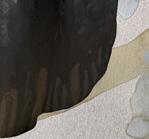
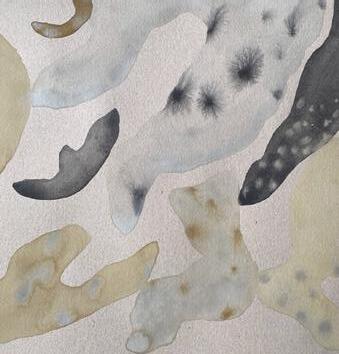






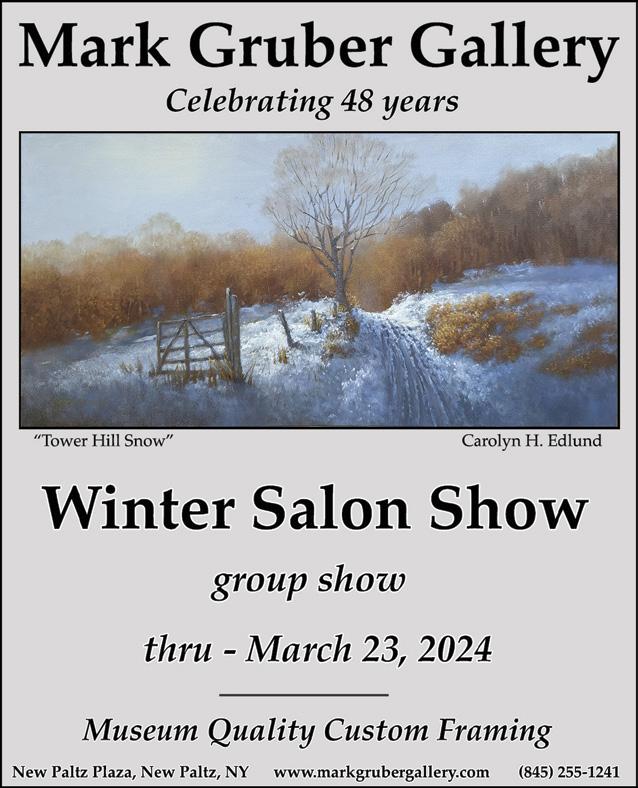
From the gullibility and romantic illusions of Pisces to the more willful strike-first-think-later methods of Aries, March is full of the fearless, the foolish, and the refrain of “the heart wants what the heart wants!” There is much virtue in apparent foolishness; it can open our minds, unlock passion, bypass pride, and help us fully commit to the present moment. The archetype of The Fool is present in Venus’s entrance into Pisces on March 11 and makes many aspects to other planets this month. We’re more likely to be seduced by our own longings for ideal situations, feelings, and people. The Fool is also present as the Sun moves into Aries on March 19, marking the vernal equinox, prompting us to go for what we want—ready or not. Mars’s entrance into Pisces on the 22nd further signifies a wayward, sub-oceanic, or seemingly passive type of aggression. The best-case scenario with this Mars placement is heroic action on behalf of those who need our help.
The Aries sense of urgency, (spurred by Mercury’s entrance into Aries on the ninth) paired with half-understood directives, gets exacerbated towards month’s end with a lunar eclipse in Libra on March 25. The agreements that we’ve made with others will either end or be augmented. As with all eclipses, there’s an element of course correction when new feelings surface. This full Moon (all lunar eclipses are full Moons) will do its best to impart civility, equanimity, and temperance, but having this lunation ruled by the ever-compassionate Venus in Pisces may render us more vulnerable than usual. There is nothing wrong with vulnerability. Couldn’t we all use more sensitivity in this world? But, if hypersensitivity and overpermissiveness are patterns we struggle with, we’ll receive prompts to be more assertive.

ARIES (March 20–April 19)
Happy birthday Aries! It’s your time of year; you’re starting to feel the blood course through your veins and you can’t wait to take action. The cosmos has a challenge for you in the form of a lunar eclipse in your opposite sign of Libra. Complex, nuanced, and intangible webs of emotion might stymie your desire to just get on with the business of being you. You are reminded that you have soft spots, doubts, and vulnerabilities. These things make us human and allow for others to enter our lives. They are also qualities that distinguish your trademark fearlessness from true bravery.

TAURUS (April 19–May 20)
Self-care is a term that gets bandied about ad nauseam. It goes far beyond spa days, creature comforts, and even comfort zones. I would argue that self-care extends into the challenging and often uncomfortable work of repairing and refining our relationships. It’s about creating support systems that help us take the risks that are necessary to feel alive. Self-care is about maintaining vitality, which is really difficult to do alone. In fact, nothing will sap your energy faster than trying to do it all by yourself. Enjoy the paradox of working with people to support doing your own thing.
Cory Nakasue is an astrology counselor, writer, and teacher. Her talk show, “The Cosmic Dispatch,” is broadcast on Radio Kingston (1490AM/107.9FM) Sundays from 4-5pm and available on streaming platforms. AstrologybyCory.com

GEMINI (May 20–June 21)
Your sign is famous for its flexibility and adaptability, but taken too far, this could result in being stretched too thin. Another possibility could be working yourself into a pretzel to accommodate a multitude of personal desires or the relationship needs of others. This month is asking you to allow yourself to make an impact on those around you. Dare to be unreasonable about your selfexpression. Dare to state your priorities. Instead of being buffeted by the winds of change and whims of others, hold fast and teach others how to adapt to you.

CANCER (June 21–July 22)
Every family has its patterns and traditions. Some deserve to be cherished for their harmonizing and strengthening qualities, others can erode the strength and quality of connections. The word “enervate” comes to mind. This month it might become abundantly clear which relating patterns weaken the fabric of our sense of family and which ones support the kinship of the unique individuals in our clan. You may feel like retreating to a safe space to feel this one out, or you may try to make a more violent escape. However you decide to work with this, put a premium on self-honesty.

LEO (July 22–August 23)
Clarity might be hard to find these days, especially if you keep looking for it in the places you’ve become habituated to. The same goes for any daily habits or social interactions. Any mental or social malaise you’ve been experiencing can be remedied by putting yourself in circumstances that feel completely foreign. The goal isn’t to run away from your more prosaic existence but to jolt your system out of an intellectual stupor by finding new inputs. As T. S. Eliot says, “and the end of all our exploring will be to arrive where we started and know the place for the first time.”

VIRGO (August 23–September 23)
Dare to think about your most intimate relationships as mysterious treasure chests awaiting your unlocking. I don’t mean this in an invasive, extracting, or plundering kind of way. The contents of the people involved are what create the character of any relationship. Sometimes the contents of a person’s mind, heart, or even bank account can become stagnant because no one bothered to open these things up and offer a fresh take on how they can be used or valued. Don’t be afraid to take the initiative to open someone up in the spirit of giving them (and yourself) new life.

LIBRA (September 23–October 23)
You’re learning to question the tropes surrounding the sign of Libra. In questioning some of these easy narratives surrounding justice, harmony, and beauty, you’re getting wise to your own power. While this may help you feel like a stronger presence in your own life and the lives of others, it’s accompanied by a certain sense of grief. You can no longer hide behind your roles of peacemaker, gracious host, or the voice of reason. Those masks are slipping and exposing someone who is a more willful operator (albeit a smooth one). Own your desires. Be dangerously gorgeous instead of merely pleasing.












SCORPIO (October 23–November 22)
There are big things on the horizon for you in terms of partnerships next month. To prepare for these epic portals, it’s time to do some aggressive spring cleaning. The kind of cleansing you need will require a tool that looks more like a scalpel than a broom, and might require some sweat. You’re digging into the roots of old relational patterns and centering your personal wellbeing in the organization of your day-to-day routines. This should set you up nicely for the ground-breaking realizations about your relational life that are emerging. Stay in your own lane, and hydrate!

SAGITTARIUS (November 22–December 22)
Being one of the more fiery communicators of the zodiac, Sagittarius doesn’t usually need the same kinds of support for self-expression that other signs need. They know what they believe and shout it from the rooftops. This month’s lunar eclipse in Libra may give you some valuable feedback as to how your rants, raves, diatribes, and sermons are landing. It’s possible that some tweaks might need to be made to maintain a more robust connection with your constituents, audience, or benefactors. This is less about changing your message to please anybody and more about refining your presentation.

CAPRICORN (December 22–January 20)
You may look back at your younger years as a time when you were more willing to take foolish chances. You may pride yourself now on how far you’ve come from that kind of simple, adrenaline-fueled recklessness. This month you may begin to crave the experience of being less measured, more decisive, and more willing to take a chance on yourself. Your chart suggests that now is the time to invest in your more instinctive nature, as you may have lost your sense of self-trust. Your social skills are formidable, but there’s more to you than your ability to keep the peace.

AQUARIUS (January 20–February 19)
Is there such a thing as taking fairness too far? What does justice mean to you? Can peace be achieved without a fight? These are the kinds of questions that might be troubling you these days as your overarching philosophies get challenged by new information. You may also notice how your abstract quandaries are being illustrated in your everyday life, inciting you to live your ethics. This sounds quite heavy, but you’re simply altering your belief systems by personalizing them. You’re seeing the connections between your philosophies and the things you encounter outside your front door.

PISCES (February 20–March 19)
Pisces is notorious for over-extending: their compassion, their imagination, their credit limit. Sometimes their sense of what they have gets conflated with the possessions of others. At this month’s lunar eclipse, it may become clear exactly how much you owe other people. This may present itself as losing your sense of autonomy or finally getting billed for something you thought was free. Pay your debts graciously and balance the karmic books, there’s no wiggling out of this one. Read the fine print—especially in casual arrangements. You could also be on the receiving end of this situation. If so, congratulations!
Our advertisements are a catalog of distinctive local experiences. Please support the fantastic businesses that make Chronogram possible.


Michael Raab’s Photos of Beacon
In 1966, Michael Raab, an aspiring photojournalist, was an assistant to a commercial photographer in Greenwich Village. During the summer, when work slowed down, he happened to pick up a copy of the Village Voice and saw an ad that read: “Help wanted in racially torn city.” (That city was Beacon, and much of that racial tension had to do with the fight over urban renewal, which would ultimately see the demolition of over 200 homes in the predominantly Black West End and the displacement of hundreds of residents over the next decade.)
Intrigued, Raab called the number in the ad. The ad was placed by Rev. Thomas Moneymaker of St. Andrew’s Church, who was looking for help with his youth day camp. The church was offering camp counselors $20 a week plus room and board. “A few days later, I found myself walking up the hill from the Beacon train station to St. Andrew’s Church and one of the best summers of my life,” says Raab.
Raab spent a month working as a counselor in the camp in the West End. “It was very disorganized,” he remembers. “There were six counselors and we made it up as we went along—there were no organizational meetings or scheduled activities. The kids showed up and wanted to play basketball. Every now and then we’d try and get them to do something else.”
of an event and its precise composition. Raab ended up shooting a few rolls of film that summer. When he returned to New York City, he filed the contact sheets away and promptly forgot about them. Raab went on to work as a commerical photographer and open his own photo studio, which he ran for many decades.
Fast forward to 2023: Raab and his wife travel to Beacon, the first time he’s been back in over 50 years. While visiting, Raab met Diane Lapis, a trustee of the Beacon Historical Society. Upon hearing his story, Lapis asked him if he had any photos of his time in Beacon. “I didn’t remember having any,” says Raab. “But I went back through my archives and found a folder labeled ‘Beacon, NY, 1966.’ I was shocked.”
Twenty-five of those photos comprise the exhibition “Beacon’s West End Story: Summer of 1966,” on view in the Community Room of the Howland Public Library through March 3.
An untitled photograph by Michael Raab from “Beacon’s West End Story: Summer of 1966.”
While this was going on, Raab would take occasional photographs of the kids at the camp in the style of his hero, Henri Cartier-Bresson, who believed in trying to capture a decisive moment, the fraction of a second in which the photographer recognizes the significance
At the opening reception in February, Raab, now 82, reconnected with one of the boys from the camp, David Quill. They had their photo taken in front of a photo featuring Quill. Raab is still amazed by how kind the kids of the camp were to each other compared to the Bronx, where he grew up. “The main thing I remember about them was the strong sense of community,” he says. “These kids showed up every day, every one of them, and they were all there and helped each other and thrived in the community. It was a warm, caring environment. It’s just hard to believe these photos were taken almost 58 years ago.”
—Brian K. Mahoney







